A Comprehensive Report
The National Center for the Study of Blockchain and FinTech
Morgan State University has been a revered educational institution since its establishment in 1867. The university has a diverse student population, including individuals from various ethnic, racial, and national backgrounds.
Morgan State University offers more than 100 academic programs, ranging from baccalaureate to doctoral degrees. As the preeminent public urban research university in Maryland, Morgan State University is committed to meeting the challenges and needs of the modern urban environment through comprehensive community-level research and innovative solutions.
In 2018, Dr. Ali Emdad, Associate Dean of the Graves Business School established the Center for the Study of Blockchain and FinTech (the FinTech Center). In 2019, he received a multiyear, multi-million dollar grant from Ripple, a leading Silicon Valley technology company.
The Center serves as a hub for supporting, facilitating, and enhancing cross-disciplinary collaboration in the areas of blockchain, cryptocurrency, and other FinTech-related technologies across Morgan and other Historically Black Colleges and Universities (HBCUs). One of the Center’s primary objectives is to establish strong industry ties with academia and prioritize the development of innovative courses, academic programs, and cutting-edge research that generate positive impacts on society and business. The FinTech Center is dedicated to increasing a broad audience’s understanding of blockchain and FinTech-related innovative technologies.
The Center supports and fosters the development of state-of-the-art curricula and research in FinTech and other technology innovations. Moreover, the Center creates synergistic collaborative relationships between scholars and practitioners across disciplinary and industry sectors. The Center hosts conferences, sponsors research projects, and engages in community outreach activities to make research both rigorous and accessible.
The FinTech Center supports many vital initiatives dedicated to improving the understanding of new technologies that impact many sectors of the economy and society in general.
Spotlight On Research May 2023 5
The National FinTech Center has received immense support from Ripple as its foundational sponsor which has advanced the Center’s mission. Many other sponsors have continuously supported the Center’s programs. One of the Center’s goals is to create a collaborative environment that fosters innovation, drives tech-
nological advancements, and creates solutions that benefit society. To achieve this goal, the Center is committed to offering numerous opportunities to support not only Morgan but also other HBCUs. By bringing together scholars and practitioners from diverse sectors, the Center aims to create a space


where stakeholders can leverage their collective expertise to develop pioneering solutions in FinTech and blockchain.
Through the Center’s initiatives and profound impact, Morgan State University has been recognized as a global leader in FinTech and related fields.
6 Spotlight On Research May 2023
“The MSU FinTech faculty and staff are committed to fostering awareness about blockchain and financial technology and establishing industry partnerships. They are a dynamic, caring, and knowledgeable group of individuals, and working with them was a sheer delight.”
Dr. Patrice Glenn-Jones Alabama State University
Historically Black Colleges and Universities (HBCU) Network
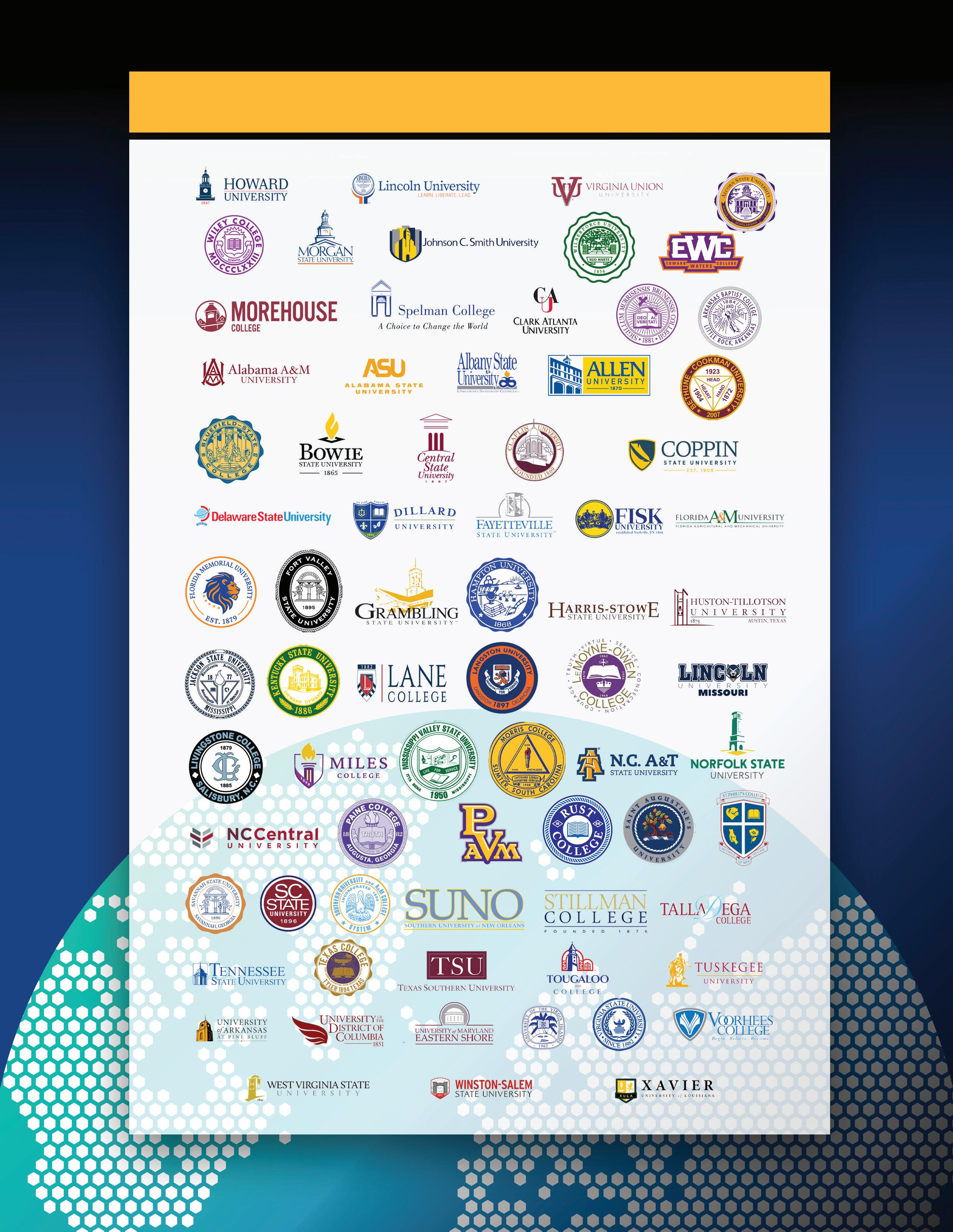
Spotlight On Research May 2023 7
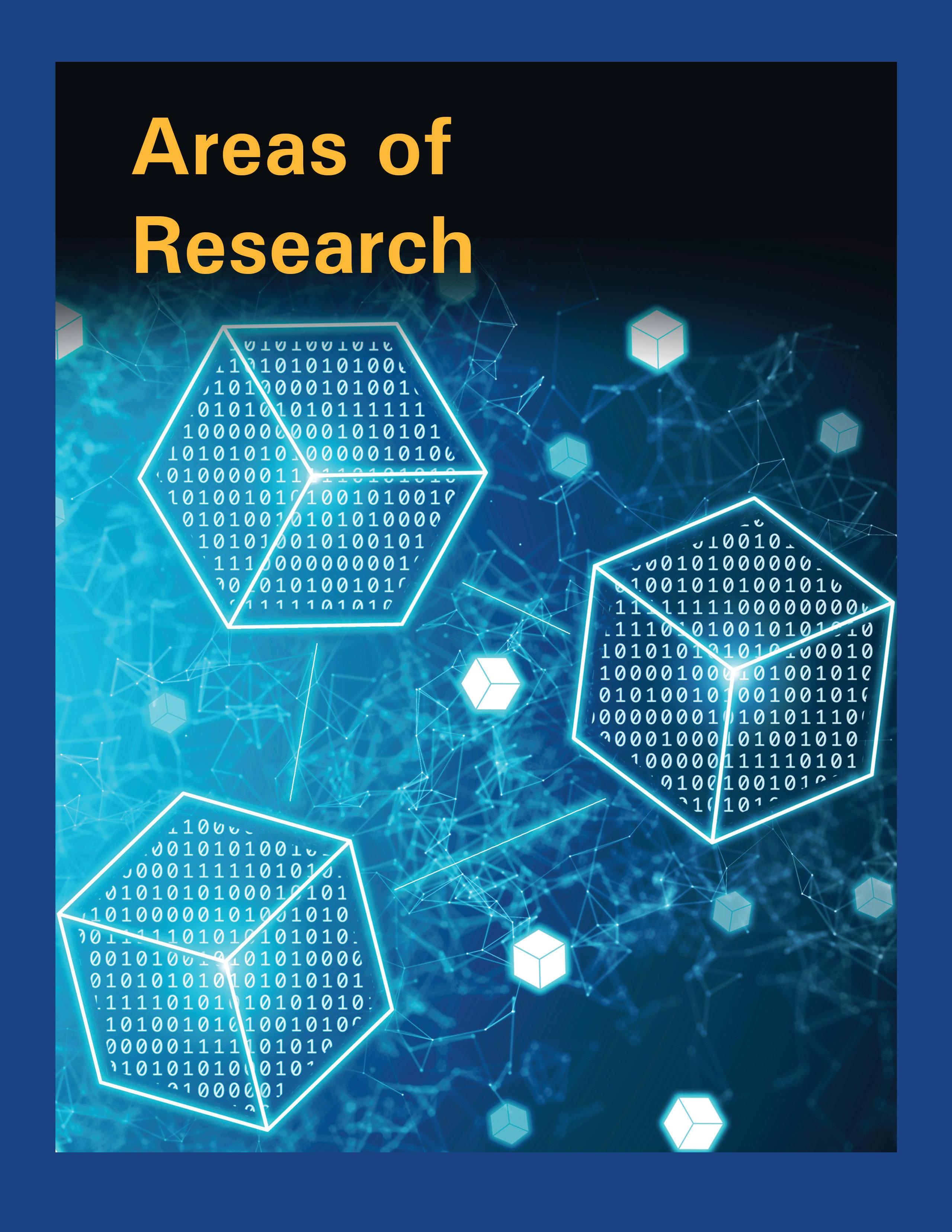
8 Spotlight On Research May 2023
By providing support to faculty members at Historically Black Colleges and Universities (HBCUs), the Center aims to advance our understanding of these transformative technologies. In this section, we will expand on the research focus areas of the Center, highlighting their significance and potential impact on various aspects of the financial industry.

Consensus:
Consensus mechanisms are the backbone of blockchain technology, enabling agreement among network participants. The
Center’s research in this area explores different consensus algorithms, such as proof-of-work, proof-of-stake, and Byzantine fault tolerance, to enhance the security, scalability, and efficiency of blockchain systems. Understanding and optimizing consensus mechanisms are critical for the successful implementation of blockchain solutions in financial transactions, data management, and various other applications.
AI-Driven Data Science: Data science, enhanced by AI, plays a pivotal role in unlocking
valuable insights and driving decision-making in FinTech and blockchain. The Center supports research projects that apply advanced data science methodologies, including machine learning, deep learning, natural language processing, and predictive analytics, to analyze vast amounts of financial data, detect complex patterns, and develop innovative solutions for risk assessment, fraud detection, and automated trading strategies. By harnessing the power of AI-driven data science, researchers aim to improve operational efficiency,
Spotlight On Research May 2023 9
The FinTech Center is dedicated to promoting innovative research in the fields of FinTech, Blockchain, Cryptocurrencies, and related areas.
enhance risk management practices, and drive innovation in the financial industry. AI algorithms enable faster and more accurate analysis of large datasets, allowing financial institutions to make data-driven decisions with greater confidence. Additionally, AI-powered predictive analytics can identify emerging trends and potential risks, providing valuable insights that can guide strategic planning and decision-making in the fast-paced world of finance. The combination of data science and AI revolutionizes the way financial data is processed, interpreted, and leveraged, opening up new opportunities for growth and development in the FinTech and blockchain domains.
Decentralization:
Decentralization lies at the heart of blockchain technology, aiming to eliminate the need for intermediaries and enhance transparency and trust in financial transactions. The Center’s research focuses on investigating the opportunities and challenges presented by decentralized systems. This includes studying the implications of decentralization on governance models, exploring the design of decentralized applications (DApps), and analyzing the overall resilience and security of financial ecosystems. Understanding the potential benefits and limitations of decentralization is crucial for shaping the future of financial systems.
Liquidity:
Liquidity is a crucial aspect of financial markets, and the Center’s research aims to ex-
plore liquidity dynamics within the context of blockchain and FinTech. The Center’s research investigates liquidity dynamics in both traditional and blockchain-based markets. This includes analyzing liquidity provision mechanisms, understanding the impact of liquidity on price discovery and market efficiency, and developing models to measure and predict liquidity risk. By enhancing our understanding of market liquidity, researchers aim to foster more vibrant and resilient financial ecosystems.
Digital Asset Derivatives: Digital asset derivatives, such as futures, options, and swaps, derive their value from underlying cryptocurrencies or blockchain-based assets. The Center supports research that delves into the design, pricing, and risk management of digital asset derivatives. Understanding these complex financial instruments is vital for developing effective risk management strategies, facilitating the integration of cryptocurrencies into traditional financial markets, and unlocking new investment opportunities.
Digital Asset Market Structure:
The emergence of cryptocurrencies and blockchain-based assets has disrupted traditional financial market structures. The Center’s research in this area focuses on analyzing the unique characteristics of digital asset markets, including market dynamics, order book analysis, trading behaviors, and price discovery mechanisms. By gaining a deeper under-
standing of digital asset market structure, researchers aim to enhance market efficiency, develop trading strategies, and propose regulatory frameworks that foster a fair and transparent marketplace.
Distributed Systems: Blockchain technology relies on distributed systems to ensure fault-tolerance, resilience, and data integrity. The Center supports research projects that investigate the design and optimization of distributed systems for blockchain applications. This includes exploring consensus protocols, network scalability, interoperability between different blockchain networks, and the development of cross-chain communication mechanisms. By advancing our understanding of distributed systems, researchers aim to improve the performance, scalability, and usability of blockchain technologies.
Game Theory: Game theory provides a powerful framework for analyzing the strategic interactions among participants in blockchain and FinTech ecosystems.
The Center’s research in this area examines game-theoretic models to understand the incentives, behaviors, and equilibrium outcomes in decentralized systems. By applying game theory, researchers can design mechanisms that incentivize honest behavior, deter malicious activities, and improve the overall security and efficiency of blockchain networks.
10 Spotlight On Research May 2023
Incentive Structures:
Incentive structures play a crucial role in motivating network participants to contribute their resources and maintain the integrity of blockchain networks. The Center’s research focuses on designing innovative incentive mechanisms that align the interests of participants and promote desired behaviors, such as network validation, data sharing, and consensus participation. By studying and optimizing incentive structures, researchers aim to enhance the sustainability and robustness of blockchain ecosystems.
Infosec / Opsec:
Information security (Infosec) and operational security (Opsec) are of paramount importance in blockchain and FinTech applications, where the protection of sensitive data and assets is critical. The Center supports research projects that explore novel security solutions to safeguard blockchain and FinTech systems from potential vulnerabilities, threats, and attacks. This includes studying cryptographic techniques, secure key management, privacy-enhancing technologies, secure software engineering practices, and risk assessment methodologies. By addressing Infosec and Opsec challenges, researchers aim to build resilient systems that can withstand malicious activities and protect user data and assets.
Network Analysis:
Non-Technical: Network analysis examines the structure, dynamics, and interactions of participants in blockchain
and FinTech networks from a non-technical perspective. The Center supports research projects that employ social science methodologies, including qualitative and quantitative analysis, to study the behavior of network participants, their decision-making processes, the formation of trust, and the diffusion of innovations. By exploring non-technical aspects of network analysis, researchers gain insights into the socio-economic factors that shape the adoption and impact of blockchain and FinTech technologies.
Network Analysis:
Technical: Network analysis from a technical perspective involves studying the topology, connectivity, and performance of blockchain and FinTech networks. The Center’s research in this area focuses on analyzing the structure of networks, identifying vulnerabilities and attack vectors, developing network measurement tools, and exploring techniques for network optimization and scalability. By advancing our understanding of the technical aspects of network analysis, researchers aim to improve the design, security, and efficiency of blockchain and FinTech systems.
Sustainability:
The National FinTech Center recognizes the significance of sustainability in the context of cryptocurrencies, blockchain, and FinTech, and aims to undertake and support research in this critical area. The Center focuses on investigating innovative solutions that address the environmental impact of cryp-
tocurrency mining, exploring alternative consensus mechanisms that are energy-efficient and environmentally friendly. Researchers collaborate to develop sustainable practices and technologies that promote the adoption of renewable energy sources for blockchain operations. Additionally, the Center explores the potential of blockchain technology to enable transparent and accountable supply chains, facilitating the tracking of sustainable practices in industries such as agriculture, renewable energy, and fair trade. Through interdisciplinary research, the Center aims to advance the understanding of how blockchain and FinTech can contribute to sustainable development goals, promoting responsible and ethical practices within the digital financial ecosystem. By emphasizing sustainability, the Center seeks to foster a more inclusive and environmentally conscious future for cryptocurrencies, blockchain, and FinTech.
Laws and
Regulation
Impact on
Digital
Assets: The regulatory environment plays a crucial role in shaping the adoption and development of digital assets and blockchain technologies. The Center supports research projects that analyze the impact of regulations on digital assets, exploring topics such as legal frameworks, compliance requirements, investor protection, and the implications of regulatory changes on market dynamics. By studying the regulatory landscape, researchers aim to provide insights and recommendations
Spotlight On Research May 2023 11
that promote responsible innovation and regulatory clarity in the digital asset space.
The regulatory landscape surrounding blockchain, FinTech, and digital assets is constantly evolving, and the Center recognizes the importance of conducting research in this area to address the legal and regulatory aspects. By analyzing the legal and regulatory frameworks applicable to these technologies, identifying gaps and challenges, and proposing innovative approaches, the Center aims to create a conducive environment for its development while ensuring consumer protection and market integrity.
Research projects at the Center focus on various topics related to laws and regulations in digital assets and FinTech. This includes examining regulatory sandboxes, data protection, consumer rights, cross-border regulatory harmonization, and intellectual property rights. By exploring these areas, the Center aims to contribute to the establishment of robust frameworks that promote innovation in the field.
In addition to legal and regulatory considerations, software engineering plays a vital role in the development of secure and efficient FinTech and blockchain solutions. The Center’s research in this area is dedicated to software engineering methodologies, best practices, and tools tailored specifically for the unique challenges of blockchain and FinTech applications. Researchers investigate topics such as software architecture,
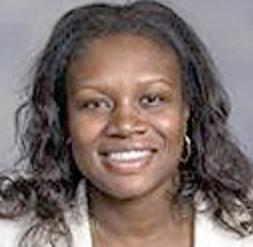
code quality assurance, smart contract development, testing frameworks, and DevOps practices. By advancing software engineering practices, the Center aims to ensure the reliability and scalability of blockchain and FinTech systems.
Through these research efforts, the Center not only drives innovation but also contributes to policy discussions surrounding digital assets and FinTech. Additionally, the Center empowers faculty members at Historically Black Colleges and Universities (HBCUs) to make significant contributions to the evolving landscape of financial technology. By combining legal and regulatory analysis with software engineering advancements, the Center seeks to shape the future of digital assets and FinTech while fostering a supportive environment for innovation.
12 Spotlight On Research May 2023
“The FinTech Center provided an invaluable opportunity to expose students to FinTech and Blockchain on an advanced level. The students were mentored by FinTech Industry leadership. This opportunity not only provided education but led to career development and enhancement.”
Dr. Millicent Springs-Campbell Spelman College

Spotlight On Research May 2023 13

14 Spotlight On Research May 2023
Katayoon Beshkardana | Morgan State University | Blockchain and the Right to Erasure: Striking a Balance between Technological Innovation and Data Protection
Dr. Beshkardana explored the concept of the “right to be forgotten” in the age of big data. As personal data becomes increasingly valuable, companies have amassed enormous amounts of it to cater to their marketing needs. To securely collect and process encrypted data and mitigate data breach risks, companies have turned to blockchain technology. However, with the era of quantum computing looming, codes are in danger of quantum decryption, and individuals’ rights to data self-determination must be taken into account. The paper compared the right to be forgotten under the European GDPR and two U.S. Senate bills, the American Data Protection and Privacy Act and the Data Protection Act. The paper concluded that a thriving digital market must meet both the legitimate needs of companies and certain rights of individuals to privacy and data protection.
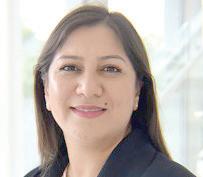
The paper focuses on a comparison of the right to be forgotten under the European GDPR and two senate bills, American Data Protection and Privacy Act (ADPPA) introduced in the House Energy and Commerce Committee and Data Protection Act introduced in the U.S. Senate Committee on Commerce, Science, and Transportation. Today, personal data is considered the economy’s “oil” and a new asset class. The corporate world creates an ever-increasing market value for information by collecting, storing, and processing massive amounts of personal data to tailor its marketing needs. Big tech companies such as Apple, Microsoft, Amazon, Google, and Metaverse already exert enormous control over the personal data of individuals to create wealth and make a profit. One of the technologies that aids companies in securely collecting and processing encrypted data and mitigating data breach risks is blockchain. Given the fast-approaching era of quantum computing, where codes are in danger of quantum decryption shortly, this paper discusses the rights of individuals to data self-determination under the U.S. Privacy Acts and the European General Data Protection Regulation (GDPR). A thriving digital market must meet the legitimate needs of companies and certain rights of individuals to privacy and data protection.
Another paper, authored by Xiaoming Li from Tennessee State University, focused on a blockchain-based health pass system to mitigate the spread of infectious diseases. The paper compared manual, blockchain, and centralized health pass systems and employed the popular susceptible-infectious-recovered (SIR) model to simulate the dynamics of an infectious disease cycle under three travel restrictions between regions. By adjusting the effectiveness parameters of catching infectious, the paper showed the benefits of health checks under three systems: manual, blockchain, and centralized. Health checks were beneficial for reducing the total infected and the infectious peak while bidirectional health checks tended to cause more reductions. Centralized solutions were better than blockchain solutions, which were better than manual systems. Although a blockchain solution cannot mitigate infections the most, its niche lies in its unique capacity for transparency, privacy protection, and immutability.
These two papers illustrate the significant potential of blockchain technology in protecting individuals’ privacy and mitigating the spread of infectious diseases. As the world becomes increasingly digitized, it is crucial to conduct more research in blockchain and FinTech to stay ahead of the curve and ensure that these technologies are used for the benefit of society.
Spotlight On Research May 2023 15
Dr. Katayoon Beshkardana Morgan State University
Xiaoming Li | Tennessee State University | A Blockchain-Based Testing and Vaccination System

The paper focuses on a blockchain-based health pass system for mitigating the spread of infectious diseases. It shows its unique value and compares it with the existing manual and centralized health pass systems. Infectious diseases diffuse through our travel systems. To combat epidemics, we have to implement specific health pass systems from time to time. First, this paper summarizes three methods: manual, blockchain, and centralized. We then employ the popular susceptible-infectious-recovered (SIR) model to simulate the dynamics of an infectious disease cycle under three travel restrictions between regions: no health check, one-directional health check, and bidirectional health checks. By adjusting the effectiveness parameters of catching infectious, we show the benefits of health checks, i.e., the reductions of peaked infectious and total infected/contagious over the whole cycle, under three systems: manual, blockchain, and centralized. Health checks are beneficial for reducing the total infected and the infectious peak while more effective in reducing the contagious height. Bidirectional health checks tend to cause more reductions. Moreover, centralized solutions are better than blockchain solutions, which are better than manual systems. Our numeric examples show that the decrease in peaked infectious ranges from 0.3900% to 17.56%, while the decline of the total infected fields from 0.2184% to 2.056%. Although a blockchain solution cannot mitigate infections most, its niche lies in its unique capacity for transparency, privacy protection, and immutability.
 Xiaoming Li Tennessee State University
Xiaoming Li Tennessee State University
“I didn’t know much about crypto prior to starting, I had some exposure to blockchain from classes but that’s about it. Looking forward, I hope to make meaningful contributions at a promising startup or big tech company while developing significantly as a professional.”
16 Spotlight On Research May 2023
Jioke Kamanu Computer Science, Howard University
Juliet Elu |

Miesha Williams | Morehouse College | Cryptocurrency: Implications as Legal Tender

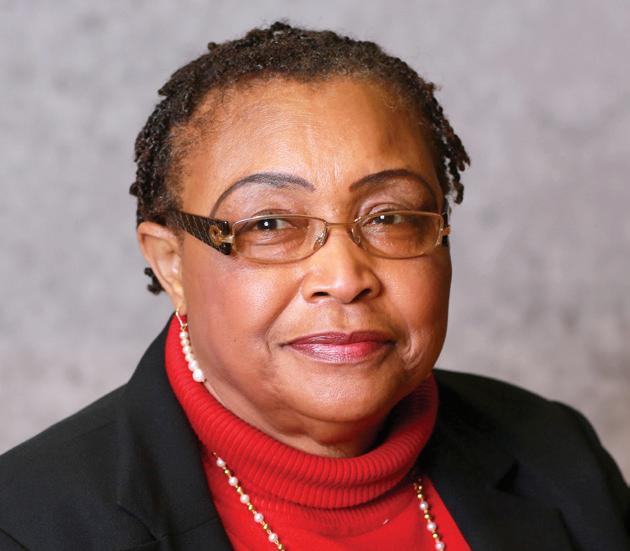
This joint research paper by Elu and Williams examines Latin America and the emergence of cryptocurrency as legal tender. The recent adoption of Bitcoin as a legal tender by El Salvador and the Central African Republic is assessing its validity as a medium of exchange for promoting economic stability. Other countries in Latin America, such as Paraguay, Venezuela, and Anguilla, are contemplating joining the bandwagon as a reflection of an inclusive global financial market. This change presents an opportunity to assess how cryptocurrency satisfies the characteristics of money. The volatility and speculative nature of cryptocurrency may disrupt the economies of these countries. However, the instability of prices and inflation may also allow these countries to use cryptocurrency as their legal tender. This paper considers if Bitcoin, Ethereum, Ripple, and Tether may serve as good legal tender worldwide. Using the Fisher rule model and monthly IMF data from 2010-2022, we present stylized facts to suggest that shifting away from Bitcoin exclusively toward the inclusivity of other coins is advisable. To the extent that cryptocurrency is an acceptable medium of exchange and has a speculative component to its demand, coins such as Bitcoin, Ethereum, Ripple, and Tether may not be good candidates for sale in developed economies. Still, they may be a viable option for developing economies with an excess inflation rate.
Yujian Fu | Alabama A&M University | Specification of Smart Contract Behavior in the Currency Perspective
This paper proposes a formal verification approach based on the Maude model checker to verify that the application implementation in the solidity program complies with the standard specification in temporal logic propositions. A blockchain is a collection of data blocks that are connected by encryption and serve as a decentralized public ledger. Smart-contract flaws can be exploited to cause enormous losses. Before implementation, formal verification is a helpful technique in locating these issues. The DAO attack and Parity multi-signature wallet attacks are just a few examples of subtle mistakes in smart contracts that result in significant financial losses. Numerous studies on static analysis and theorem proving have been conducted to find these faults in smart contracts. However, they do not fully enable automatic operation or thoroughly scan the entire search space; they support inspection for pre-defined error patterns. To model and analyze vulnerabilities of intelligent contracts on the Ethereum platform, this paper proposes a formal verification approach based on the Maude model checker to verify that the application implementation in the solidity program complies with the standard specification in temporal logic propositions. The Maude model checker, rooted in rewriting logic and equation theory, is chosen to support this approach. The proposed model template is defined in a hierarchical structure capturing the behavior of Ethereum, the smart contract, and the execution framework. This approach is implemented and validated in two reentrance and parity multi-signature case studies.
Juliet Elu Morehouse College
Yujian Fu Alabama A&M University
Spotlight On Research May 2023 17
Miesha Williams Morehouse College
Mohammad Mahdi Moeini Gharaghozloo | Morgan State University | Exploring the Role of External Environment Factors in Global Cryptocurrency Adoption
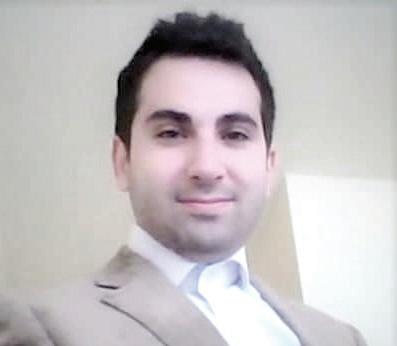
The author investigates the idea that a higher level of democracy in a country enhances the acceptance and adoption of cryptocurrencies. The geopolitical competition between the U.S. and China has become increasingly intense in recent years. One represents Western democracy and free markets, while the other is a symbol of a one-party political system and state-controlled capitalism. Historical data repeatedly suggests that government decisions can substantially impact cryptocurrency markets. While several studies in the literature investigate different macroeconomic factors that could potentially influence the global cryptocurrency markets, Gharaghozloo studies the impact of one of the most important social forces, the state of global democracy, on the expansion of cryptocurrencies in different countries. Analyzing a sample of 109 countries in 2023, The author finds support for his theory. He also tests the building components of democracy and their effect on helping cryptocurrency expansion in a country. This paper contributes to international FinTech literature and helps us understand future trends in global cryptocurrency markets.
Mohammad Mahdi Moeini Gharagozloo | Morgan State University | The Effect of Digitalization of Economies on Global Expansion of Crypto Currencies
Understanding how the digital economy significantly impacts all dimensions of the global economy is a rising priority in the present day. This paper aims to investigate the critical role of the digital readiness of economies worldwide in the effective global expansion of major cryptocurrencies. The authors are also studying the circumstances under which the digital enthusiasm of an economy matters to crypto expansion.
Zeinab Bandpey | Morgan State University | Graph Theoretical Approach to Blockchain Analysis
In this research, the authors study how Graph Theory is helpful in blockchain analysis. We review applications and techniques for performing Bitcoin blockchain data analysis using graph theoretical approaches and techniques such as Oracle’s graph. They perform bitcoin transaction analysis as several case studies by computational graph analysis, pattern matching in graphs, and other graph theoretic techniques.
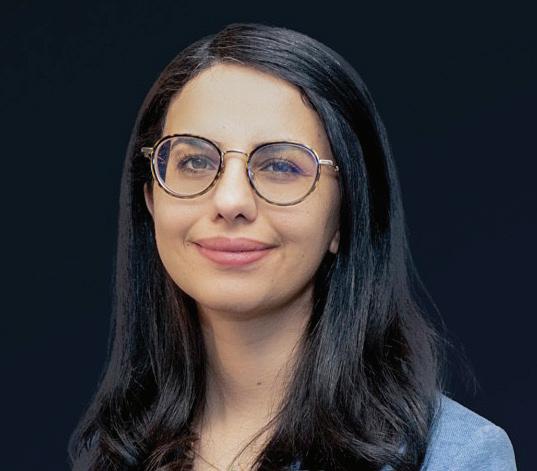
18 Spotlight On Research May 2023
Mohammad Mahdi Moeini Gharaghozloo Morgan State University
Zeinab Bandpey Morgan State University
Maxim Bushuev | Morgan State University | Delivery Coordination Within a Decentralized Supply Chain Using Blockchain Smart Contracts
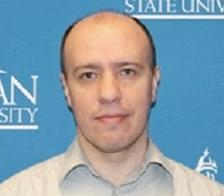
This project aims to improve delivery coordination in a decentralized supply chain where each participant makes decisions based on their interests, leading to optimal choices for the whole supply chain. Supply chain coordination can be achieved if a company faces all costs incurred by its decisions. Since a supplier is usually responsible for delivery, the supplier should reimburse the buyer for all the untimely (early or late) delivery expenses. This motivates the supplier to reduce buyer costs associated with untimely delivery and act in the buyer’s best interests.
Hongmei Chi | Florida A&M University | Securing Supply Chain of Autonomous Vehicles with Blockchain Technology
This paper builds upon the motivation of utilizing the potential of two transformative technologies to develop and evaluate a framework for applying Blockchain technology to autonomous vehicle communication to enhance cybersecurity for the A.V. supply chain. Additionally, this framework helps us to address cybersecurity issues on communication and supply chain trust, privacy, and compliance.
Phyllis Keys | Morgan State University | Regulatory Policies, Digital Assets, and Financial Inclusion: An Institutional Perspective
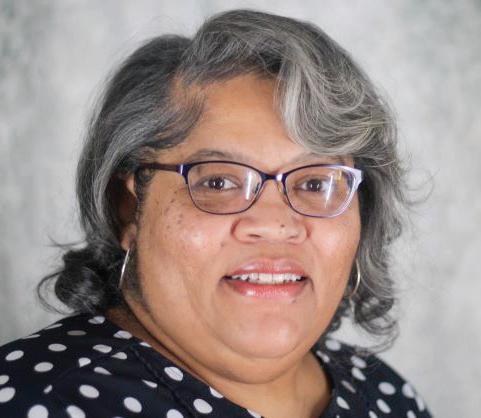
The paper’s primary research question is: Do digital governmental policies in African countries facilitate financial inclusion? The author proposes to use a mixed-method approach to examine how policies on digital assets affect financial inclusion. For the qualitative analysis, she analyzes the African countries’ government policies on digital assets through content analysis. She categorizes country governments into three groups: those with digital policies that indicate financial inclusion as a common goal or outcome of their approach, those with digital policies with no indication of financial inclusion, and those with no digital policies. The author conducts a quantitative analysis by investigating the relationship between the government policy variable and financial inclusion measures using World Bank data.

Spotlight On Research May 2023 19
Maxim Bushuev Morgan State University
Hongmei Chi Florida A&M University
Phyllis Keys Morgan State University
Vasanth Iyer | Grambling State University | POWTracker

In the current context, where networks are vulnerable to data breaches and spoofing attacks, it is crucial to have a reliable source to verify the origin of information. We are exploring the use of Blockchain for location-based point-of-origin proof and re-identification proof of trackable objects. We have named this Blockchain application the POWTracker platform. The POWTracker platform leverages properties like consensus, provenance, immutability, and finality, which are inherent to any Blockchain application, including smart contracts, to enable quick authentication.
Xia Zhang | Alabama A&M University | How Can Privacy and Scalability Issues in Blockchain Networks Be Overcome? –Hyperledger Fabric (HLF) Blockchain Network Framework
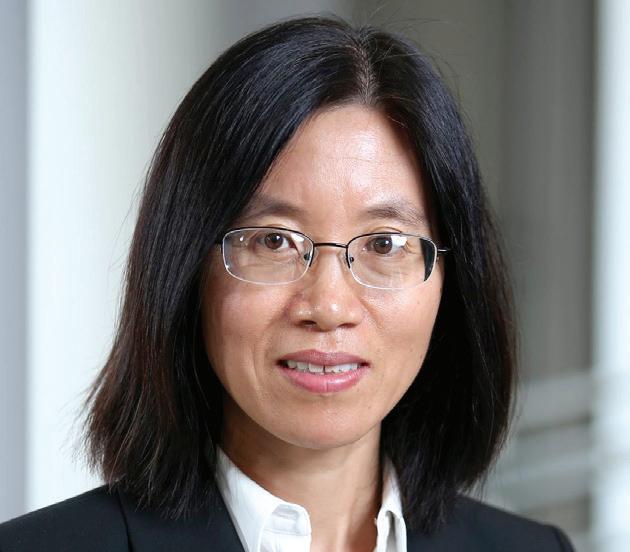
The author aims to present a formal framework that solves the scalability issue when confirmed blocks grow over time at different locations in the network and will focus on both the mathematical structure and consensus protocol. To ensure the blockchain system can operate smoothly as demand increases, the author will utilize the Hyperledger Fabric platform in the study.
Abena Primo | Huston-Tillotson University | Detecting Illicit Transactions Based on Fees and Transaction Cluster Properties
Cryptocurrencies aim to enhance the financial conditions of the unbanked population, who usually belong to minority communities and have doubts about financial institutions. To gain trust among the unbanked, cryptocurrencies must be free from any illegal activities. Further investigation into illicit cryptocurrency transactions is necessary to detect them early, which will boost confidence and encourage the adoption of cryptocurrencies.
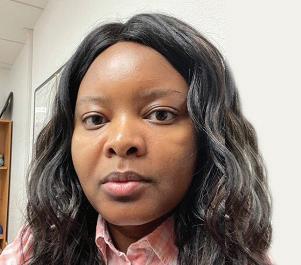
20 Spotlight On Research May 2023
Vasanth Iyer Grambling State University
Xia Zhang Alabama A&M University
Abena Primo Huston-Tillotson University
Omar Khan | Morgan State University | Blockchain-Driven Global Value Chain: A Conceptual Model for Adaptive, Cost-Efficient, and Agile Management

The paper leverages Transaction Cost Economics (TCE) as the underlying theoretical foundation of governance mechanisms and consolidates it with work done on adaptive learning (in the organizational literature), cross-border distribution (from international marketing literature), and process flow facilitation (from supply chain management literature). The paper is theory-driven and results in a conceptual framework for understanding the integration of blockchain technology within global value chain management. Methodologically, the report utilizes an inductive approach to reviewing practical case examples and an integrative approach to existing theory to construct a conceptual foundation to understand adaptive, blockchain-driven global value chain management comprehensively.
Isabelle Kemajou-Brown | Morgan State University | Estimating Environmental Cost of Cryptocurrency Mining using Statistical Methods
There continues to be a lack of regulation surrounding crypto asset mining activities in the U.S., which has made it difficult to sustain mining businesses while also protecting human health and the environment from pollution. To address this issue, it is crucial to evaluate the monetary value impact of producing cryptocurrencies and assess the magnitude of their environmental and health effects on society. This information can then be used to raise awareness among policymakers about the damages caused by cryptocurrency mining and to encourage them to create sustainable regulatory measures to reduce these costs.
Juliet Elu | Morehouse College | Blockchain Investment in the COVID-19 Pandemic

This paper examines market sentiment and consumer confidence in Blockchain technology during the COVID-19 pandemic in a time series model, using daily trade price data from Bloomberg and data from Blockchain.com. Investors often turn to commodity assets to diversify their portfolios during economic downturns, as shown by Ji, Zang, and Zhao (2020). Gompers and Lerner (2003) examine initial public offerings using a pre-NASDAQ event study to determine “event-time buy-and-hold of abnormal returns.” This paper aims to assess the potential of blockchain initial coin offerings as a haven during the COVID-19 pandemic, contributing to the existing literature. We recommend a rule-of-thumb strategy for prudent day traders to follow and suggest market policies supporting said prudence. The authors state that to their knowledge, no study has yet utilized initial coin offerings as possible portfolio protection in periods of economic downturn.

Spotlight On Research May 2023 21
Omar Khan Morgan State University
Isabelle Kemajou-Brown Morgan State University
Juliet Elu Morehouse College
the Virgin Islands | Introduction
Innovative Contract Technology to Create a Marketplace in the Virgin Islands
This paper investigates the creation of value and monetization in blockchain networks through the supply and demand structure, where the usefulness of the network determines the value. The research is necessary because it impacts multiple critical areas for the Virgin Islands, namely food security, hazard mitigation and resilience, the technology sector, commerce, and intellectual capital. The existing research gap is addressed by collecting baseline data as currently no data exist on the introduction of blockchain into the food supply chain in the Virgin Islands. The research methodology employs a mixed methods approach. A baseline survey of 10% (approximately 22 farmers of the 219; 160 STX, 59 STT) is being conducted based on USDA 2007 Census in the VI USDA 2007 Census1. The farmers are asked to describe their current practices, how decisions are made about specific crops, when to grow the crops, and if and how they determine the demand for certain crops.
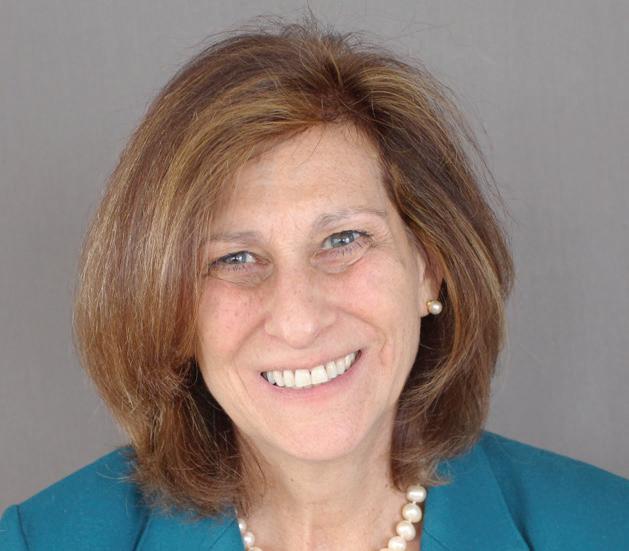
Young Sik Cho | Jackson
State University | A Study on the Convergence of Blockchain Technology and Artificial Intelligence (A.I.) in a Digital
Supply Chain:
Applying Big Data Analytics

Data is the most critical element of machine learning algorithms because poor data quality, regardless of the quality of the A.I. algorithm, leads to inaccurate and distorted business decision-making. In this way, blockchain technology can serve as a powerful data solution for any A.I. system. It enables the creation and operation of decentralized, tamper-resistant, immutable, transparent, and traceable data in supply chain networks. However, there is a lack of understanding of how the convergence of blockchain technology and A.I. can contribute to making optimal operational decisions (e.g., capacity management, forecasting, and inventory management) in supply chain processes. As such, this study aims to understand how the convergence of blockchain technology and A.I. can contribute to creating value and monetization in the digital supply chain.
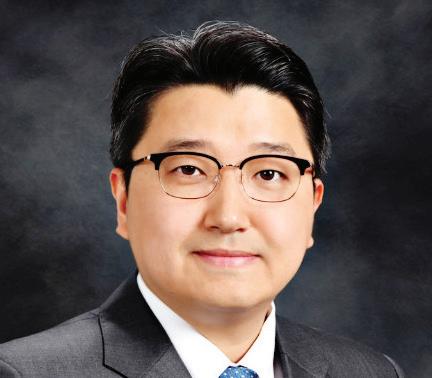
22 Spotlight On Research May 2023
Joanne Luciano | University of
of
Joanne Luciano University of the Virgin Islands
Young Sik Cho Jackson State University
Arim Park and Huan Li | North Carolina A&T State University | The Effect of Blockchain Technology on Supply Chain Sustainability Performances

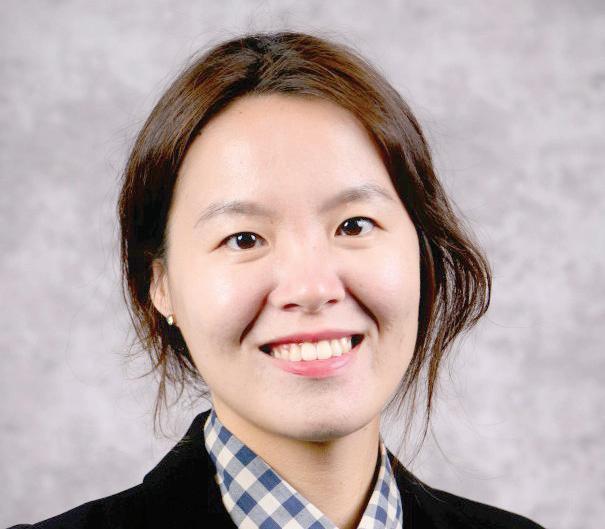
This paper focuses on the use of novel blockchain-based supply chain management and its potential sustainability performances in environmental protection, social equity, and governance efficiency. By conducting a systematic literature review and a case study, we aim to evaluate whether the three sustainability indicators can be improved along supply chains based on blockchain technology. Our study shows that blockchain technology has the potential to improve sustainability performance, and we expect a continuing increase in the popularity of blockchain technology applications in supply chain management.

Angelino Viceisza | Spelman College | Understanding Consumer Take-Up of FinTech and its Potential Value
This paper presents preliminary and incomplete evidence on how consumers interact with such platforms using survey and web-clicks data from a sample of 383 Central American migrants. The authors find that FinTech/information seems to impact decision-making. Additionally, the direction of such an effect depends on the nature of additional information, such as delivery speed versus reviews by prior customers. Finally, these effects depend on the amount of money being sent and the MTO in question. More work is needed to understand the robustness, generalizability, and underlying mechanisms of these findings.

Spotlight On Research May 2023 23
Arim Park North Carolina A&T State University
Angelino Viceisza Spelman College
Huan Li North Carolina A&T State University
Young Sik Cho | Jackson State University | A Study on Value Creation through Blockchain-based Supply Chain Networks in Lean Production System

This study explores the impact of blockchain technology on Lean management systems in supply chain networks. In the context of supply chain management, a blockchain-backed Lean system model and measurements for blockchain research are developed. The research model and hypotheses are empirically tested using a survey sample of 219 practitioners and managers in the United States. The results show that blockchain is being adopted in various use cases beyond industrywide payments and transactions. Structural Equation Modeling (SEM) analysis is performed, and the results show that adopting a blockchainbacked supply chain network significantly impacts supplier- and buyerrelated Lean practices. The SEM results also indicate that the blockchainbacked Lean system substantially affects the company’s operational performance, such as cost reduction, quality performance, delivery capacity, and operational flexibility.
Mary Dunaway and Dina El Mahdy | Morgan State University | Expanding Your Accounting / I.S. Classroom with Blockchain Technology: A Case Study Approach
In this research, the authors analyzed the need, impact, feasibility, and challenges of integrating real-world learning content related to Blockchain technology into the accounting/I.S. curricula. Their goal was to match the standards the Association to Advance Collegiate Schools of Business (AACSB) sets. The first draft of this research entitled: “Thinking Technology: Blockchain and the Future of Accounting Curricula” was presented at the 2019 Mid-Atlantic American Accounting Association.

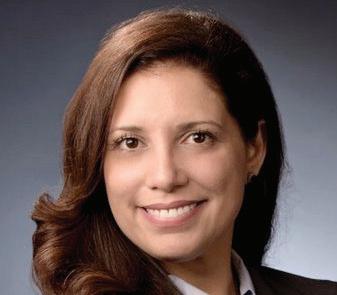

24 Spotlight On Research May 2023
Mary Dunaway Morgan State University
Young Sik Cho Jackson State University
Dina El Mahdy Morgan State University
Farshad Ghodoosi | Morgan State University | Making Smart Contracts Smarter
Ghodoosi explored the two principal problems with the existing smart contracts: first, the legal nature of intelligent contracts remains ambiguous and understudied. Second, smart contracts are very limited in scope and capability, barring more complex arrangements to be executed via Blockchain technology. Drawing from the existing and near-future smart contracts, his articles and presentations showed how smart contracts can be enforceable and smarter. That also showed that legal and societal concerns regarding intelligent contracts could be addressed by designing a dispute resolution network in intelligent contracts. By making so, more complex arrangements can be coded using Blockchain technology which in turn allows the smart contracts to be more innovative. Dr. Ghodoosi has completed a manuscript titled “Digital Solidarity: Contracting in the Age of Smart Contracts.” He presented this work at the 2019 Academy of Legal Studies in Business Annual Conference in Montreal and UBRI Connect at UC Berkeley. This article has been featured in the Machine Learning blog run by the Chinese University of Hong Kong. Moreover, this article is the top download article in the area of contract and commercial law.
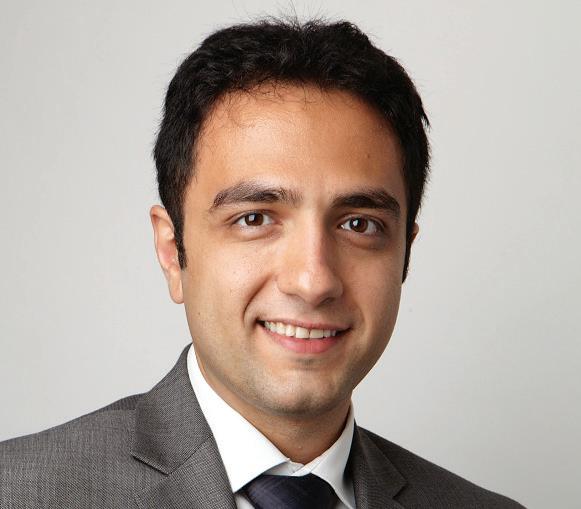




Eric Sakk | Morgan State University | The Application and Development of Machine Learning and Deep Learning Methodologies for the Blockchain Paradigm
Professor Sakk discusses the most important cryptocurrencies in the market, the technology behind them, the underlying factors affecting their price fluctuations, and preventive measures for ‘investing in safety.’ It identifies factors that affect their price fluctuations from practitioner / academic literature and conducts a Delphi study involving crypto-analysts to validate and rank order the factors. This research was submitted to the 2020 Conference of the Colloquium on Information Systems Security Education (CISSE), June 14-17, 2020, in Baltimore, MD.

Spotlight On Research May 2023 25
Farshad Ghodoosi Morgan State University
Eric Sakk Morgan State University
Monica M. Sharif | Morgan State University | Blockchain and Human Resources: Advanced Recruitment, Selection, and Compensation


Professor Sharif explored the gig economy, where it is now widespread for employees to change their employment frequently. In most organizations, employee turnover has steadily increased over the years and is now much higher than it used to be in the past. Human resource divisions are, therefore, continually inundated with recruitment and selection. This research explored how blockchain technology can aid human resource divisions by making some of their practices more efficient. In this research, she studied two potential ways blockchain can improve the functioning of human resource divisions in the gig economy: (1) verification in recruitment and selection; (2) intelligent contracts ease of compensation. She also examined two causes for concern that prospective and existing seven employees might raise when organizations use blockchain: (1) trust in the organization; (2) privacy. The findings of this research was submitted to The Leadership Quarterly and Journal of Management in December 2019, and a related article was offered in the Spring of 2020.
Sheela Thiruvadi and Abirami Radhakrishnan | Morgan State University | Cryptocurrency – A Million Dollar Dream or a Reality Check?

This paper discusses the most important cryptocurrencies in the market, the technology behind them, the underlying factors affecting their price fluctuations, and preventive measures for ‘investing in safety.’ It identified factors influencing their price fluctuations from practitioner / academic literature and conducted a Delphi study involving crypto-analysts to validate and rank order the factors.

26 Spotlight On Research May 2023
Monica M. Sharif Morgan State University
Abirami Radhakrishnan Morgan State University
Maxim Bushuev | Morgan State University | Blockchain Technology in Supply Chain Management
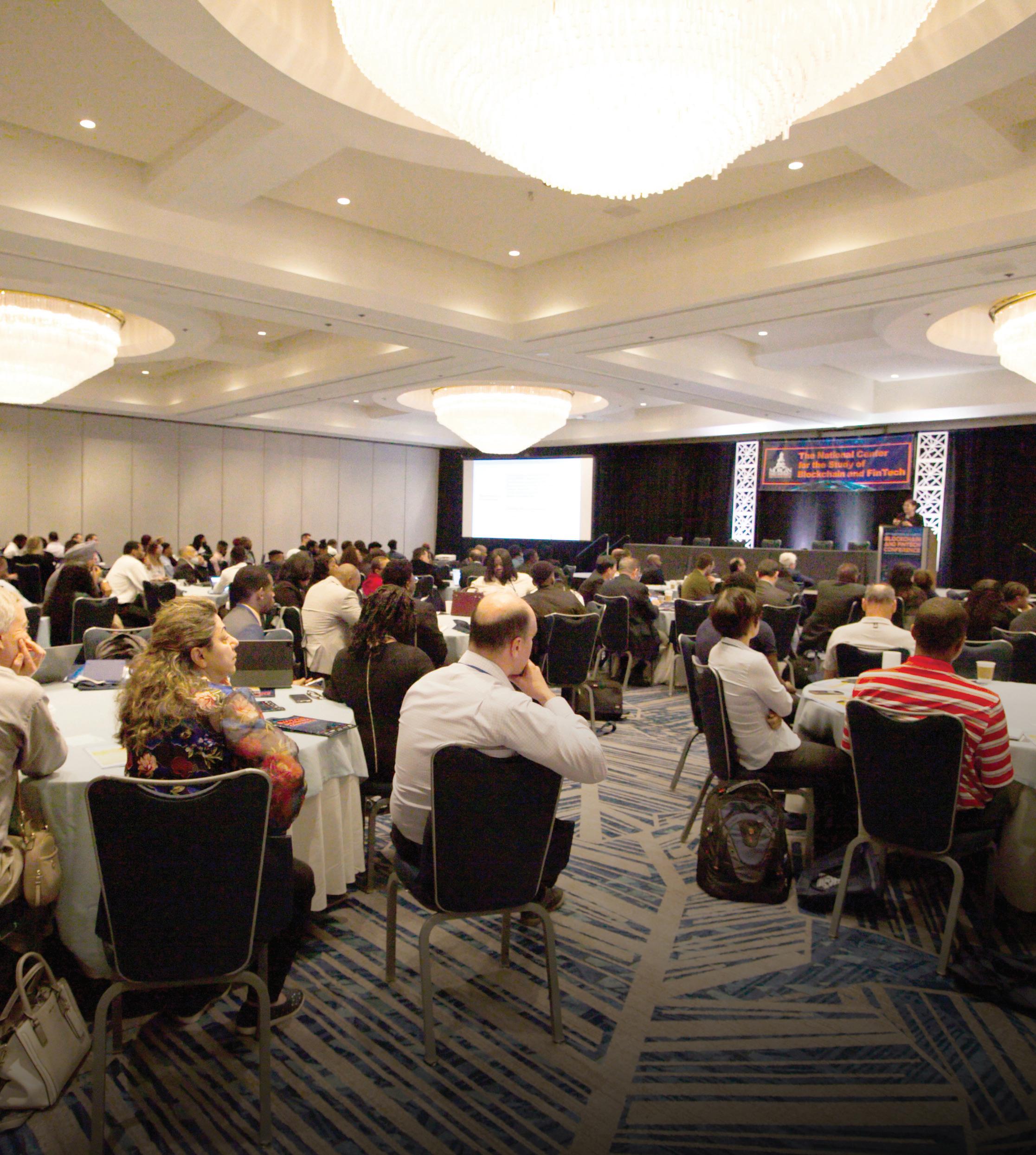
His research goal is to improve the supply chain coordination mechanism within decentralized supply chains. In pursuit of this goal, Dr. Bushuev studies the problem of supply chain delivery coordination, where he implements penalties for untimely delivery in Blockchain smart contracts. He proposes a system that will provide hands-on experience with Blockchain technology to students and allow students to manage a company within a supply chain. Dr. Bushuev has recently applied for an NSF grant to create a Blockchain system for education.

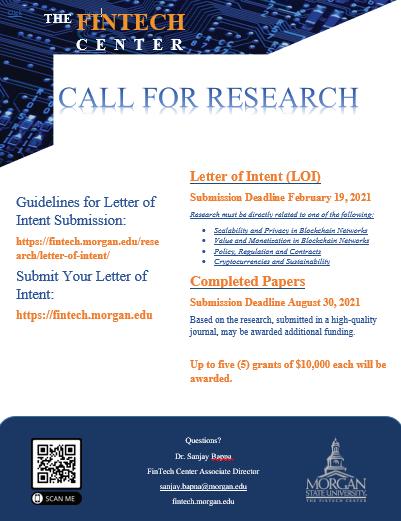
Spotlight On Research May 2023 27
Maxim Bushuev Morgan State University
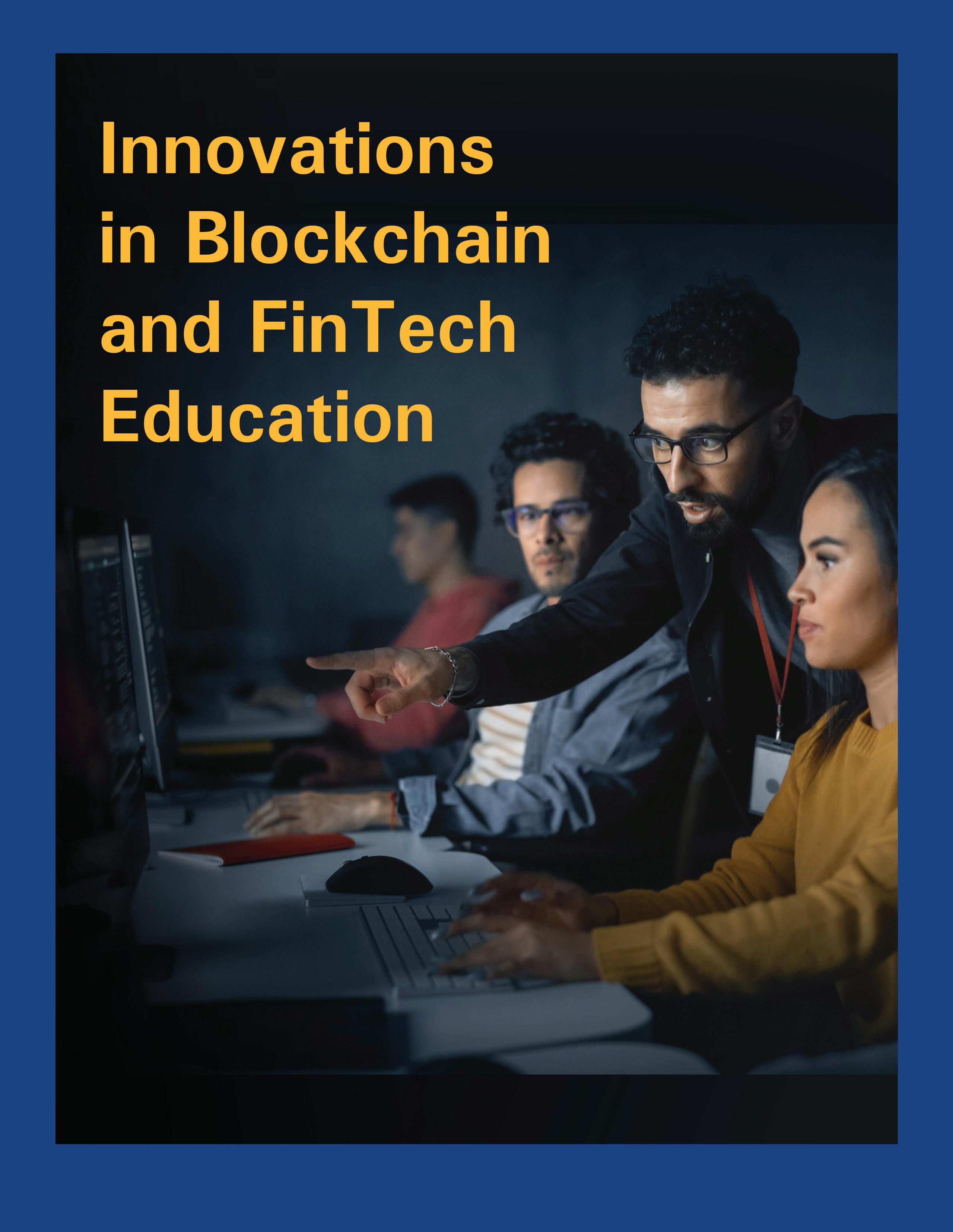
28 Spotlight On Research May 2023
One of the successful and impactful programs that the National FinTech Center launched in 2020 was the grant program to encourage innovations in education in blockchain and FinTech on HBCU campuses. The grants are significant as they provide students with hands-on experience with cutting-edge technologies.
HBCUs are an essential resource for closing the digital divide, promoting economic and social mobility, and building a more diverse workforce in the technology sector. Therefore, supporting the development of innovative educational blockchain, cryptocurrency, and FinTech activities and programs on HBCU campuses is crucial for promoting the growth of the technology industry and its democratization.
Starting in 2020, the National FinTech Center awarded up to ten competitive innovation grants of $10,000 to faculty members from several HBCUs to develop and implement innovative educational activities and programs focusing on blockchain, cryptocurrency, and FinTech on their campuses. These programs aimed to
increase awareness among students and faculty members about blockchain and financial technology through workshops and certifications.
At Southern University and A&M College in Baton Rouge, the PI conducted a series of classroom lectures on blockchain
technologies using IBM online resources. The project aimed to increase awareness of blockchain and FinTech among undergraduate and graduate students from diverse backgrounds. Many students completed IBM blockchain certifications, fulfilling the project’s goal.

Spotlight On Research May 2023 29
Levi “Christian” Pearson and Isaac McCoy Stillman College
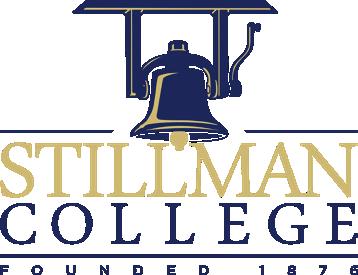
Levi “Christian” Pearson and Isaac McCoy of Stillman College developed an accelerated curriculum to prepare non-technical students to operate and manage the Decentralized Autonomous Organization (DAO). The project aimed to educate students on the value proposition of Web3 and crypto by helping them organize a DAO on the Solana blockchain. The project also introduced non-technical students to building on Solana and laid the groundwork for a student-run crypto/ Web3 company at Stillman to raise a seed round.

Robert Tedeschi
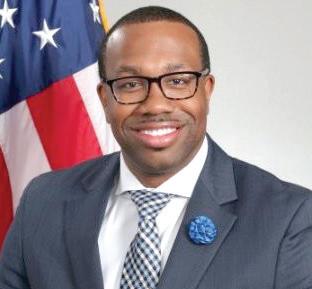
Edward Waters University (formerly Edward Waters College)

Robert Tedeschi of Edward Waters University created an asynchronous module on understanding cryptocurrency, financial technology, and blockchain. The workshop, consisting of three asynchronous/online sessions, supported degree completion and allowed participants to understand cryptocurrency issues.
Jack Crumbly of Tuskegee University disseminated fliers about a blockchain project to seniors in finance, accounting, and computer science. Students received training from Matthew Kronick of Kenja Blockchain, replicated the project, and presented their work to IT experts. In-person sessions conducted from September to November 2022 involved experts in Design Thinking. The project’s goal was to expose students at Tuskegee University to blockchain technology through a series of 8-10 sessions in the Fall 2022 Semester.
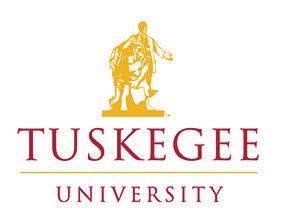
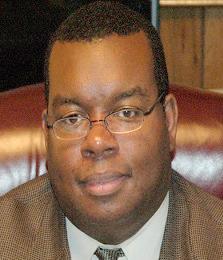
30 Spotlight On Research May 2023
Jack Crumbly Tuskegee University
Richard Maiti Kentucky State University
Richard Maiti of Kentucky State University developed a blockchain project where participants received a campus token, the Thorocoin. These tokens were transferred to the wallets of the participants to a redeemable gift card for the Bookstore. The project aimed to teach the skills needed to build an autonomous chain for Kentucky State’s campus and academics, utilizing the Solana chain due to its user-friendly interface and low gas fees. The project included blockchain awareness workshops that helped determine the campus’ awareness profile and created a strong foundation for community interest and areas of understanding within the blockchain space. The project’s success paved the way for the next project to build a chain, focusing more on the specific needs of Kentucky State’s campus population.

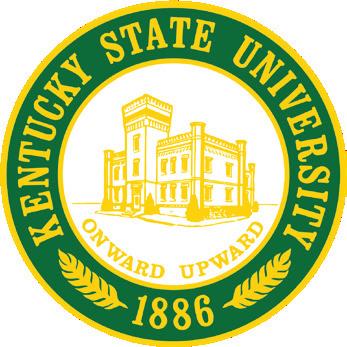
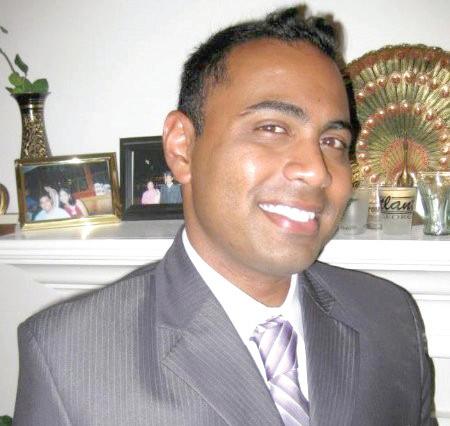
Shael Wolfson Xavier University of Louisiana
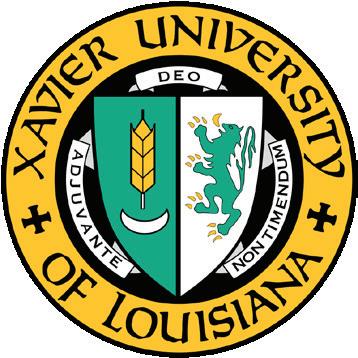
Shael Wolfson of Xavier University of Louisiana created a campus NFT, a landing page, and constructed and deployed three smart contracts for NFT minting and claiming, exposing students to the process of designing and implementing an NFT project. The project achieved its goals of having around 100+ NFTs claimed, creating a landing page, and constructing and deploying three smart contracts for NFT minting and claiming.
The FinTech Center continued the Innovations in Blockchain and FinTech Education Program and awarded grants to faculty members at several HBCUs to introduce innovative educational programs in blockchain and FinTech. These programs aimed to equip students with the knowledge and skills necessary to succeed in the rapidly-evolving financial technology industry. These grants had a significant impact on the participating universities, as they allowed students to develop entrepreneurial skills and gain experience in emerging technologies.
Spotlight On Research May 2023 31
Jifeng Mu Alabama A&M University
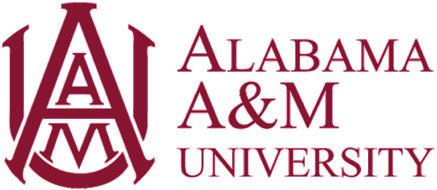

Jifeng Mu of Alabama A&M University project focused on turning blockchain ideas into commercially viable products or firms. The project involved a startup pitch competition in which students proposed novel blockchain business ideas. The project held seminars, met with student teams and participants weekly, and coached student teams on their projects such as proposal writing, idea refinement, exchanging ideas between the coach and each student team, and final blockchain idea pitch. This project had a direct impact on students’ career paths by teaching them how to write an idea pitch proposal and how to improve it step by step.
Ashley Thomas Alabama State University
Ashley Thomas of Alabama State University and the Alabama State University Blockchain Think Tank, aimed to build relationships across disciplines, including and beyond cryptocurrencies, to pioneer innovative technologies. The project partnered with domestic and global businesses, start-ups, and investors to promote leadership in blockchain and FinTech innovation. It extended student knowledge and experience with blockchain and FinTech beyond knowledge and use of cryptocurrencies to model creation. The project also helped students use blockchain and FinTech to solve problems and address economic inequities and community issues while encouraging discussions about blockchain and FinTech among students and within their spheres of influence.


32 Spotlight On Research May 2023
Kamal Hingorani of Alabama State University aimed to prepare students, faculty, and staff for the IBM Blockchain Essentials V2 badge. The project conducted a series of workshops both in class and through Zoom to facilitate earning the badge. A total of 140 people, including 107 students, 16 faculty, and 17 staff, completed the Blockchain Essentials course and earned the badge.

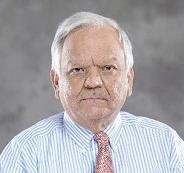
Shonda Bernadin of Florida A&M University, Blockchain Workshops-On-TheGo, aimed to create an adaptable and sustainable learning environment for teaching blockchain technologies, stimulate interest and awareness of blockchain and FinTech research to a broad audience at FAMU, and motivate more STEM students to pursue career pathways in blockchain. The project developed six differentiated instructional lesson plans on blockchain technologies and created two mobile labs to deliver lessons and workshops in a variety of learning spaces. The lesson plans included a discussion on career pathways in blockchain. In the workshops, since most of the participants were from engineering, a brief discussion of a blockchain engineer was given.
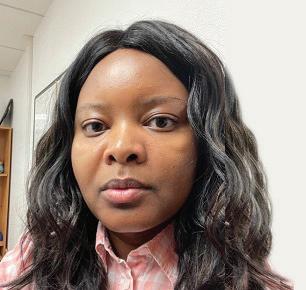

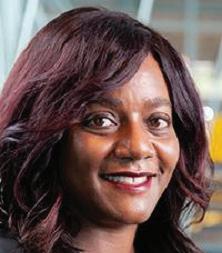
Abena Primo of Huston-Tillotson University was an educational blockchain newsletter designed to engage students in FinTech. The purpose of this newsletter was to raise awareness of blockchain and FinTech among students. The project involved faculty from multiple disciplines and aimed to provide knowledge about “hot” topics in blockchain/FinTech through articles in the newsletter. Nine newsletter articles were distributed, and students from 15 majors read and took part in post-article surveys.
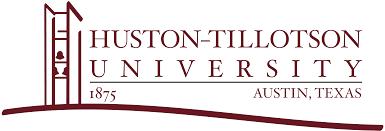
Spotlight On Research May 2023 33
Kamal Hingorani Alabama State University
Shonda Bernadin Florida A&M University
Abena Primo Huston-Tillotson University
Mohammad Salam Southern University and A&M College


Mohammad Salam of Southern University and A&M College aimed to enhance awareness among the student population about blockchain and financial technology by developing a Blockchain FinTech Club (BFC). The project involved 23 students who completed IBM essential blockchain certification, and among these students, 19 completed IBM blockchain foundation developer certification. The project had four seminars with invited speakers from IBM, Microsoft, and other professionals. The project had a positive impact on the student population by enhancing awareness about blockchain and financial technology.
Millicent Springs-Campbell Spelman College


Millicent Springs-Campbell of Spelman College, designed an educational game development project called “GameOn!!!”. The project involved a hackathon where students could create educational game applications that would help them gain knowledge and understanding of blockchain and financial technology. The project also included a lecture series delivered by academics, researchers, and executives in the blockchain and FinTech community, which provided students with valuable insights into the industry.
The lecture series, which was supported by NYC FinTech Women, covered topics such as blockchain technology, financial technology, game play for learning, how to build technology learning games, and the future of blockchain and FinTech. The hackathon allowed students to explore various aspects of blockchain and FinTech and create sustainable start-ups in the discipline of game learning. The categories for judging were innovation, sustainability, and potential profitability, and stipends were awarded to eight participants.
34 Spotlight On Research May 2023
Jack Crumbly of Tuskegee University designed the “2021 LET US Academy” to expose students to blockchain technology through a series of seminars delivered by speakers from IEEE, IBM, and others. The goal was to provide students with an in-depth understanding of blockchain technology and design thinking. Ten virtual sessions were conducted from September to November 2021, and each session lasted for one hour.

INNOVATION GRANT:

Students: 1,489
Faculty and Administrators: 163
Shael Wolfson of Xavier University of Louisiana created “Xavier University Crypto on Campus (XUCC),” which aimed to create and deliver a token that could be used on campus. The project also sought to engage students in an experiential learning experience by downloading a digital wallet and transacting with a digital token. A survey of the campus community was conducted to gauge general attitudes and knowledge around cryptocurrencies and blockchain.

As a resource hub in blockchain and FinTech, the FinTech Center has granted funds to Historically Black Colleges and Universities (HBCUs) to implement innovative teaching methods such as games and experiential learning in complex subjects like blockchain and FinTech. The Center aims to provide HBCU faculty with the necessary resources to develop new
and effective teaching strategies that can enhance student engagement and learning outcomes. By offering practical experience and expertise in these rapidly growing fields, these grants align with the Center’s mission to bridge the gap between minority communities and the FinTech industry, ultimately building a bridge to future career opportunities.

Spotlight On Research May 2023 35
Jack Crumbly Tuskegee University
Shael Wolfson Xavier University of Louisiana
Shonda Bernadin Florida A&M University
Shonda Bernadin, Florida A&M University (FAMU). The project, titled “A Technical Skill Build Workshop on Blockchain,” involved a two-day blockchain workshop for Engineering and Computer Science Applications. Students were able to engage in an immersive learning environment to earn IBM blockchain digital badges. There were 64 registrants for this workshop, including 3 faculty and 36 active student participants. Out of those, 14 earned the first badge and 2 earned the second badge. This experience provided students with technical skills that will be valuable in their future careers.


Abena Primo Huston-Tillotson University
Abena Primo of Huston-Tillotson University led the project titled “Innovation with Blockchain Competition.” This project involved an Introduction to Blockchain Webinar for students and faculty, which engaged 53 students and 4 faculty members. The blockchain competition involved 10 students and 5 faculty (3 faculty team members and 2 faculty reviewers). At least one student is seeking internship opportunities. This competition allowed students to apply their knowledge in a competitive setting and gave them a chance to network with faculty members and potential employers.



Tiffany Bussey Morehouse College
Tiffany Bussey of Morehouse College led the project titled “5-Week Course on Blockchain Use Cases for Business.” The course covered various topics such as Introduction to Blockchain, Introduction to Hyperledger and Hyperledger Frameworks, Hyperledger Tools, Future of Blockchain in Business, and Prototyping. Five students expressed interest in completing the Linux Foundation Intro to Blockchain Course to obtain the certificate. The students gained the knowledge needed to develop their own business use cases for blockchain technology. This course gave students a comprehensive understanding of blockchain use cases in the business world and provided them with the skills necessary to apply blockchain technology in real-world situations.

36 Spotlight On Research May 2023
Mary Ann Hoppa Norfolk State University
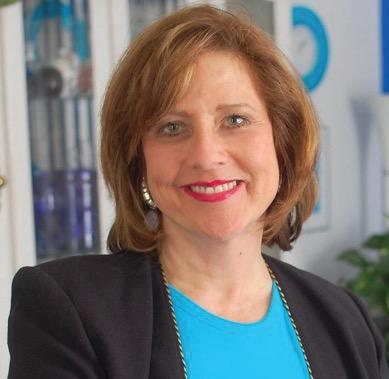
Mary Ann Hoppa of Norfolk State University led the project titled “Establishing a Student-led Blockchain Club.” This project involved monthly meetings of students and a one-day faculty workshop. Students are becoming certified in Python to compete in a Python Code-a-thon for the winter term. This club provides students with a platform to learn and discuss the latest trends and developments in blockchain technology, as well as the opportunity to apply their skills in a competitive setting.
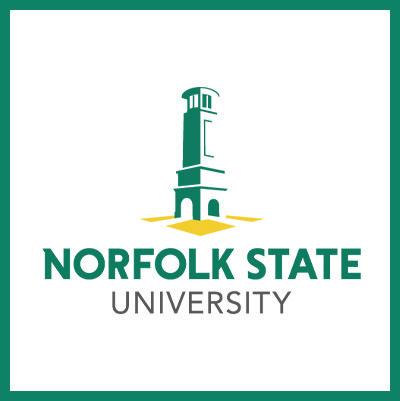
Millicent Springs-Campbell Spelman College



Millicent Springs-Campbell of Spelman College, led the project titled “Increasing Knowledge of Blockchain and Financial Technology for Minority Women Students to Create Job Opportunities and Entrepreneurial Ventures.” This project involved a 6-session virtual lecture series and a start-up idea competition that was held at the end of the lecture series. The lecturers provided career and entrepreneurship mentorship to the students. Research has shown that women and minorities are underrepresented in the blockchain and FinTech industries, so this project is especially significant in providing these students with the knowledge and resources they need to succeed in these fields.
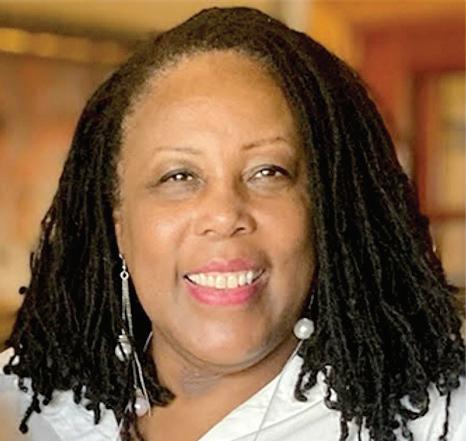
Floran Syler-Woods Stillman College
Floran Syler-Woods of Stillman College led the project titled “Blockchain Learner Podcast.” This project involved an interview-based podcast including 12 podcast discussions/interviews of faculty, practitioners, and experts on various Blockchain and FinTech subjects. As of early December, there have been 133 downloads / plays while the website reported 50 site sessions. This podcast provides students with access to industry experts and valuable insights into the latest trends and developments in blockchain and FinTech.
Spotlight On Research May 2023 37
Joanne Luciano University of the Virgin Islands
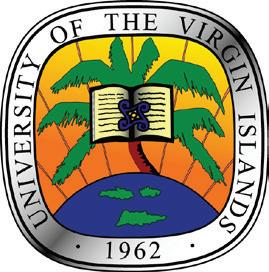
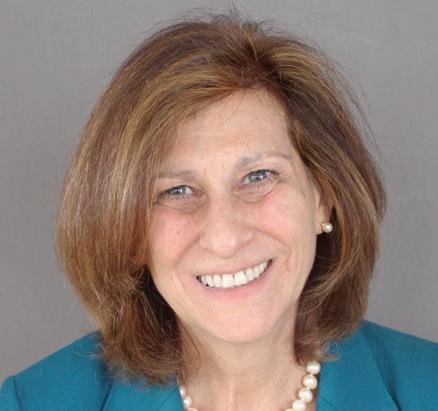
The FinTech Center’s grants to faculty at HBCUs have paved the way for a groundbreaking pilot project that showcases the practical applications of blockchain in supply chain management and sustainability. Under this project, scholars like Joanne Luciano of the University of the Virgin Islands collaborated with the National FinTech Center and conducted a proof-of-concept study, titled “The Emerald Archipelago Supply Chain Use Case,” which successfully applied blockchain technology to address local supply chain challenges in the farming industry of the US Virgin Islands. The project utilized blockchain smart contracts to help restaurants and local residents access locally grown foods. The significance of this pilot project goes beyond its potential impact on local communities. It is a practical example of how blockchain can revolutionize supply chain management and foster sustainability across industries. Moreover, it is a testament to the value of introducing educational innovations and hands-on learning experiences in blockchain and FinTech. Students who participated in this project had the opportunity to gain valuable experience in utilizing blockchain technology in real-world scenarios. In addition to the project itself, various educational activities were held to engage students and faculty in the learning process. These included information sessions, networking events, and webinars that provided students with insights into the practical applications of blockchain in the business world. The Hyperledger Foundation supported these initiatives by providing ongoing mentorship and access to the latest blockchain technology developments. Overall, the pilot project and related educational activities demonstrate the FinTech Center’s commitment to equipping students with practical skills and knowledge in blockchain and FinTech. By empowering the next generation of innovators and entrepreneurs, these initiatives are creating a more sustainable and equitable future for all.
Alexander Yap North Carolina A&T State University
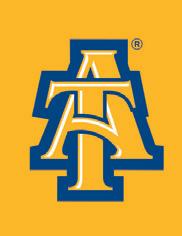
Alexander Yap’s project’s goal was to host a one-day Blockchain symposium for faculty and students at North Carolina A&T State University, a Historically Black University in Greensboro, NC. In addition to serving faculty and students at the host institution, faculty and students from the eight additional Historically Black Colleges /Universities were also invited to attend.

38 Spotlight On Research May 2023
“During this program, I learned a lot - from dollar backed stable coins to crypto pairings to crypto’s origin story. The reason I am so excited about crypto is because it was originally created for a greater good, it was built out of the mistrust of banks. I believe that investing in crypto is key to the next generation of entrepreneurs and has the opportunity to make life better for my family and my community. In fact, I started a cleaning company in Baltimore which caters specifically to fellow working mothers and we plan to accept cryptocurrencies at my business in the future.”
 Christina Coleman Business Administration, Morgan State University
Christina Coleman Business Administration, Morgan State University
Spotlight On Research May 2023 39
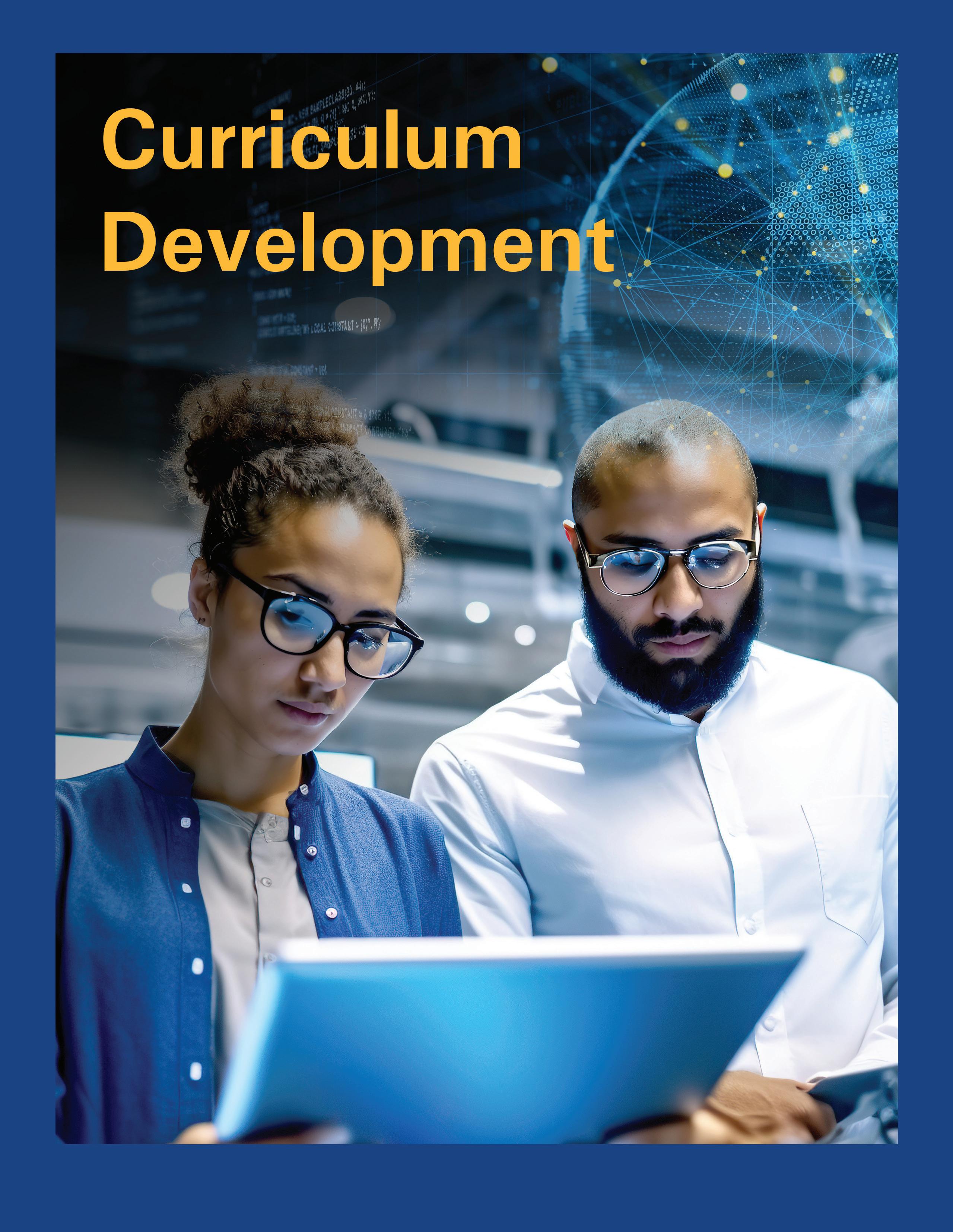
40 Spotlight On Research May 2023
The National FinTech Center has played a profound role in supporting Morgan State University, as well as all HBCUs in the national arena, by leading the efforts to inform and educate students in these emerging fields.
One notable example comes from Edwards Waters University, where Robert Tedeschi, Seong Yoon, Kevin Austin, and Felicia Wider-Lewis utilized their learning management systems to create asynchronous modules on understanding cryptocurrency, financial technology, and blockchain. They successfully provided three hybrid workshops with guest speakers, aiming
to demystify the challenges and opportunities in financial technology for the greater Edwards Waters Community. Through their efforts, a certificate program was developed from the assessment, with prospects of a new course on financial technology that addresses blockchain and cryptocurrency. Pre and post assessment data were gathered to evaluate the
quality and effectiveness of the workshops and modules, showcasing the commitment to measuring and enhancing the educational impact.
At Florida Agricultural and Mechanical University, Shonda Bernadin introduced four blockchain lessons into separate courses in the engineering and computer science curriculum.

Spotlight On Research May 2023 41
The development of new courses and modification of existing courses with blockchain and related cutting-edge content is of paramount importance in equipping students with the knowledge and skills required to thrive in the evolving landscape of financial technology (FinTech).
These lessons were integrated into EEE 4872 - Introduction to Artificial Intelligence (9 students), CNT 4406 - Cryptography (17 students), CNT 4504 - Data Communications and Org Networks (22 students), and CIS 5396 - Cybersecurity Forensics (10 students). By infusing blockchain content into these courses, Bernadin empowered students with a comprehensive understanding of blockchain technology and its relevance in their respective fields.
Southern University and A&M College’s Department of Computer Science took a significant step by introducing a Blockchain concentration in their undergraduate curriculum, led by Mohammad Salam. This initiative ensures that students receive specialized education and training in blockchain technology, preparing them for future roles in the FinTech industry. By incorporating blockchain into the curriculum, the university enhances
the educational experience and equips students with the skills required to navigate the evolving landscape of digital finance. The Morgan FinTech Center has also made notable contributions to curriculum development through various workshops and institutes.
The Curriculum Development Institute, organized by Morgan State University, attracted faculty from diverse departments who were interested in introducing blockchain concepts into their courses. Faculty members from departments such as Fine and Performing Arts, Business Administration, Multimedia Journalism, Civil Engineering, Teacher Education and Professional Development, and Public Health attended the workshop. The institute showcased the basics of distributed ledger technology and presented resources and educational materials that exemplified the use cases of blockchain across multiple
industries. This initiative not only educated faculty members but also empowered them to incorporate blockchain into their courses, thus disseminating knowledge to a wide range of students.
Additionally, a workshop specifically designed for faculty in the Graves School of Business delved deeper into FinTech and cryptocurrencies, exploring how these concepts could be integrated into upper-level courses. The participation of 38 faculty members in these workshops highlights the commitment of the National FinTech Center and Morgan State University to equip educators with the knowledge and tools necessary to integrate cutting-edge content into their teaching.
The HBCU Blockchain Curriculum Development Institute, held in New Orleans, further demonstrates the commitment of the National FinTech Center to HBCUs. The institute
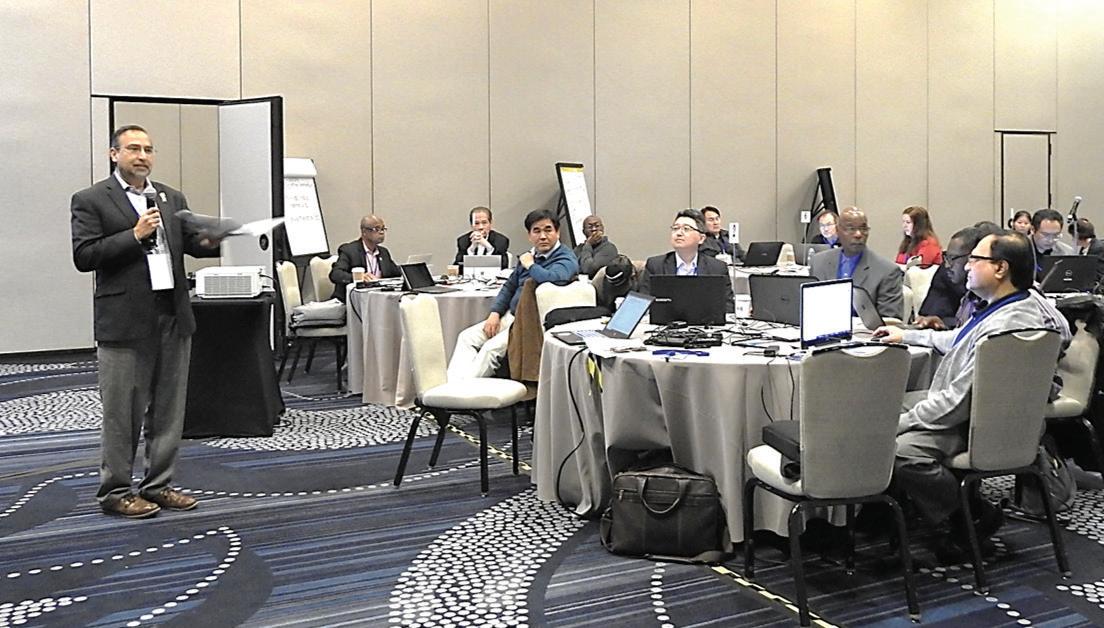
42 Spotlight On Research May 2023
brought together faculty from 45 HBCUs for three days of intensive training and collaboration. As a result, 37 courses were modified, and eight newly developed courses incorporating blockchain and FinTech-related content were introduced at 30 HBCUs in the spring semester of 2020. This wide-reaching impact ensures that over 1,000 students across these institutions had the opportunity to learn about blockchain and FinTech, preparing them for the future of finance and technology.
Dr. Dessa David, a faculty member at Morgan State University, taught the course “Blockchain Fundamentals” in the Department of Information Science and Systems during the fall semester of 2018. Initially, 15 students enrolled in the course, which provided them with a comprehensive understanding of blockchain technology. In addition to this course, seven MSU faculty members have developed new courses or modified existing courses to incorporate blockchain content, spanning various fields such as artificial intelligence, machine learning, programming
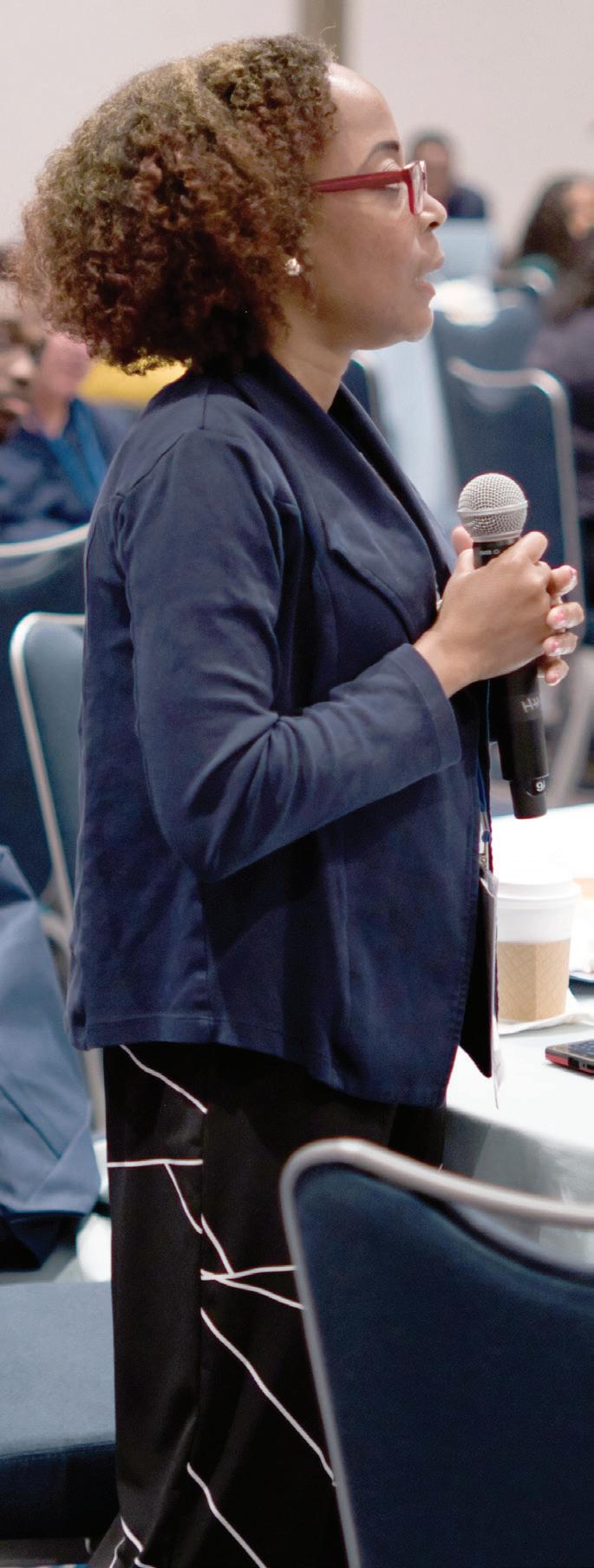
instruction, accounting, auditing, and entrepreneurship. These faculty-led initiatives demonstrate the commitment of Morgan State University to integrating blockchain into the curriculum across disciplines, ensuring students are well-prepared for the emerging job market.
In conclusion, the National FinTech Center has played a pivotal role in driving the development and modification of courses with blockchain and related cutting-edge content at HBCUs. The examples provided from Edwards Waters University, Florida Agricultural and Mechanical University, Southern University and A&M College, and Morgan State University highlight the profound impact of these efforts. By fostering collaboration, providing resources, and organizing workshops and institutes, the National FinTech Center has supported faculty members in incorporating blockchain into their courses, thus equipping students with the knowledge and skills needed to succeed in the rapidly evolving fields of FinTech and digital finance.
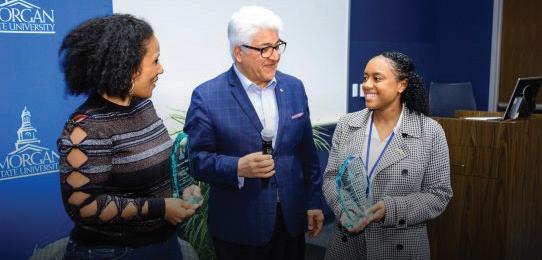
Spotlight On Research May 2023 43
HBCU Blockchain Curriculum Development Institute, New Orleans October 31 - November 2, 2019
The HBCU Blockchain Curriculum Development Institute, held in New Orleans from October 31 to November 2, 2019, was an intensive three-day workshop aimed at assisting faculty from 30 Historically Black Colleges and Universities (HBCUs) in developing blockchain and FinTech-related content for their courses. The institute brought together a diverse group of 45 faculty members who had submitted competitive proposals to receive the Institute fellowship, which covered most of their expenses for the event.
The primary objective of the workshop was to empower faculty members with the knowledge, skills, and resources necessary to incorporate blockchain technology and FinTech concepts into their courses, thereby enhancing the educational experience for their students. The workshop focused on collaborative development, fostering an environment of shared expertise and innovation among participants.
To support the participating faculty in the development of their syllabi, the workshop enlisted the guidance and mentorship of renowned experts from Morgan State University, UC Berkeley, Duke University, and the University of Michigan. These mentors provided valuable insights, best practices, and industry perspectives, serving as a catalyst for the faculty to explore new ideas and approaches.
The learning outcomes of the workshop were extensive and far-reaching. By the end of the three-day institute, the participating faculty had gained a deep understanding of blockchain technology, its applications, and its impact on the finance and technology sectors. They had the opportunity to explore various case
studies and real-world examples, enabling them to contextualize blockchain concepts within their respective disciplines.
Through collaborative sessions and group discussions, the faculty members engaged in the development and enhancement of their courses. They exchanged ideas, shared resources, and worked together to integrate blockchain and FinTech-related content seamlessly into their syllabi. The workshop provided a platform for interdisciplinary collaboration, fostering a dynamic environment where faculty members from diverse fields could leverage their expertise to create comprehensive and engaging course materials.
The results of the HBCU Blockchain Curriculum Development Institute were impressive. As a direct outcome of the workshop, more than 1,000 students across 30 HBCUs had the opportunity to learn about blockchain and FinTech during the spring semester of 2020. A total of 37 existing courses were modified to incorporate blockchain content, ensuring that students received updated and relevant education. Additionally, eight brand-new courses were developed, addressing emerging topics and cuttingedge advancements in the field of blockchain.
The institute not only empowered faculty members with the necessary knowledge and skills but also provided a supportive network of peers and mentors who would continue to collaborate and exchange ideas even after the workshop concluded. This network fostered ongoing professional development and encouraged the sharing of best practices among HBCUs nationwide.
44 Spotlight On Research May 2023
Dr. Dessa David | Morgan State University
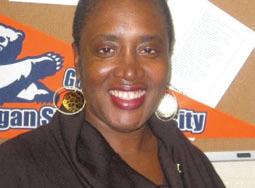
Department of Information Science and Systems
Fall semester of 2018 | INSS 410: Blockchain Fundamentals
INSS 410: Blockchain Fundamentals was taught in the Department of Information Science and Systems. Fifteen (15) students were initially enrolled in the course. In addition, seven MSU faculty have developed new courses or modified existing courses with blockchain content, including:
● Introduction to Artificial Intelligence and Machine Learning
● Integration of Blockchain Concepts into Programming Instruction
● Accounting and Auditing
● Entrepreneurship
Spotlight On Research May 2023 45
“I plan on getting my PhD in biotechnology and find a way to combine my biological background with my passion for finance. I am extremely passionate about investments and financial markets. I want to own biotech companies and invest in various assets; also manage other individual’s assets.”
Ismael Busso
Biotechnology, Morgan State University

46 Spotlight On Research May 2023
These online events provided a unique platform for lawmakers, regulatory agency commissioners, and directors, as well as industry and academic experts to convene and explore the evolving landscape of these transformative technologies. By bringing together diverse perspectives and expertise, the webinars facilitated in-depth discussions and analysis, enabling participants to gain valuable insights and contribute to the ongoing development of policies and regulations in these domains.
The webinars served as a crucial forum for all stakeholders to deepen their understanding of Blockchain, FinTech, and Cryptocurrencies, and to address the challenges and opportunities they present in today’s rapidly evolving digital economy. Through engaging presentations, interactive panel discussions, and dynamic knowledge sharing, the FinTech Center succeeded in fostering a collaborative environment that promoted meaningful dialogue and exploration of key issues
surrounding these emerging technologies.
This section of the report aims to provide a comprehensive overview of the webinars organized by the FinTech Center. It will delve into the prominent themes discussed, the notable participants who contributed their expertise, and the significant outcomes and recommendations that emerged from these insightful sessions. By examining the collective wisdom and expertise shared during these webinars, we can gain a deeper understanding of the current state and future prospects of Blockchain, FinTech, and Cryptocurrencies, as well as the policy and regulatory implications that arise from their widespread adoption.
The participation of lawmakers, regulatory agency commissioners and directors, and industry and academic experts in these webinars underscores the significance and relevance of the topics discussed. Their
WEBINARS:
1,317 Attendees
engagement demonstrates a shared commitment to staying informed, informed, and actively shaping the future trajectory of these transformative technologies. The insights gained from these esteemed participants serve as invaluable resources for policymakers, regulators, and industry professionals seeking to navigate the complex landscape of Blockchain, FinTech, and Cryptocurrencies.
In the following sections, we will delve into the highlights of the FinTech Center’s webinars, shedding light on the key discussions, presentations, and outcomes. By examining the valuable contributions made by the participants, we aim to provide a comprehensive overview of the knowledge shared and foster a deeper understanding of the implications and opportunities presented by Blockchain, FinTech, and Cryptocurrencies in today’s rapidly evolving digital era.

Spotlight On Research May 2023 47
The FinTech Center’s commitment to fostering knowledge and understanding in the fields of Blockchain, FinTech, and Cryptocurrencies has been realized through a series of insightful and informative webinars.
Tuesday, April 7, 2020
Jai Singh Arun discussed examples of moral, ethical, and responsible innovation activities being triggered by Blockchain technology in a webinar titled Blockchain for Social Good. Jai Singh Arun is a senior technology business executive and he has been driving IBM’s Cybersecurity, Blockchain, Artificial Intelligence, and Quantum Computing related innovations, solutions and services business strategy, development and go-to-market execution. He is a co-author of the book “Blockchain for Business” published in April 2019. Mr. Arun earned an MBA in Strategy, Marketing and Finance from Kenan-Flagler Business School at University North Carolina, Chapel Hill, and a Master of Engineering in Computer Engineering from VJTI, University of Mumbai, India and a Bachelor of Engineering in Computer Science from National Institute of Technology, Bhopal, India. He also attended Harvard University for an executive leadership and management program.
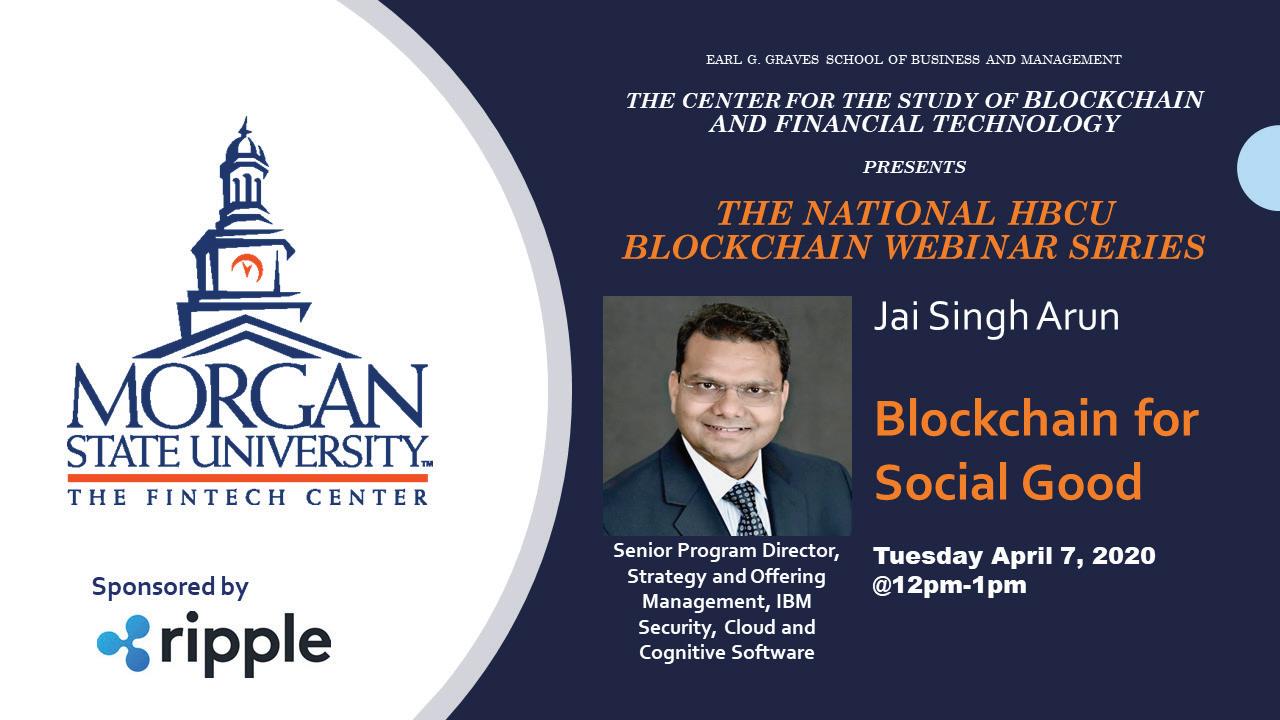
Thursday, April 9, 2020
The Future of HBCUs, Dr. Harry Williams discussed historical perspectives on the culture of HBCUs and the mindset that HBCUs will need to succeed going forward. Dr. Harry L. Williams serves as President & CEO of the Thurgood Marshall College Fund (TMCF), the nation’s largest organization exclusively representing the Black College Community. TMCF’s 47 member-schools make up the publicly supported Historically Black Colleges (HBCUs) and Predominantly Black Institutions (PBIs) which represent nearly 300,000 students. Dr. Williams has served as President of Delaware State University and held senior positions at the University of North Carolina General Administration, Appalachian State University, and North Carolina A and T State University. Dr. Williams earned his Bachelor’s and Master’s degrees from Appalachian State University, a Doctorate from East Tennessee State University, and is a member of Alpha Phi Alpha Fraternity, Inc.
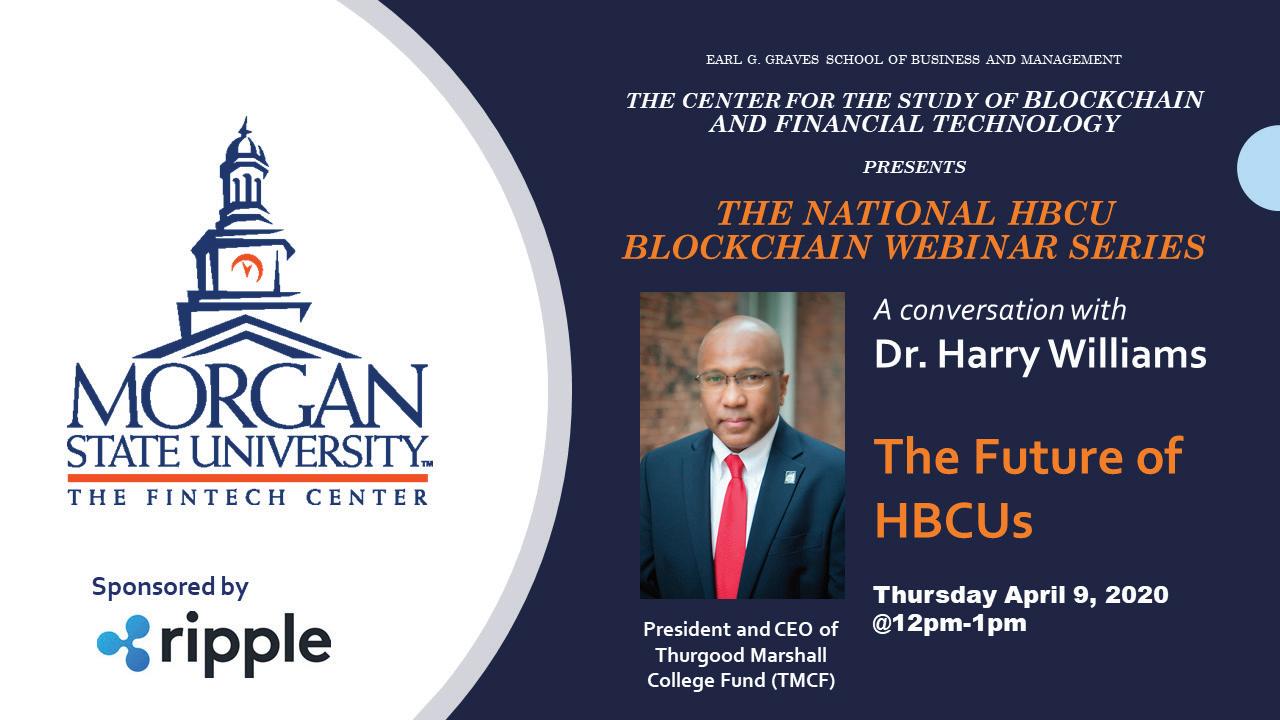
48 Spotlight On Research May 2023
Tuesday, April 14, 2020
The US Security Token Ecosystem
Mr. Richard Johnson explored the current landscape and examined the digital securities market and challenges as well as opportunities in this evolving space. Richard Johnson founded Texture Capital in 2019 to take advantage of the emerging opportunities in the digital securities space. Texture Capital is in the process of applying to FINRA for broker-dealer registration. Richard’s career spans over 20 years having held senior roles in electronic trading at Societe Generale, Liquidnet, and ITG. Recognizing the revolutionary potential of the technology, Richard pivoted to the cryptocurrencies and blockchain space in 2015, including as a research analyst at Greenwich Associates covering crypto, blockchain and equities market structure. Richard holds a BA in Economics and Statistics from the University of Exeter.
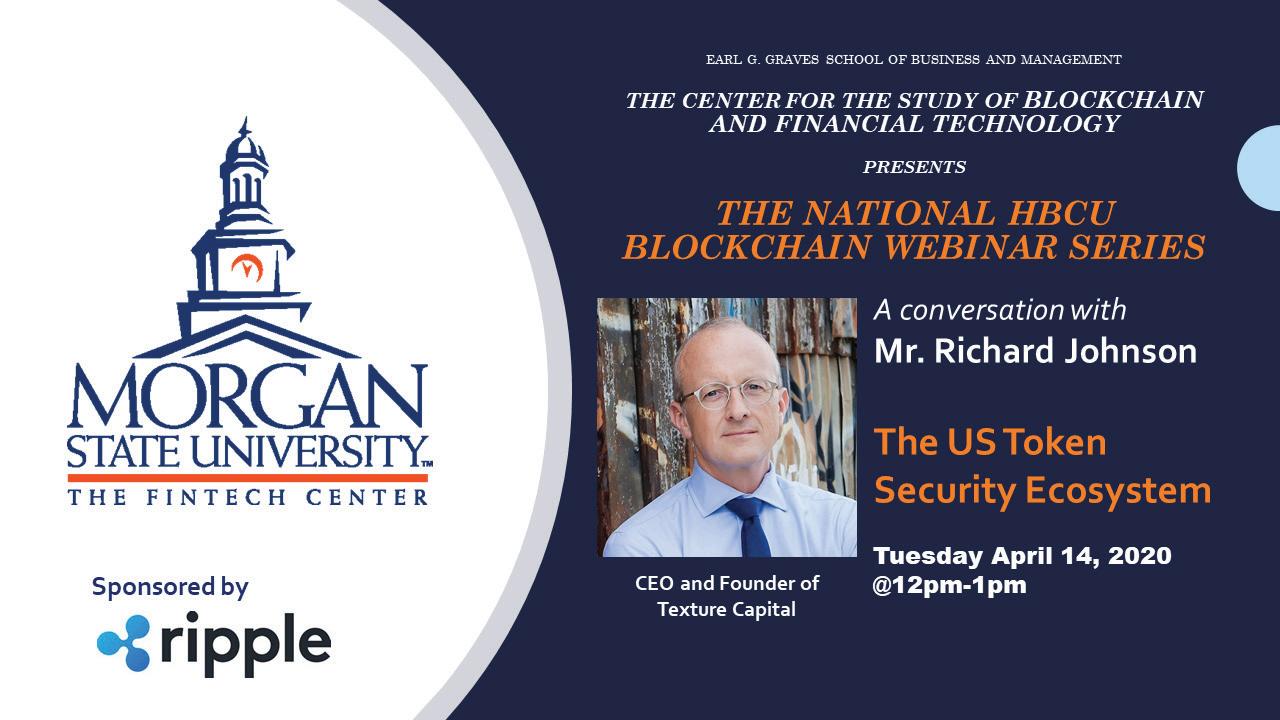
Thursday, April 16, 2020
A Conversation with SEC Commissioner Hester Peirce
Dr. Ali Emdad interviewed the Commissioner concerning what the SEC has done to clarify cryptocurrency regulation and policy and the SEC’s role is in supporting innovation in the digital economy. Hester M. Peirce was appointed by President Donald J. Trump to the U.S. Securities and Exchange Commission and was sworn in on January 11, 2018. Prior to joining the SEC, Commissioner Peirce conducted research on the regulation of financial markets at the Mercatus Center at George Mason University. She was a Senior Counsel on the U.S. Senate Committee on Banking, Housing, and Urban Affairs, where she advised Ranking Member Richard (continues on next page)
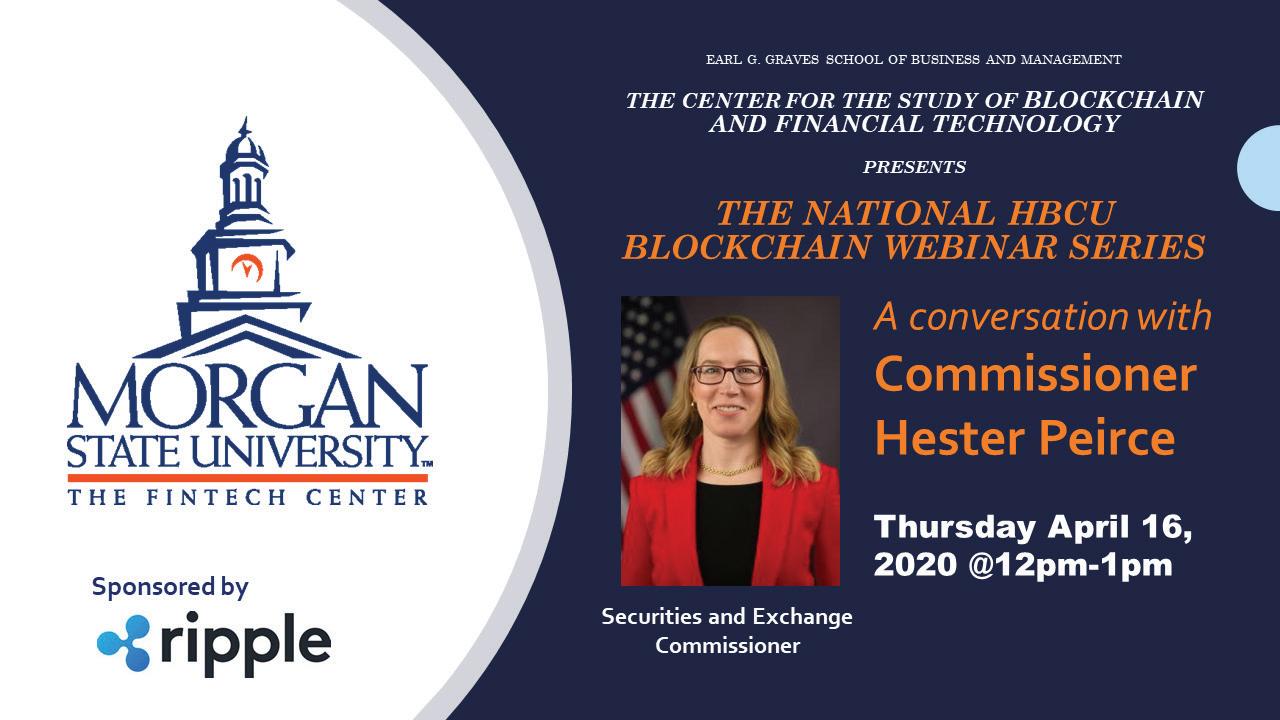
Spotlight On Research May 2023 49
Shelby and other members of the Committee on securities issues. Commissioner Peirce served as counsel to SEC Commissioner Paul S. Atkins. She also worked as a Staff Attorney in the SEC’s Division of Investment Management. Commissioner Peirce was an associate at Wilmer, Cutler and Pickering (now WilmerHale) and clerked for Judge Roger Andewelt on the Court of Federal Claims. Commissioner Peirce earned her bachelor’s degree in Economics from Case Western Reserve University and her JD from Yale Law School.
“I think we can learn from other countries that have tried different methods of working with innovators to help them navigate the regulatory framework and figure out where adjustments need to be made …” ~ Hester
Peirce
Tuesday, May 26, 2020
A Fireside Chat with Congressman Warren Davidson
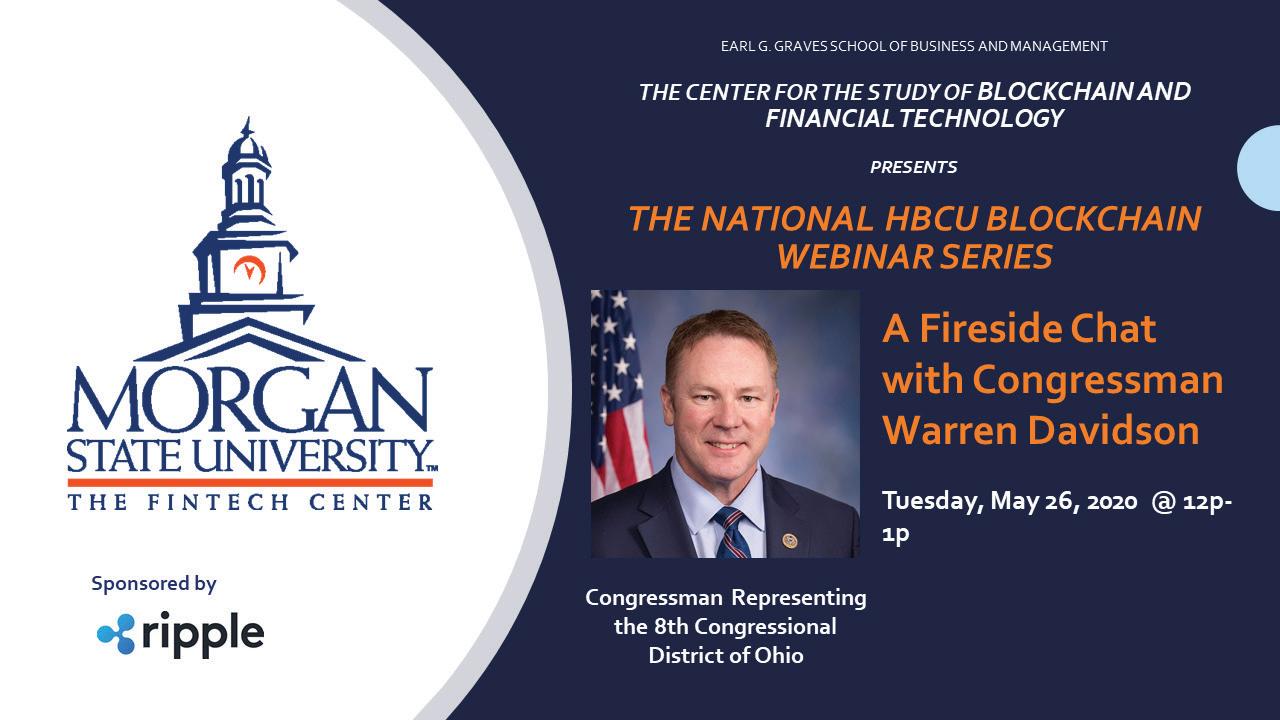
Dr. Ali Emdad interviewed Congressman Warren Davidson, the 8th Congressional District in Ohio. The Congressman discussed his insider view of upcoming challenges and pending legislation around the adoption of blockchain and FinTech on a national level. Warren Davidson Represents Ohio’s 8th Congressional District, serves on the House Financial Services Committee and the Congressional Blockchain Caucus. Congressman Davidson first enlisted in the Army after high school. He was stationed in Germany and witnessed the fall of the Berlin Wall. Warren later earned an appointment to the U.S. Military Academy at West Point, where he graduated near the top of his class. After the Army, Congressman Davidson earned an MBA from Notre Dame, and spent fifteen years operating manufacturing companies in Ohio.
Thursday, May 28, 2020
Turbulent Times: Why Add Bitcoin to Your Portfolio Now
Brian Estes, CIO and Managing Partner at Off the Chain Capital traced the history of money and the adoption of new technologies. Brian Estes, CIO and Managing Partner at Off the Chain Capital, has helped finance, build, and mentor 4 blockchain companies whose combined value is over $10B today. Prior to his involvement in blockchain in 2014, Brian was a leading endowment and foundation asset manager, ranking in the top 1/10th of 1% of Morningstar asset managers. Brian has his BA from the University of Illinois and MBA with high honors from Washington University. Brian also studied at Cambridge University and the London School of Economics.
50 Spotlight On Research May 2023
Tuesday, October 20 and Thursday, October 22, 2020
DFINITY
Alexa Smith and Michael Hunte from Dfinity challenged participants to think of the internet in a whole new way. From biased algorithms and cloaked websites to digital redlining and pay-to-play advertising, today’s internet has not only left behind but further oppressed already marginalized communities. What was once a collaborative ecosystem full of possibility has evolved into a network controlled by tech monopolies that benefits only a fraction of the population. In building the Internet Computer — a nonproprietary, decentralized computing platform — the DFINITY Foundation is dedicated to making it approachable and accessible to all. We invite you to learn more about how the Internet Computer enables the next generation of builders to reboot the internet and champion web-based systems that work for everyone. Alexa Smith manages the Developer Partner Program at DFINITY, supporting developers and entrepreneurs in building software and services on the Internet Computer. She previously led blockchain partnership and ecosystem development for both startups and enterprise. She founded BASF’s Blockchain Lab and was a founding team member and Director of Market Development at Xpansiv. She has led several projects at the intersection of blockchain and impact and is passionate about the use of decentralization to catalyze positive social and environmental change. Michael Hunte leads Community Operations at DFINITY. He began working on the Internet Computer project in 2017 following previous work within the Community Operations team at Facebook. As an entrepreneur and alternative funding advocate, he helped support the global startup community in years prior. At DFINITY, Michael advocates for a diverse community of developers, educators, enterprises, and blockchain enthusiasts.
Tuesday, April 6, 2021
The Future of Central Bank Digital Currency: A Global Perspective
Dr. Oriol Caudevilla and Dr. Ousmène Jacques Mandeng gave a webinar on The Future of Central Bank Digital Currency: A Global Perspective. They spoke about how the creation of central bank digital currencies is really the next big disruptive force on the horizon and that all of the major countries including the European Community, the US, and China are all considering creating their own. Dr. Oriol Caudevilla works as a Management Consultant at AirHelp, Advisor for a Hong Kong-based FinTech company, ixFintech, Strategic Advisor at a Hong Kong-based WealthTech company, ETFCool, Strategic Advisor at Alpha Bright Asset Management (Hong Kong) Strategic Advisor at ScallopX, Scientific Advisor at the Israeli Blockchain Association, Mentor at R3 (Singapore), Mentor at Cyberport (Hong Kong), FinTech Mentor at F10 Incubator & Accelerator (Singapore), Blockchain Mentor at Tribe (Singapore) and also FinTech Mentor at Rise by Barclays (London and Mumbai). Dr. Ousmène Jacques Mandeng is a Senior Advisor and Lead of Economic and Financial Strategy with Accenture’s Blockchain and Multiparty Systems. He co-leads Accenture’s campaign globally for the dissemination of central bank digital currencies and thought leadership on the wider implication of digital transformation in payments. He is a Visiting Fellow at the Institute of Global Affairs at the London School of Economics and Political Science, a Member of the Bretton Woods Committee, Fellow of the Reinventing Bretton Woods Committee.
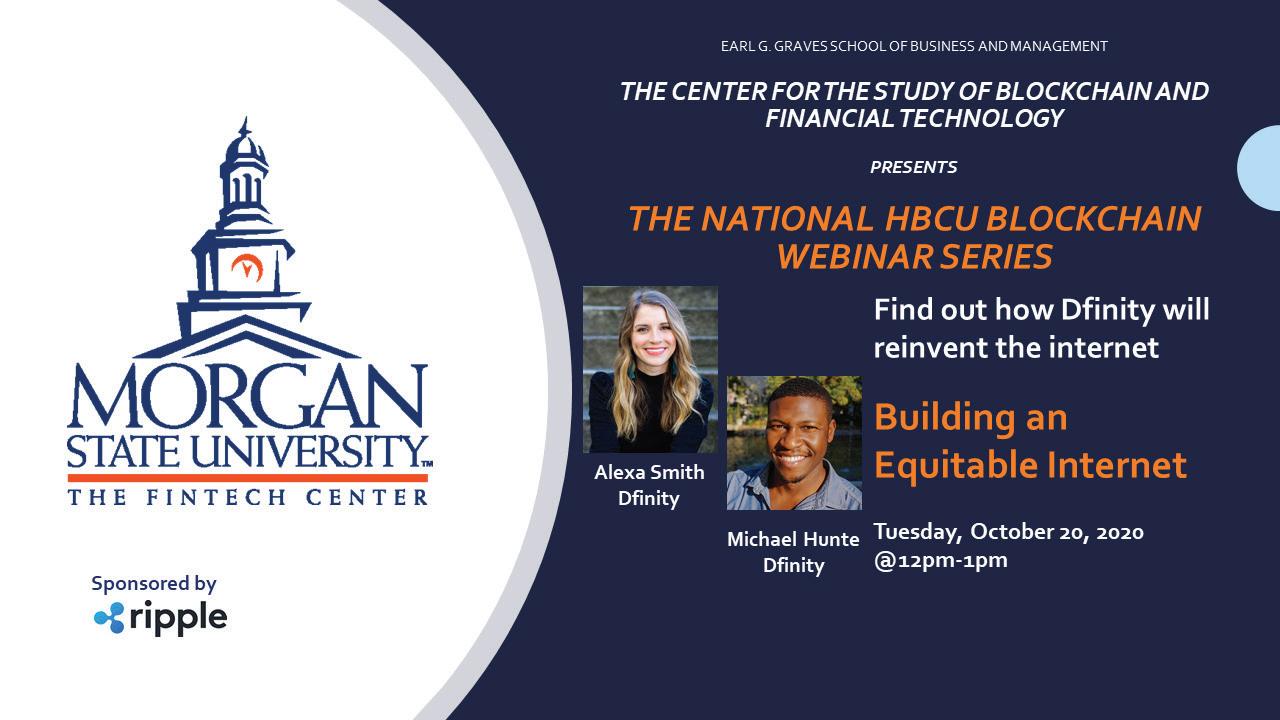
Spotlight On Research May 2023 51
Thursday, April 8, 2021
FinTech’s Role in Building Generational Wealth in the Black Community
Cuy Sheffield, Head of Crypto at VISA, gave a presentation on FinTech’s Role in Building Generational Wealth in the Black Community. Mr. Sheffield talked about the role that legacy financial firms can play in expanding access to the financial system and empowering minority communities in wealth accumulation. Cuy Sheffield is the Head of Crypto at Visa, leading the global crypto product team within the FinTech product organization. Cuy is a fellow at the Visa Economic Empowerment Institute, a co-chair of the World Economic Forum’s Global Future Council on Cryptocurrencies, and a member of the advisory group for the Digital Dollar Project.
Tuesday, April 13, 2021
Why is Assets Tokenization Disrupting Financial Markets?
Catherine Coley, Former CEO at Binance.US, and Christopher Robins, General Counsel at Binance.US gave a webinar on Why is Assets Tokenization Disrupting Financial Markets? Ms. Coley gave students advice on breaking into this field to learn the basics of finance and economics but also be open to learning how to make decisions about things that are a bit more nebulous like cryptocurrencies and emerging technologies. Catherine Coley was the first CEO of Binance.US, a digital asset marketplace built for easy and secure access to buy, trade, and stake digital assets in America. As a seasoned FinTech veteran, Coley came to Binance.US with combined experience at the crossroads of global capital and cryptocurrency markets. She brought over five years of sales & trading experience from Morgan Stanley Foreign Exchange in Hong Kong and London, combined with her treasury management and cross-border payments experience, growing fast-paced global companies like Silicon Valley Bank and Ripple.
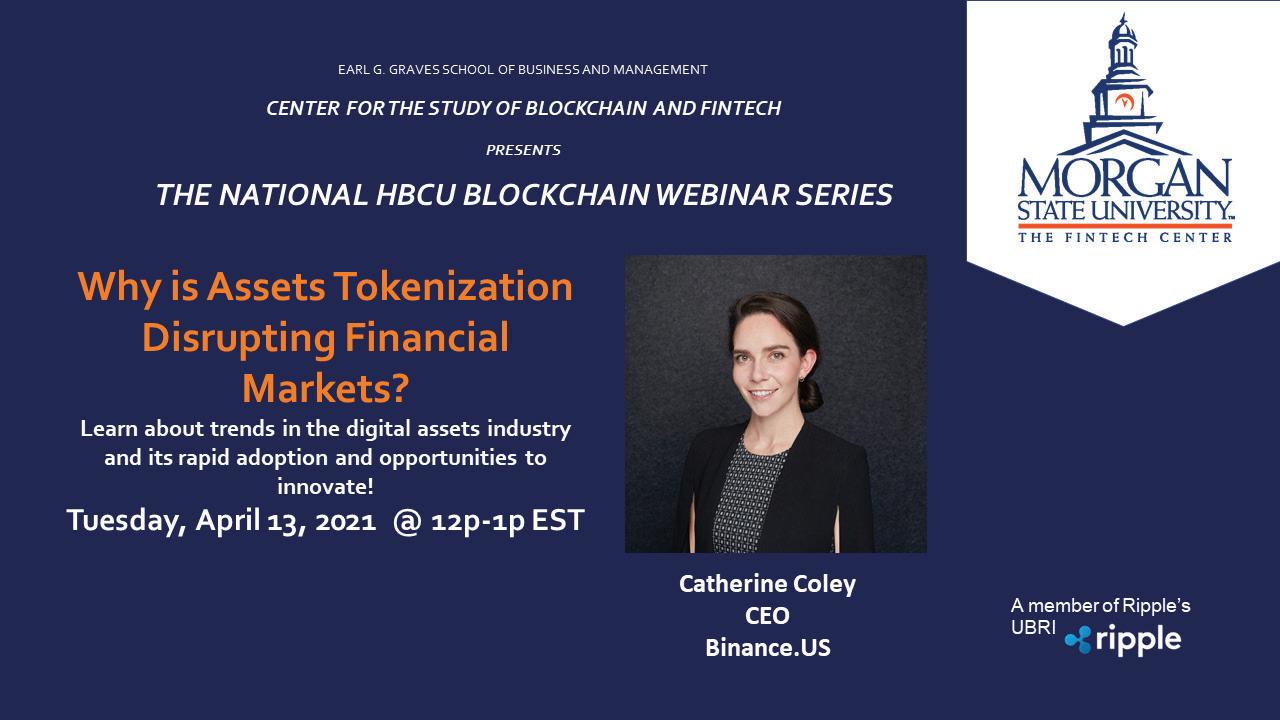
Thursday, April 15, 2021
How Disruptive FinTech Trends are Transforming Jobs: What Job Applicants and Curriculum Developers Need to Know.
Anoop Nannra, Global Blockchain Segment Leader for Amazon Web Services moderated a lively discussion on How Disruptive FinTech Trends are Transforming Jobs: What Job Applicants and Curriculum Developers Need to Know. Mr. Nannra challenged universities to create hybrid programs that give students an understanding of technology and the business process and also the ability to empathize with the customer ecosystem. Anoop Nannra is the Global Blockchain Segment Leader in AWS’ Partner Organization. Anoop is focused on identifying disruptive technologies and accelerating their adoption through business incubation via co-development, co-innovation, and partnerships. Anoop has a proven track record of leadership in corporations and start-ups, delivering world-class innovations in security, optics, media and entertainment, communications, IoT, and blockchain. As AWS’s Global Blockchain Segment Leader, Anoop is responsible for strategy and execution of growing the blockchain partner business with AWS’ global and regional partners. Anoop is also the Chair and Co-Founder of the Open Sustainability Collaborative, a people focused non-profit enabling innovators in underserved communities to build solutions to help corporates address their sustainable development goals.
52 Spotlight On Research May 2023
Tuesday, April 27, 2021
Is Crypto Trending Mainstream?
Edwin Aoki, PayPal Technology Fellow and CTO, Blockchain, Crypto, and Digital Currencies for PayPal gave an exciting webinar on Is Crypto Trending Mainstream? He spoke about opportunities for students to be part of the blockchain based economy and how not everyone needs to understand the technology from the inside to be part of it. Companies also need people with higher levels of understanding of incentive models, user experience design and other approaches. Edwin Aoki is responsible for driving sustained growth and innovation in digital asset technology. Previously, he spent nearly a decade as the company’s Chief Architect, tasked with defining the company’s long-term technical roadmap and architecture and advancing the technologies and technologists that have enabled PayPal to become a FinTech leader.
“The next set of interoperability mechanisms will want people that are well-versed in cybersecurity to be able to test and to verify and to secure these mechanisms and to be able to use things like AI and machine learning to be able to detect fraud and perform transaction monitoring in the space so that we can tamp down on illicit activity.”
~ Edwin Aoki
Thursday, April 29, 2021
Laws, Regulations, and US Competitiveness in Digital Markets
Representative Stacey Plaskett, a Democrat who represents the US Virgin Islands in the US House of Representatives, led a very engaging webinar on Laws, Regulations, and US Competitiveness in Digital Markets. She spoke about the work of the Congressional Blockchain Caucus in advocating for the creation of a technology sandbox around blockchain that allows for innovation while providing some regulatory framework. She spoke about the bi-partisan “Eliminate Barriers to Innovation Act” which instructs the SEC and the CFTC to jointly establish a Digital Asset Working Group to make sure that the US is not left behind by other countries. Representative Plaskett is best known for her understanding of economic development and public-private partnerships. She previously worked at the Justice Department as Counsel to the Assistant Attorney General of the Civil Division, where she worked on initiatives to increase the number of minority and women attorneys at the Justice Department. She has also worked with the Virgin Islands Economic Development Authority (VIEDA) on tax incentive programs and publicprivate partnerships as a means to bring economic growth to the development of the territory.
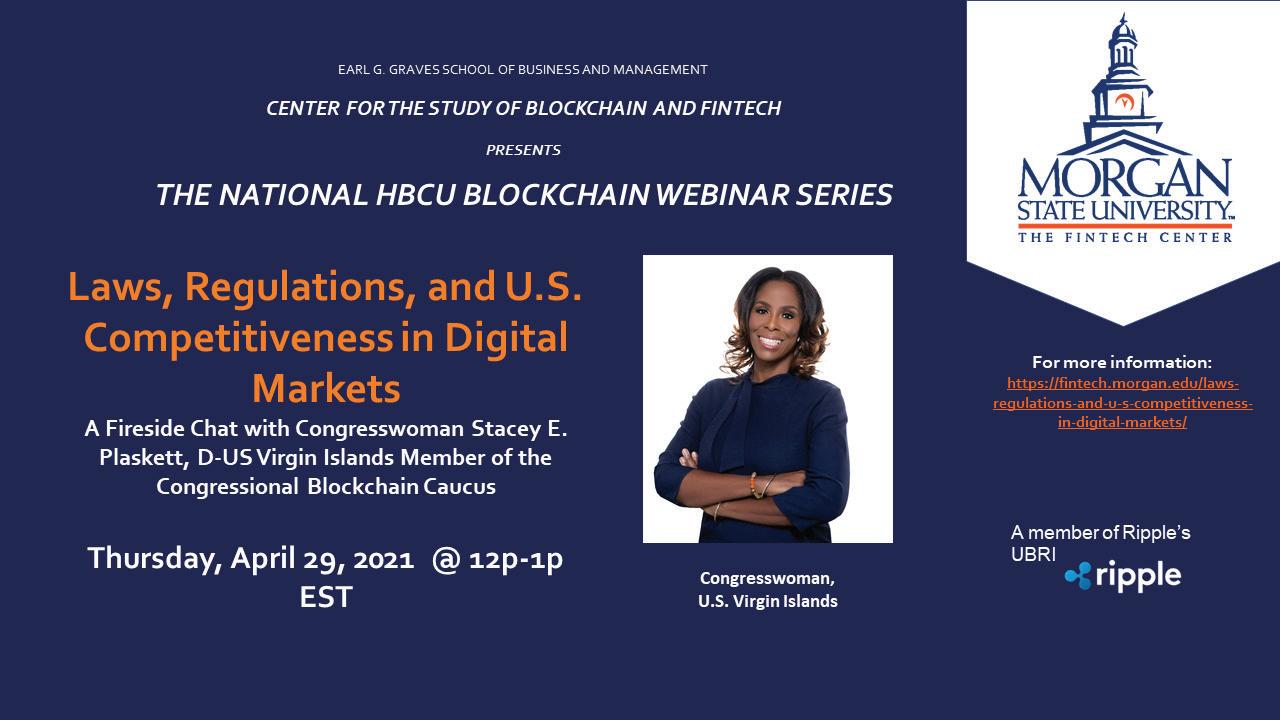
It’s
“…you all at Morgan State are really a great model because your center for the study of blockchain and financial technology offers introductory courses workshop grants for other HBCUs to train faculty and develop programs and that cooperation between HBCUs is really critical.”
~ Stacey Plaskett
Spotlight On Research May 2023 53
paramount that congress be a bridge between the industry and government to foster collaboration and ensure competitiveness on the global stage.”
~ Stacey Plaskett
Tuesday, February 8, 2022
Careers in Crypto
Careers in Crypto, a collaboration with Coinbase on a career-focused panel for students eager to learn how to get started in careers in the crypto field. The panel featured HBCU Students Battle for the Cryptos first place winner, Camron Knight (Hampton U. ’21), and industry experts employed at Coinbase.
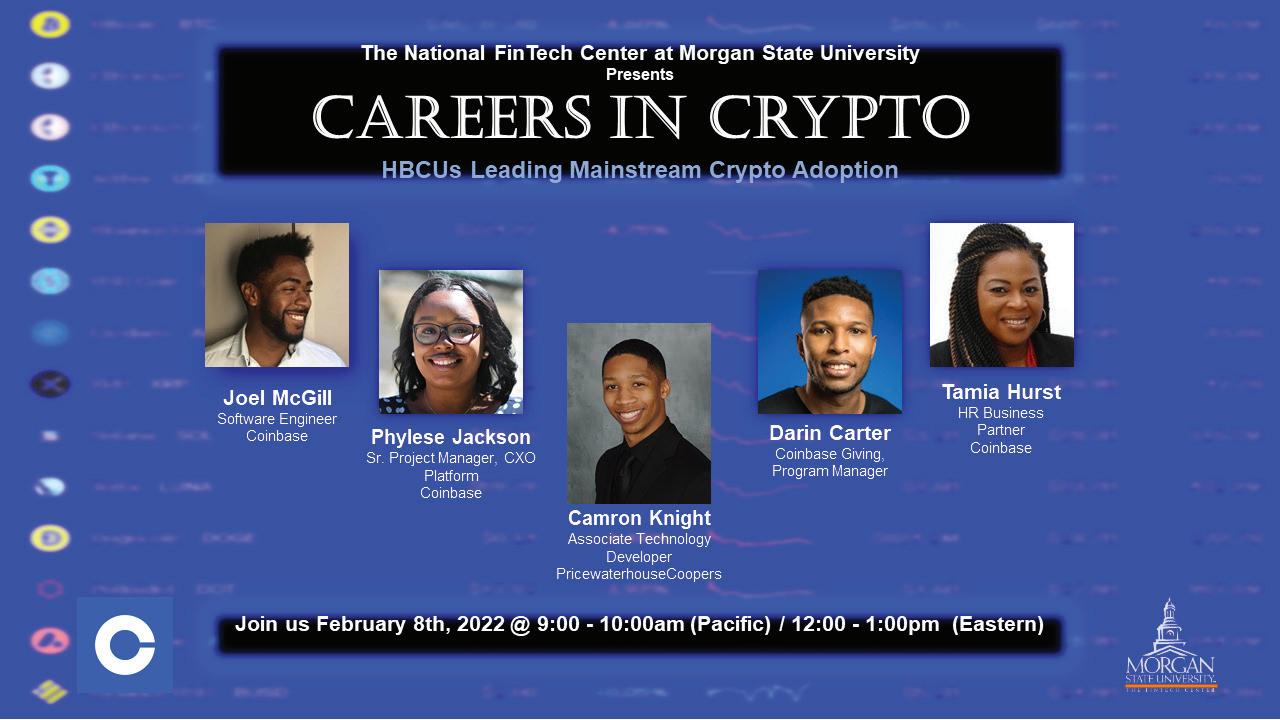
Camron Knight is an Associate Technology Developer within the Artificial Intelligence Lab at PricewaterhouseCoopers. Camron has a proven track record as an energetic self-starter whose leadership acumen enables the timely delivery of value to clients and project stakeholders. During his undergraduate studies, Camron actively pursued participation in the FinTech Center’s crypto-literacy programming and compelling digital upskilling opportunities. Camron is an HBCU alum, having earned his B.S. in Business Administration from the Hampton University School of Business.
Darin Carter (Program Manager, Coinbase Giving) is a crypto ambassador, a keynote speaker, and a traveling professional. His core mission is to use his time, talent, and expertise to build a better future for our community. Known as @CryptoCousin to many, he’s been speaking and teaching crypto since 2017, helping hundreds of people start their journey into crypto. After breaking into tech, and a few years building at Salesforce, Darin Carter joined Coinbase in 2019. Today, as a Program Manager on the Coinbase Giving team, Darin leads projects/partnerships at the intersection of social impact and blockchain. As a lifelong learner, he studied at Pennsylvania State University, the University of Cape Town, and is currently a Master’s candidate at the University of Nicosia, studying Blockchain and Digital Currency. When he’s not learning, he’s helping others on their crypto journey.
Joel McGill (Software Engineer, Coinbase) got into crypto in 2017, like many trading on the Coinbase platform. In 2019, he began dabbling in code and met a teacher who shared his love for code and crypto and would later refer him at Coinbase. He spent the 2020 pandemic transitioning from Project management in construction to completing the FullStack Academy bootcamp and landing a job at Coinbase. Joel finds crypto exciting as he believes it has the potential to level the financial playing field and offers an alternative to the traditional financial system to build generational wealth.
Phylese Jackson (Sr. Project Manager, CXO Platform, Coinbase) is a certified Project Manager (PMP) with over 10 years of professional experience in the Financial Services and FinTech industries. At Coinbase, Phylese works in the Customer Experience Project Management Office where she is responsible for project delivery and implementing procedures to establish & support project governance. In her spare time she buys and HODLs crypto based on advice from her Dad who is the reason for her interest in Crypto.
Tamia Hurst (HR Business Partner, Coinbase) currently serves as a HRBP at Coinbase supporting the Trust and Risk Organization. She has over ten years of experience in Human Resources, with specialized areas of expertise in Talent/Leadership Development, and Diversity and Inclusion. She graduated from Tennessee State University with her B.A. in English and received her master’s in human resources from the University of Cincinnati. When she isn’t working she is chasing after her 2 year old son - she is spending time with her husband and her family, researching the latest industry trends in Crypto, or curled up with a good book!
54 Spotlight On Research May 2023
Thursday, March 24 and Thursday, March 31, 2022
Build Your Own NFT with Hyperledger Fabric
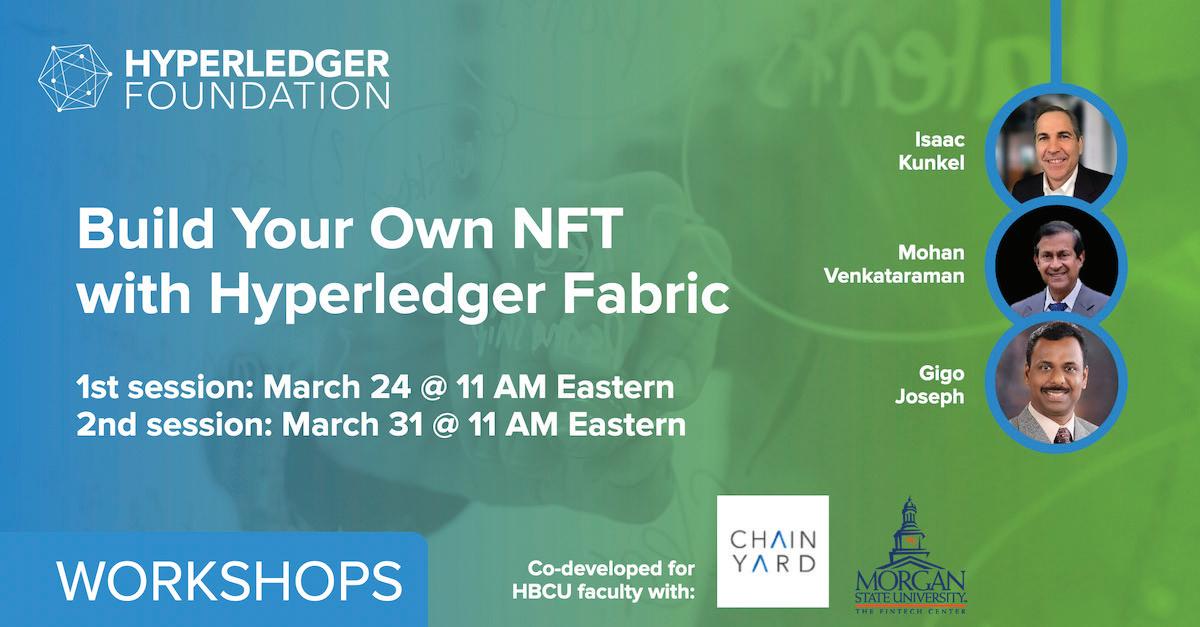
This two session workshop started with an introduction to blockchain and NFT concepts and is appropriate for both a technical and business audience. This session has been created for faculty interested in teaching about blockchain and NFT in their courses. The topics for the first session included:
● What is blockchain?
● What are tokens? What is an NFT?
● Technology landscape overview (enterprise perspective)
● Use Cases / Examples
● Obstacles
● How does this apply to you? What skillsets are needed?
The second session is a technical workshop for developers that want a hands-on experience. The second session included:
● Basics of the Auction App which will be used in the workshop
● Auction App versus Typical public blockchain implementations
● Auction App code structure
● Hands on using the app - Launching, Registering, Creating an NFT, Transfer Transaction
● Home work on adding changes to support another type of media (e.g., music)
● Engaging with the Community and the Lab
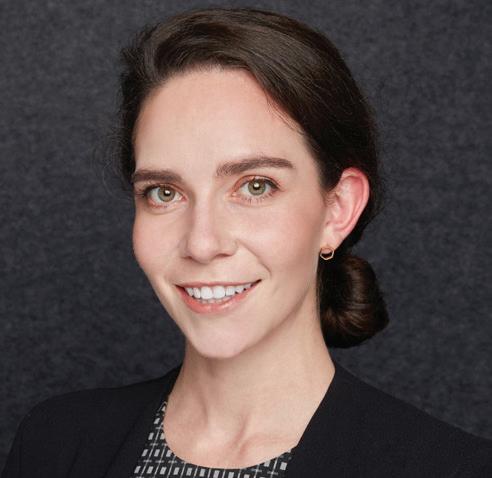
Spotlight On Research May 2023 55
The technical session was presented by Mohan Venkataraman, Puneet Singh, Aashish Shrestha, Dilip Manjunatha, Sahinul Haque.
“I love speaking with college students about their financial futures and how digital assets can play a part. The returns these students saw in just a few weeks are only piqued by the new confidence they now have in trying something new and learning how to invest together. Can’t wait to do it again!”
Catherine Coley
Former CEO of Binance.US, 2021
Thursday, April 7, 2022
Exploring Careers in DeFi: HBCUs Leading Blockchain Innovation
A collaboration between The National FinTech Center and Black at Ripple team conducted a 1-hour interactive webinar for students in our HBCU Blockchain Network. Five team members from Black at Ripple discussed their experiences and motivation to get into the field and career career opportunities at Ripple.
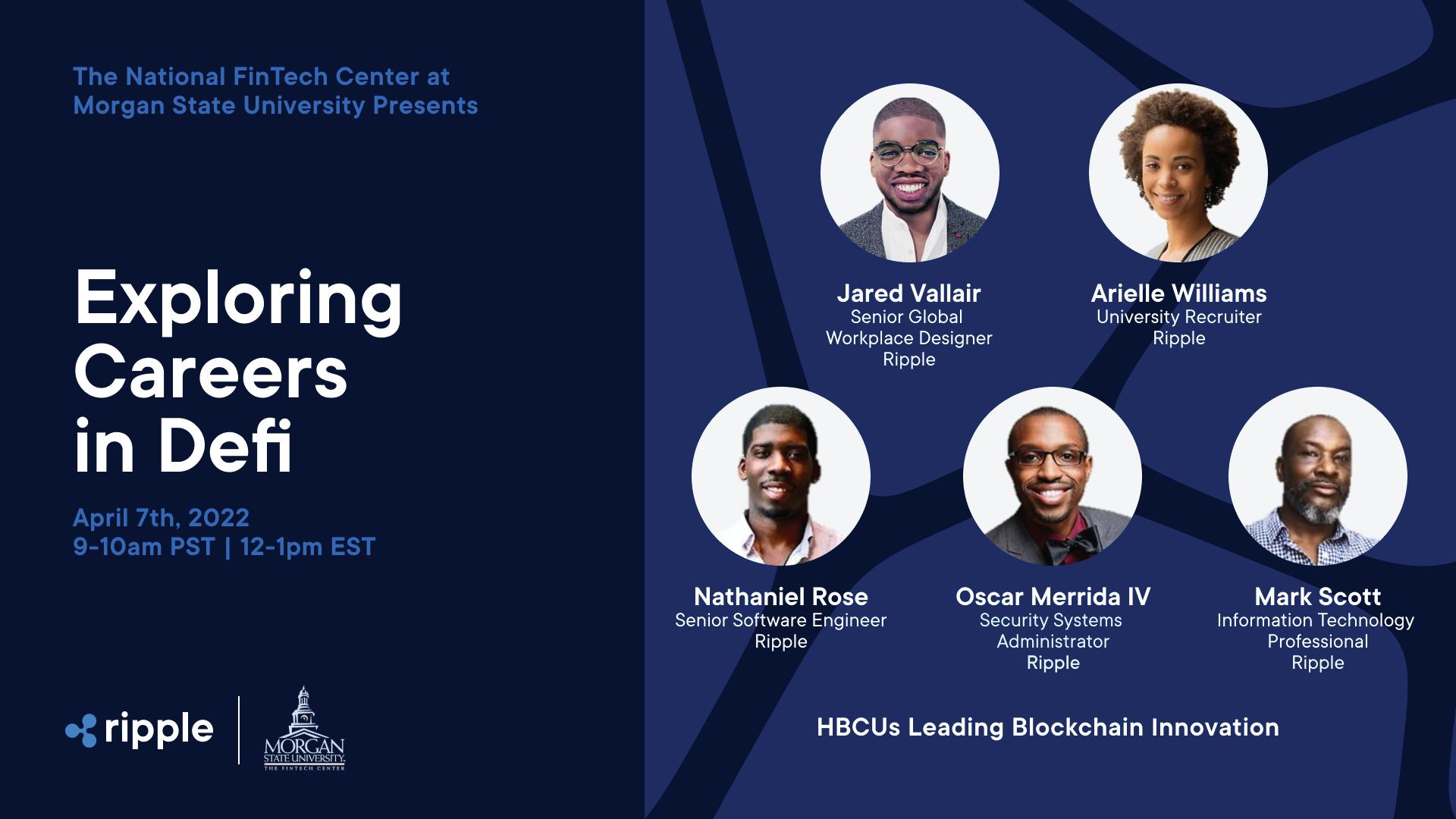
Nathaniel Rose is Senior Software Engineer at Ripple on the Data Platform Team, and co-lead of the Black at Ripple Employee Resource Group community. He is a former ex-Microsoft engineer and Neurotechnology Researcher who focused on gaze selection and brain-machine interfaces. Nathaniel advocates for education equity – having directed a National Society of Black Engineers Chapter for over 5 years and Co-Founding the Bay Area Chapter to aid students with STEM skills giving them the edge to pursue future life endeavors.
Arielle Williams is a University Recruiter, based in the SF Bay Area. She’s very passionate about diversity, equity and inclusion, and connecting talented students with great opportunities. Arielle has worked in talent acquisition for the past five years and university recruiting is very exciting to her because she gets to help build the next generation of future leaders!
Jared Vallair received his undergraduate degree from Tufts University in MA, also attending and completing Harvard’s Graduate School of Design summer program for Architecture during his education in Boston. He then attended California College of the Arts in San Francisco, receiving his Master of Architecture. During his study, he also engaged in various design and build-related roles. Currently, he is the Senior Global Workplace Designer for Ripple, where he leads the design, project management and construction for all office builds. He has collectively and collaboratively established the designs for offices in San Francisco, New York, London and Singapore.
Oscar Merrida IV is a technology professional originally from Berkeley California. He completed his undergraduate degree in business at Howard University. After a brief period in the hospitality industry, Oscar knew he needed to try something new. He started his physical security technology career and obtained his master’s degree at the George Washington University. Oscar is driven by solving business challenges with technology. Oscar’s first introduction to blockchain technology came during his master’s degree. He and his classmates studied how the technology could have alternative uses to improve record management. Years later when the opportunity to work at Ripple became a reality it made sense to join the company. Oscar gets a first hand seat to blockchain technology and the crypto market as a Security Systems Administrator for the Global Security team. In his role he helps secure the facilities and people he works with on a daily basis.
Mark Scott is an Information Technology professional with over 20 years of experience in data management. Throughout the years he has been fortunate to have had multiple roles ranging from Developer, Engineer, Analyst to Trusted Advisor that give him a unique perspective on enterprise information management and architecture. This experience has made Mark a trusted advisor for his clients and a thought leader in the field. His wide breadth of experience allows him to educate both technology and business leaders on how to get the best value from their most coveted asset – data. Lastly, he is spearheading efforts in his local community of Brooklyn NY to introduce cryptocurrencies, system engineering, data management, and data analysis training to the underserved workforce in the form of courses in a continuing education format.
56 Spotlight On Research May 2023
Thursday, July 28, 2022 | Friday, September 9, 2022 | Thursday, October 27, 2022
Demystifying the Metaverse
In collaboration The National FinTech Center and Hyperledger Community Experts offered a three-part webinar series during the Summer and Fall semesters of 2022. Part one titled The Path to the Metaverse discussed the visions, history, orientation and components of the metaverse. Part two titled Metaverse Identity and Individual gave an overview of identity, avatar, privacy, rights, ethics, self, and safety in the metaverse. Part three titled Metaverse Community and Social discussed education, games, commerce, legal, simulation, and social media.
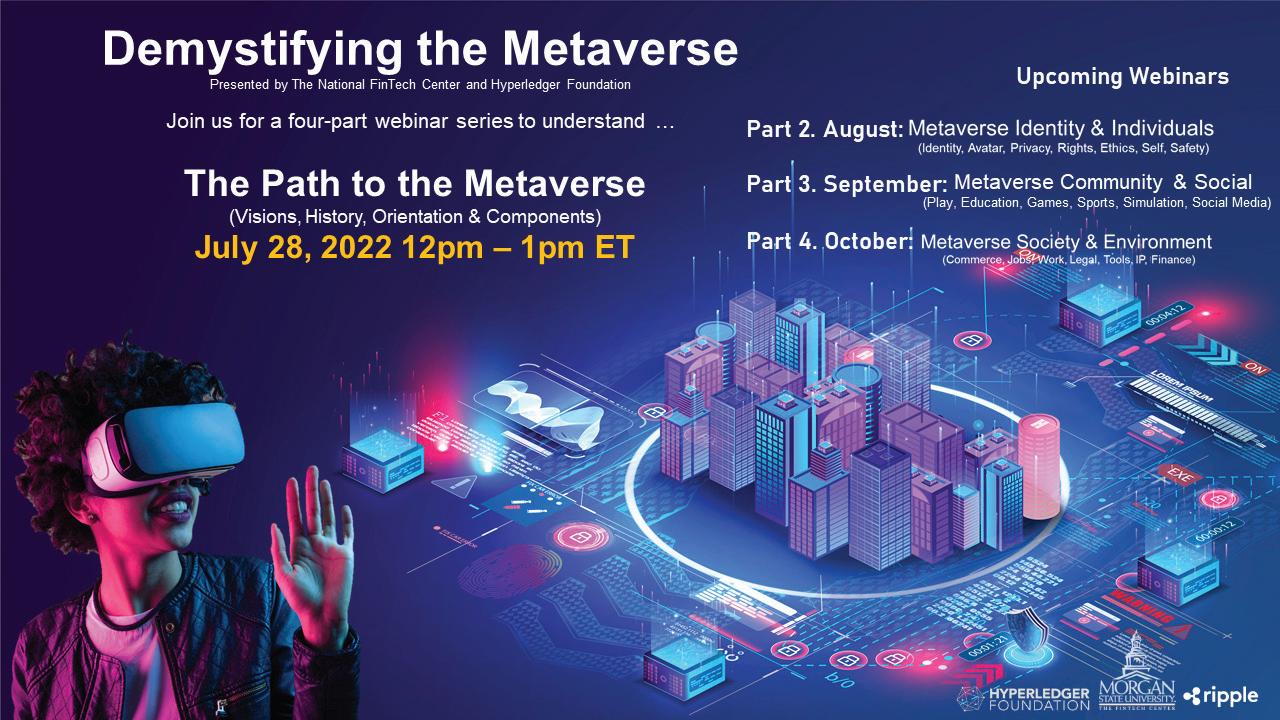
Sandy Aggarwal is a technology leader with expertise in systems development, enterprise architecture and systems integration, and product/program management. He has many years of experience in rolling out bank technology platforms such as Trading systems, Reference Data Management, Customer/Regulatory Reporting, Cash Management and Payments. Sandy is also actively involved in the FinTech and Blockchain space via open source community projects with Hyperledger in the Financial Services and Gaming SIGs and is currently working on developing solutions to reduce DLT friction in FinTech and games. Sandy is currently working at Mizuho Americas as SVP –Technology and Architecture.
Dr. Merav Ozair is a global leading expert on Blockchain and Cryptocurrency, with a background of a data scientist and a quant strategist. She has in-depth knowledge and experience in global financial markets and its market microstructure. Currently, Dr. Ozair applies her unique expertise to researching and investigating distributed ledger technology (DLT) and Blockchain ecosystem, digital assets, crypto markets and specifically, decentralized finance (DeFi) space and non-fungible tokens (NFTs). She has been developing innovative methodologies to evaluate digital assets and crypto markets, including cryptocurrency indexes, valuation and risk metrics, ratings and tokenized products; and of particular focus – researching various DLT and DeFi solutions, including decentralized identity, and decentralized trust privacy and security – mainly through consensus mechanism protocols and governance (including decentralized autonomous organizations (DAOs)) of the platform/application. Dr. Ozair is a FinTech professor at Rutgers Business School (RBS). At RBS she has developed and teaches courses on blockchain and digital assets for both undergrads and graduate level; and is the Research Director of RBS Blockchain Hub. She serves as an Advisor and Researcher at the Rutgers Blockchain and FinTech Collaboratory; and is an Affiliated professor at Rutgers Law School, focusing on DeFi. She has been frequently interviewed on blockchain, NFTs and DeFi space by world-wide media, such as Bloomberg, BBC, New York Times, Forbes, The Hindu, New York Post, The Washington Post, USA Today , Fox 5 New York, Good Morning America (ABC channel), yahoo!, The Motley Fool, RIA Intel, NJ Business Beat, Jersey Matters, KCUR. Dr. Ozair is the Editor-in-Chief of the World Scientific Series in FinTech at World Scientific Publishing, and is writing a series of books on the Metaverse, Web3, Non-Fungible Tokens (NFTs), DOAs and DeFi. She is a member of the Academic Advisory Board at INATBA (International Association for Trusted Blockchain Applications) and serves on the Advisory Board of EQM Indexes – Blockchain Index Committee; she holds a PhD from Stern Business School at NYU.
Rafael Brown is a game designer, game developer, XR technologist, and studio head. He is a 25 year veteran of the game industry, who traces his roots to Looking Glass and seminal FPS, Thief. He saw this generation of virtual reality start on John Carmack’s desk 11 years ago while working on the open world FPS Rage. Rafael loves building virtual worlds. He has been dreaming of the metaverse since watching Tron in the theater as a kid and reading Neuromancer a couple years later. During the pandemic, he founded Symbol Zero, which builds games, virtual worlds, virtual concerts, and cloud platforms. Symbol Zero is Roblox’s virtual concert partner having built the Lil Nas X virtual concert experience, the second largest virtual concert in history, and many other concerts for Sony Music and Warner Music in Roblox.
Spotlight On Research May 2023 57
Wednesday, February 22, 2023
Introduction to Decentralized Identity
This session was meant to be a broad overview of Decentralized Identity. The one-hour discussion helped you understand the topic, why it is important and the new capabilities it gives enterprises and individuals. In addition, we discussed how it works, and where this work is happening (Hyperledger, Decentralized Identity Foundation, W3C, Internet Identity Workshop, etc.). This event was co-developed with Morgan State University and Indicio.
Tuesday, February 28, 2023
Technical Overview of Decentralized Identity
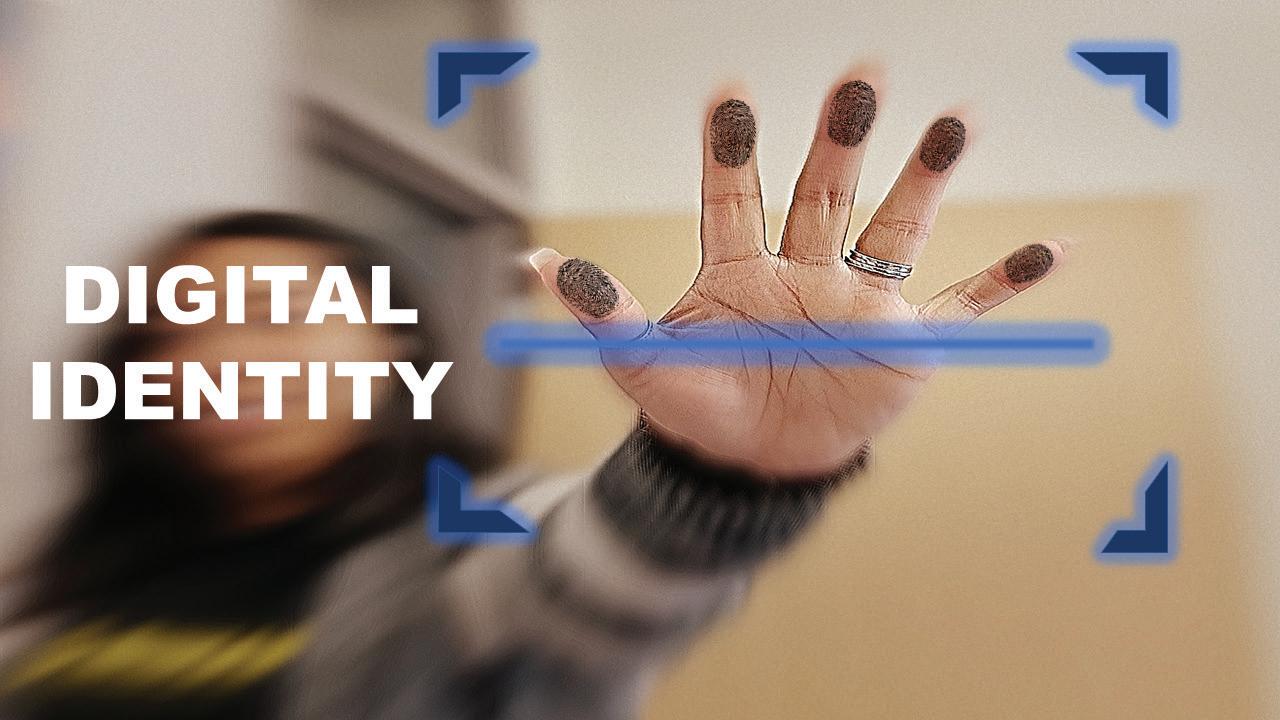
This one-hour session covered, at a high level, the components, codebases and standards involved in Decentralized Identity, specifically at Hyperledger (Indy, Aries, Anoncreds, Ursa) and where there are opportunities to learn more and get involved. This event was co-developed with Morgan State University and Indicio.
Wednesday, February 22, 2023
Convergence of Blockchain, IoT, and AI: Challenges and Opportunities
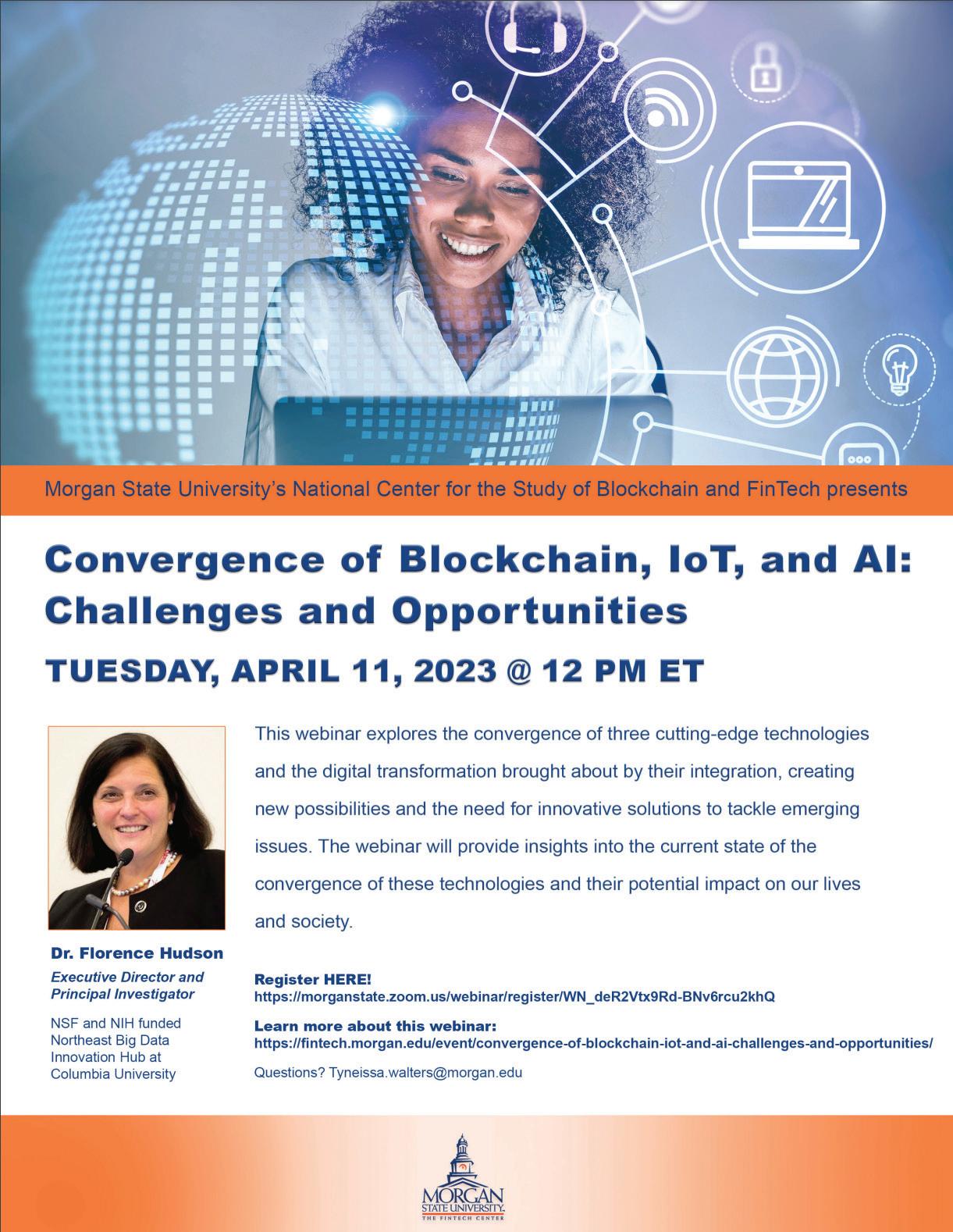
This webinar explores the convergence of three cutting-edge technologies and the digital transformation brought about by their integration, creating new possibilities and the need for innovative solutions to tackle emerging issues. The webinar provided insights into the current state of the convergence of these technologies and their potential impact on our lives and society. Florence Hudson is Executive Director and Principal Investigator for the NSF and NIH funded Northeast Big Data Innovation Hub at Columbia University, COVID Information Commons, Cybersecurity Risk Conference, and National Student Data Corps. She is also the Founder and CEO of FDHint, LLC, a global advanced technology and diversity & inclusion consulting firm. She serves on Boards including Blockchain in Healthcare Today, the Neuroscience Outreach Network, Stony Brook University Mechanical Engineering, Cal Poly San Luis Obispo Industrial and Manufacturing Engineering, UC San Diego Distributed Energy Resources DERConnect, and
(continues on next page)
58 Spotlight On Research May 2023
Princeton University Civil and Environmental Engineering. She is a former IBM Vice President and Chief Technology Officer, Internet2 Senior Vice President and Chief Innovation Officer, Special Advisor for the NSF Cybersecurity Center of Excellence, and aerospace engineer at the NASA Jet Propulsion Lab and Grumman Aerospace Corporation. She Chairs the global IEEE/UL Standards Working Group on Clinical Internet of Things (IoT) Data and Device Interoperability with TIPPSS – Trust, Identity, Privacy, Protection, Safety and Security, and has published books on TIPPSS including Women Securing the Future with TIPPSS For IoT and Connected Healthcare. She earned her Mechanical and Aerospace Engineering degree from Princeton University, and executive education diplomas from Harvard Business School and Columbia University.
Tuesday, June 6, 2023
Building a Decentralized Application (dApp)
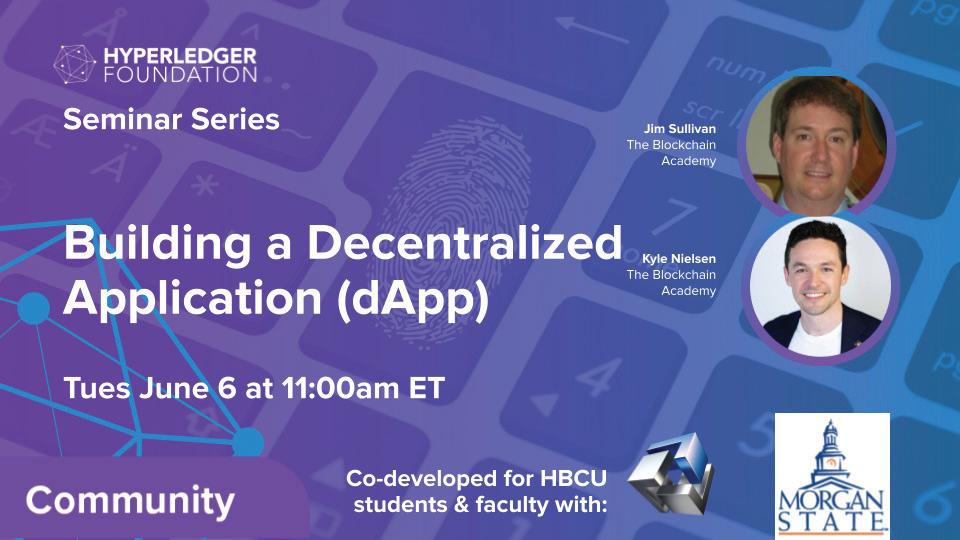
Presenters Kyle Nielson and Jim Sullivan, The Blockchain Academy, discussed:
● Demo a working dApp.
● Deconstruct the layers and discuss the architecture and run times.
● Review the building blocks on a generic developer desktop and a preview of building the same or similar dApps on Hyperledger Fabric (HF) using the Ethereum Virtual Machine (EVM).

Spotlight On Research May 2023 59
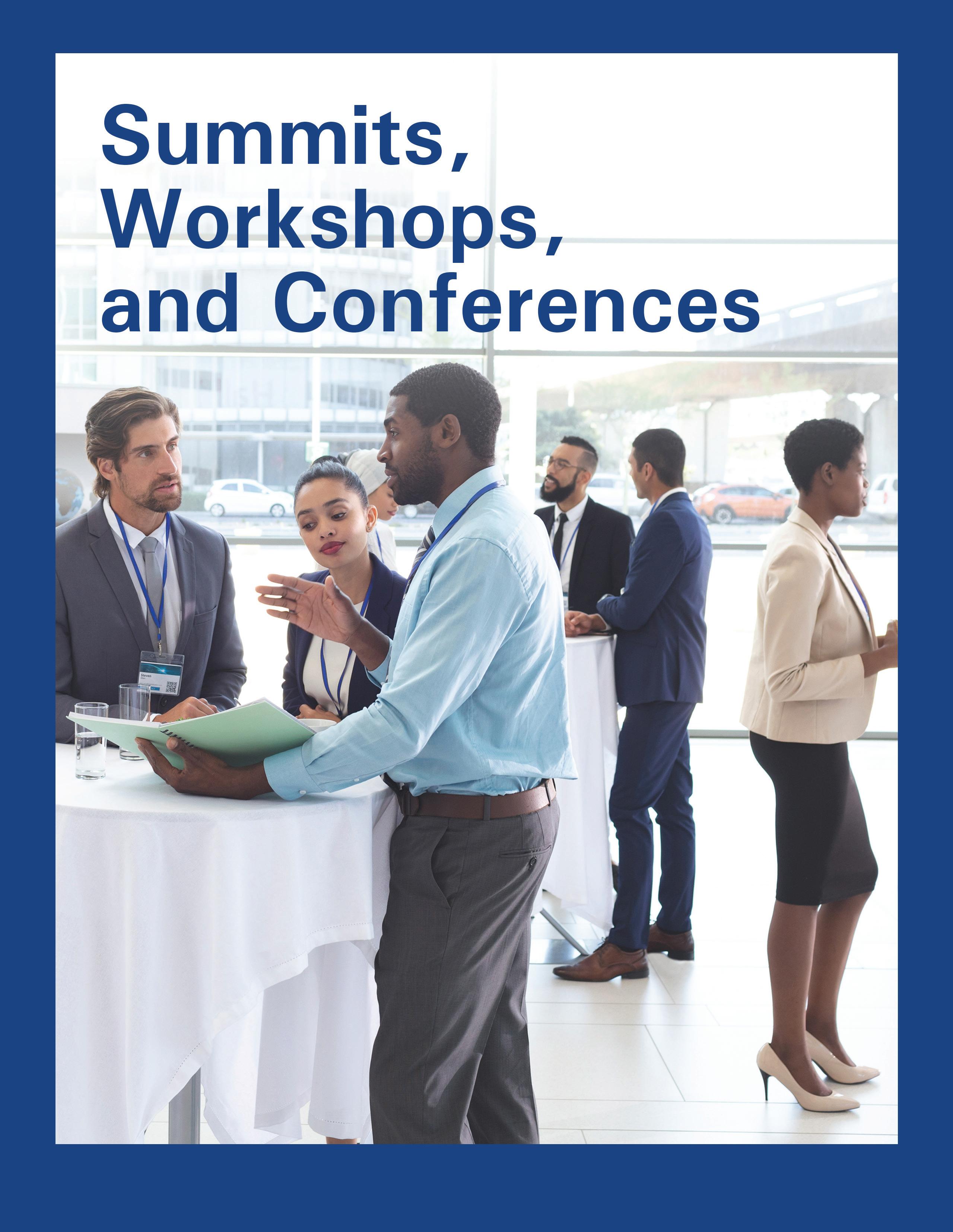
60 Spotlight On Research May 2023
The National FinTech Center has been at the forefront of pioneering research and innovation in the fields of blockchain, cryptocurrency, and financial technology (FinTech).
SUMMITS, WORKSHOPS, AND CONFERENCES:
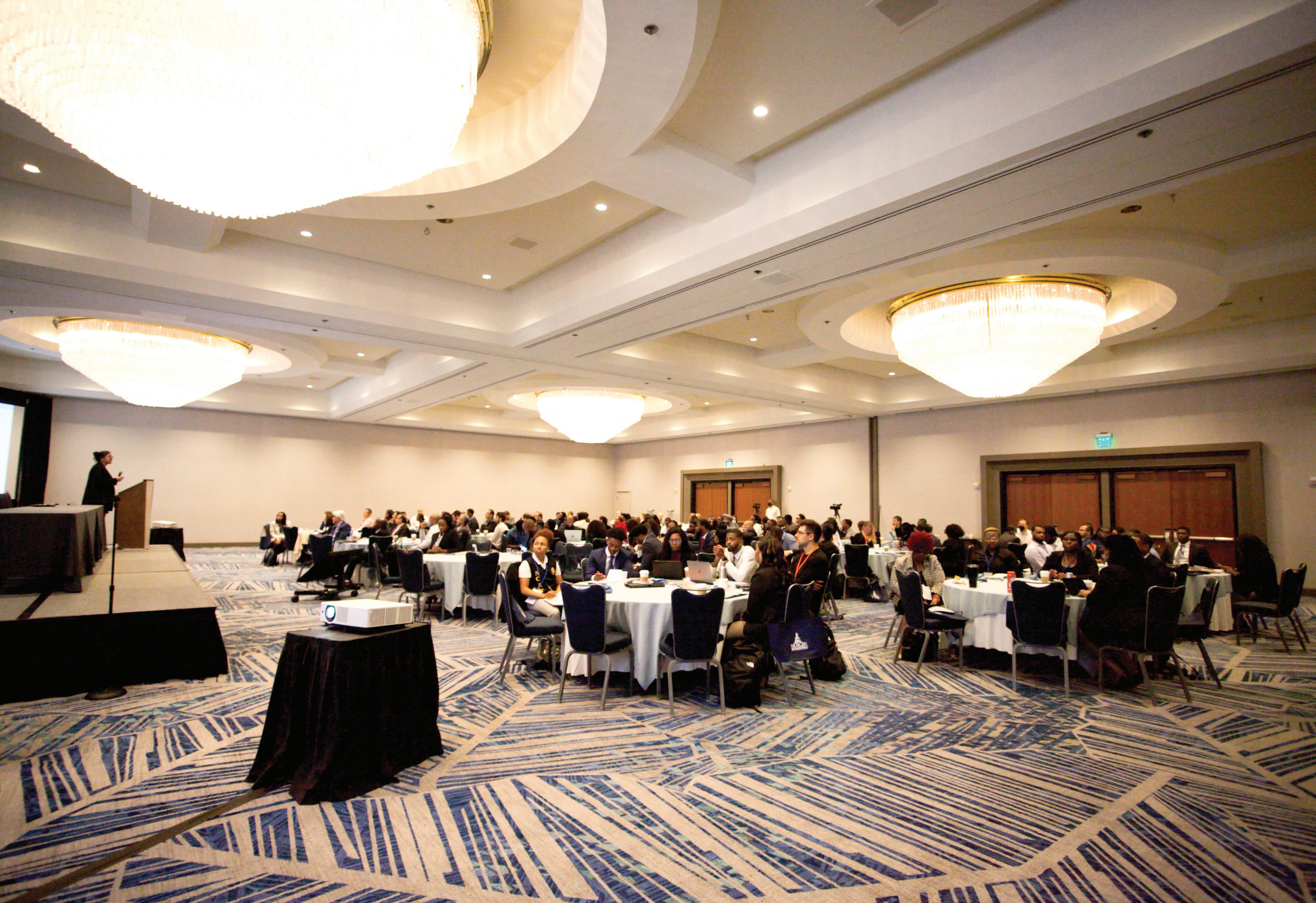
1,275 ATTENDEES
In order to stay ahead of the rapidly evolving landscape of these industries, the Center has organized a series of summits, workshops, and conferences that serve as crucial platforms for disseminating cutting-edge knowledge and insights. These events play a vital role in keeping faculty and students informed about the latest advancements, trends, and breakthroughs in the realm of blockchain, crypto, and FinTech.
Spotlight On Research May 2023 61
With the transformative impact of technology on the financial sector, it has become imperative for academia to actively engage in understanding and contributing to these emerging domains. The FinTech Center recognizes the significance of bridging the gap between theoretical research and practical applications by providing a vibrant space for knowledge exchange and collaboration. By organizing summits, workshops, and conferences, the Center enables faculty and students to gain firsthand exposure to the latest research findings, innovative technologies, and industry best practices in the blockchain, crypto, and FinTech sectors.
These events serve as invaluable platforms for faculty and students to interact with renowned experts, industry leaders, and visionary entrepreneurs who are driving the advancements in blockchain, crypto, and FinTech. The rich networking opportunities offered by these gatherings foster meaningful connections, facilitate collaborations, and open doors to
potential research partnerships or employment prospects. Faculty members gain insights from thought leaders in the field, enabling them to refine their research focus and align their work with the emerging needs of the industry. For students, attending these events provides a unique chance to explore future career paths, learn about realworld applications of their studies, and enhance their understanding of the rapidly evolving industry dynamics.
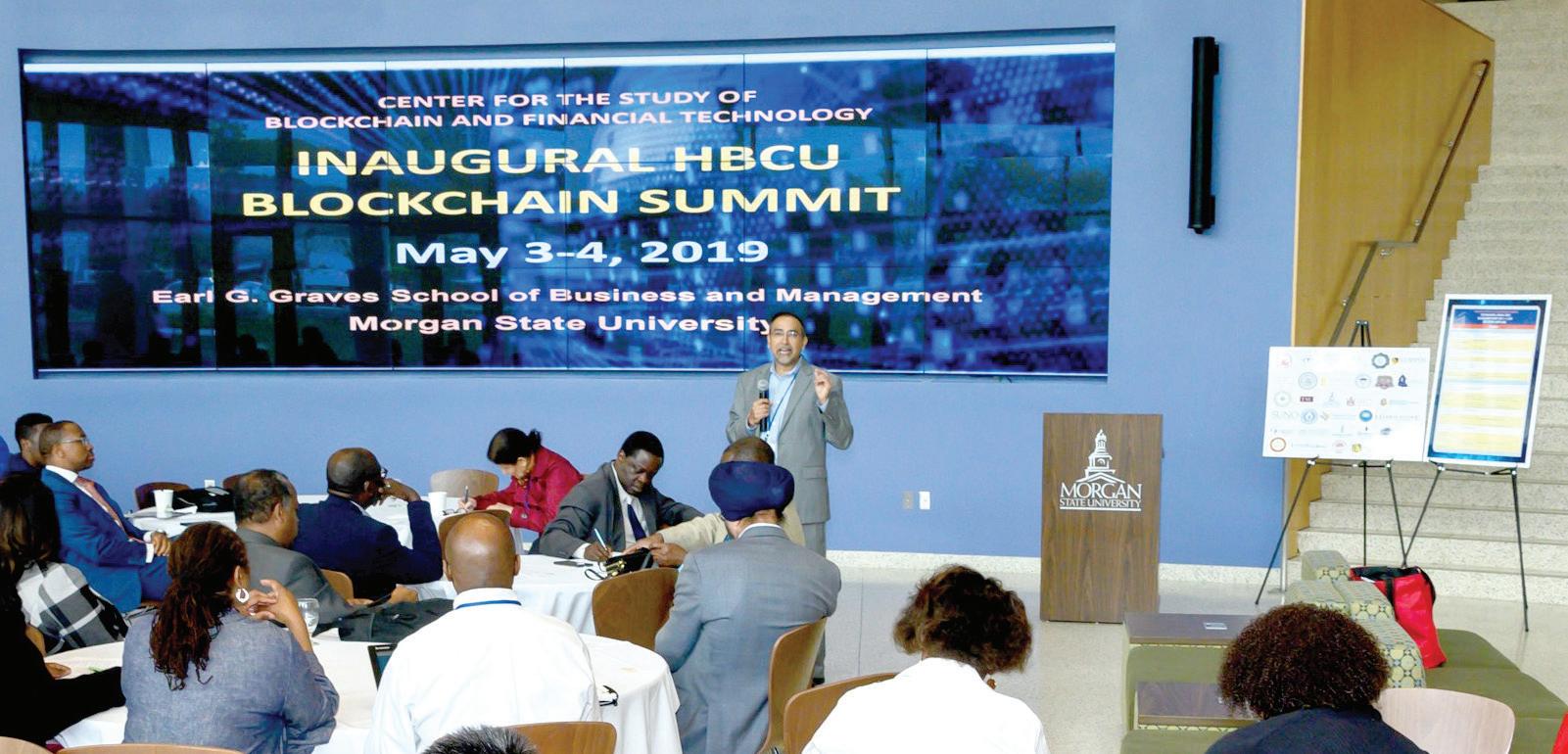
Furthermore, the summits, workshops, and conferences organized by the FinTech Center offer a comprehensive overview of the latest trends, challenges, and regulatory developments in the blockchain, crypto, and FinTech sectors. Through expertled panel discussions, keynote presentations, and interactive sessions, participants gain a deeper understanding of the legal, economic, and social implications of these disruptive technologies. This knowledge equips faculty and students with
the necessary tools to critically analyze the impact of blockchain, crypto, and FinTech on various industries, and empowers them to contribute to the development of innovative solutions and frameworks.
The following summits, workshops, and conferences organized by the National FinTech Center have been pivotal in keeping faculty and students up to date with the dynamic landscape of blockchain, crypto, and FinTech. By providing a platform for knowledge sharing, networking, and collaboration, these events have enabled attendees to stay at the forefront of cutting-edge research and innovation in these fields. With an emphasis on bridging academia and industry, the FinTech Center plays a crucial role in equipping faculty and students with the necessary insights and expertise to make meaningful contributions in the ever-evolving world of blockchain, cryptocurrency, and financial technology.
62 Spotlight On Research May 2023
The National Blockchain Summit for HBCUs
The Center’s Inaugural Annual HBCU Blockchain Summit 2019 attracted 130 faculty and students from more than 30 Historically Black Colleges and Universities. The two-day conference included speakers from academia, government, and the private sector. Sheraton Baltimore North-Towson played host to an engaging first day of the summit on Bitcoin, blockchain, and FinTech in May 2019. The participants arrived at the Sheraton, where they registered and received their badges and information packets.
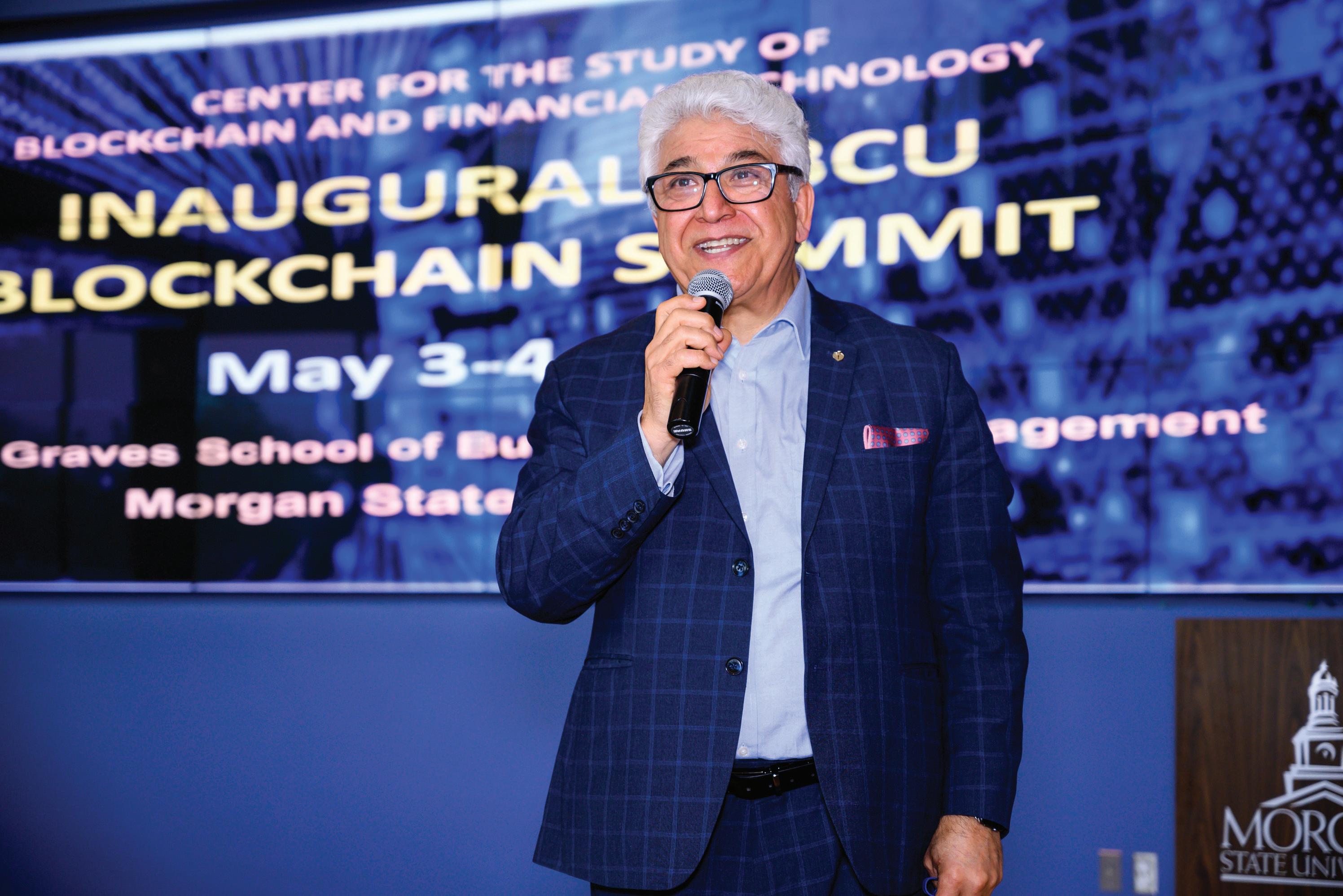
At 2:00 PM, Ali Emdad, Associate Dean of the Earl G. Graves School of Business and Management and the Founding Director of the National FinTech Center took the stage and delivered the opening remarks, officially inaugurating the summit. His words set the tone for the discussions that would follow, fueling anticipation and sparking intellectual curiosity among the attendees. The session on “Bitcoin and Blockchain: Beyond Noise and Hype” commenced, led by Paul A. Lin, a Senior Engineer from Conduent. The session delved into the potential of Bitcoin and blockchain technology, going beyond the superficial buzz surrounding them. Participants gained valuable insights into the practical applications and benefits of these transformative technologies.
Afterward, a networking break provided a much-needed opportunity for participants to connect and engage in informal discussions. Ideas flowed freely as attendees shared their perspectives and established connections that would prove invaluable throughout the summit. Next on the agenda was a session on “Blockchain Disruption: Cybersecurity Perspective.” Led by Devon Bryan, the Executive VP of The Federal Reserve System, this session explored the cybersecurity implications of integrating blockchain technology into existing frameworks. The discussion revolved around the challenges and opportunities that arise in the realm of cybersecurity when adopting blockchain solutions.
Spotlight On Research May 2023 63
May 3 – 4, 2019
Following the session, participants had some free time to relax, freshen up, or explore the surroundings before the evening events commenced. The summit then continued with a formal dinner, where attendees gathered in a more relaxed setting, fostering relationships and engaging in further networking. In the evening, the Sheraton was once again abuzz with anticipation as Kevin Werbach, a Professor of Legal Studies and Business Ethics from the Wharton School, University of Pennsylvania, took the stage. Delivering a captivating keynote address titled “The Blockchain and the New Architecture of Trust,” Professor Werbach shared profound insights into the transformative potential of blockchain technology. He highlighted how it could reshape the foundations of trust within various industries, leaving the audience inspired and motivated.
As the summit continued on Saturday, May 4, shuttle buses transferred the participants from the hotel to Graves Business School. The day began with a networking breakfast at the Graves Business - Atrium, providing attendees with a platform to connect with their peers and engage in conversations before the day’s sessions. One such session was the fireside chat titled “The Future of FinTech.” Kahina Van Dyke, SVP for Corporate and Business Development at RIPPLE, and Yaya J. Fanusie, Director of Analysis for the Foundation for Defense of Democracies, discussed emerging trends in financial technology and their implications for the industry, fueling thought-provoking discussions among the audience.
The subsequent panel discussion, “Blockchain and Smart Contracts: Tax and Audit Implications,” was led by John Jacobs, Executive Director of the Center for Financial Markets & Policy at Georgetown University, Guy Thellian, Director from KPMG, and Jacob Farber from Ourobors, LLP. Together, they explored the intricate tax and audit implications associated with blockchain and smart contracts, shedding light on the regulatory and compliance aspects that businesses must consider. Another networking break provided a valuable opportunity for participants to recharge and engage in informal conversations, exchanging insights and deepening connections.
In the auditorium, the session titled “Blockchain Use Cases” featured Adam Barnett, Founder of VANIMALS, and Dee Duncan from PUNDI X. They presented real-world use cases of blockchain technology, showcasing its transformative impact across various industries. The audience was captivated as they shared their experiences and shed light on the vast potential of blockchain.
Lee Reiner, the Executive Director of the Global Financial Markets Center at Duke Law, took the stage for the session on “Cryptoventures: Law and Regulation.” Attendees gained crucial insights into the evolving legal landscape surrounding cryptocurrencies and blockchain-based projects, gaining a better understanding of the legal and regulatory considerations within this rapidly evolving field. Following a networking lunch at the Graves Business - Atrium, participants reconvened for a session titled “Discussion of Next Steps and Closing Remarks.” This session provided a platform for attendees to discuss the next steps in the blockchain and FinTech industries, emphasizing the importance of continued exploration and innovation. The closing remarks summarized the key takeaways from the summit, leaving participants inspired and motivated to carry the momentum forward.
Simultaneously, in Graves Business - 105, a career talk session aimed specifically at students unfolded.
Christine Collins – The Federal Reserve Bank; Guy Thellian, Director – KPMG; Kelsey Dunn – RIPPLE, offered valuable insights into internship and job opportunities in the blockchain and FinTech industries, guiding aspiring professionals toward promising career paths.
Overall, the summit served as a platform for knowledge exchange, collaboration, and networking. Participants departed with a deeper understanding of the transformative potential of blockchain and FinTech, armed with insights and connections that would shape their future endeavors. The 2019 summit left an indelible mark, acting as a catalyst for innovation and progress within the ever-evolving realm of technology and finance.
64 Spotlight On Research May 2023
October 2019
UBRI Connect Conference at UC Berkeley
The event featured 150 participants showcasing the activities of 30 worldwide universities through lectures, presentations, and chats amongst industry keynotes. It was an opportunity to network with fellow scholars and Ripple engineers to accelerate research and curriculum development in blockchain, cryptocurrency, and FinTech.
Saturday, October 19, 2019
Blockchain Fundamentals Faculty Workshop
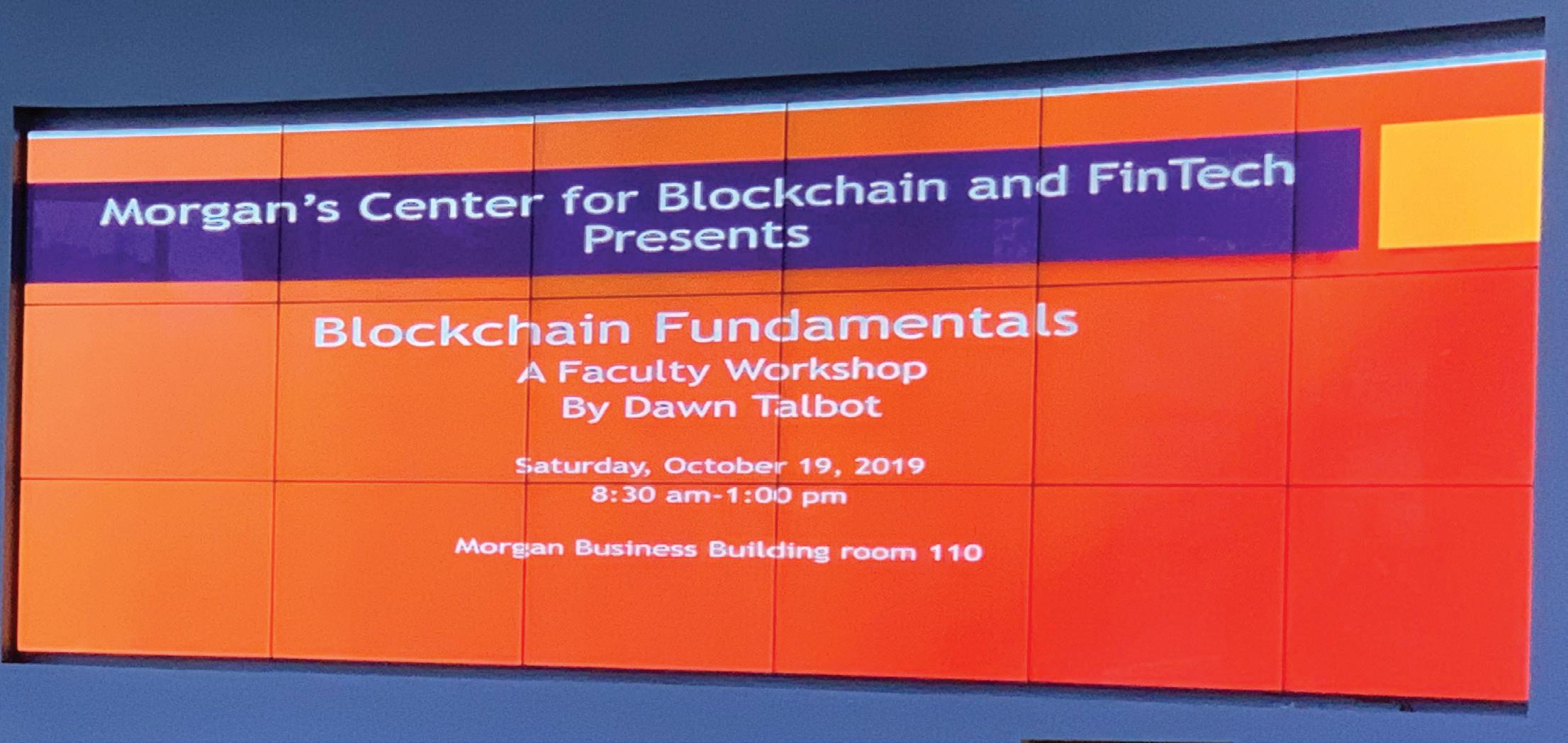
Dr. Dawn Talbot has over 20 years of finance and technology experience. Most recently, Dawn joined the RiskSpan SmartLink Lab where she provides consulting on Blockchain and DLT implementation strategies. Prior to this, she analyzed emerging technical capabilities within the Freddie Mac Single Family Innovation Laboratory and establishing its “BlockLab”. As a FinTech expert, she is familiar with risk analytics, simulations and a wide range of debt, equity and derivative instruments designed for both public and private markets. Fundamentals of Blockchain Workshop Speaker Dawn Talbott discussed:
● The need for blockchain
o Identity Theft
o Human Trafficking
● How to select architectures and components of blockchain
o Identified weakness and potential research challenges
● When and why to use specific consensus algorithms
o Identified algorithms that may be of interest to academic researchers
● Tokens, currencies, and wallets
o “Kenya & Tokenized Real Estate”
● Evaluation tools and identifying potential weaknesses
o Identified knowledge gaps potentially of interest to academic instructors
● Human considerations
(continues on next page)
Spotlight On Research May 2023 65
o “Hiring you was a mistake”
● Design tools and how they can help alleviate human fears
o Identified design hurdles that may benefit from academic analysis

● The future of finance
o “Vanguard”
● Oracles, APIs, timing and smart contracts
o Grid+
● Smart Contract language selection criterion
o Identified challenges that may benefit from academic contributions
Tuesday, October 22, 2019
Blockchain is Here: Are you ready for the challenge?”
Dr. Jessica Schultzman shared her knowledge of the “criminal activity” that may take place on the blockchain with MSU undergraduate and graduate students. Dr. Schultzman is the Bureau Chief - Financial Crimes Unit for the District Attorney’s office in Kingston, NY. She specializes in “Big Data”, “AI”, FinTech and Cryptocurrency. Member of the Blockchain Alliance – an organization of regulatory, industry and law enforcement professionals focused on minimizing criminal activity on the Blockchain.
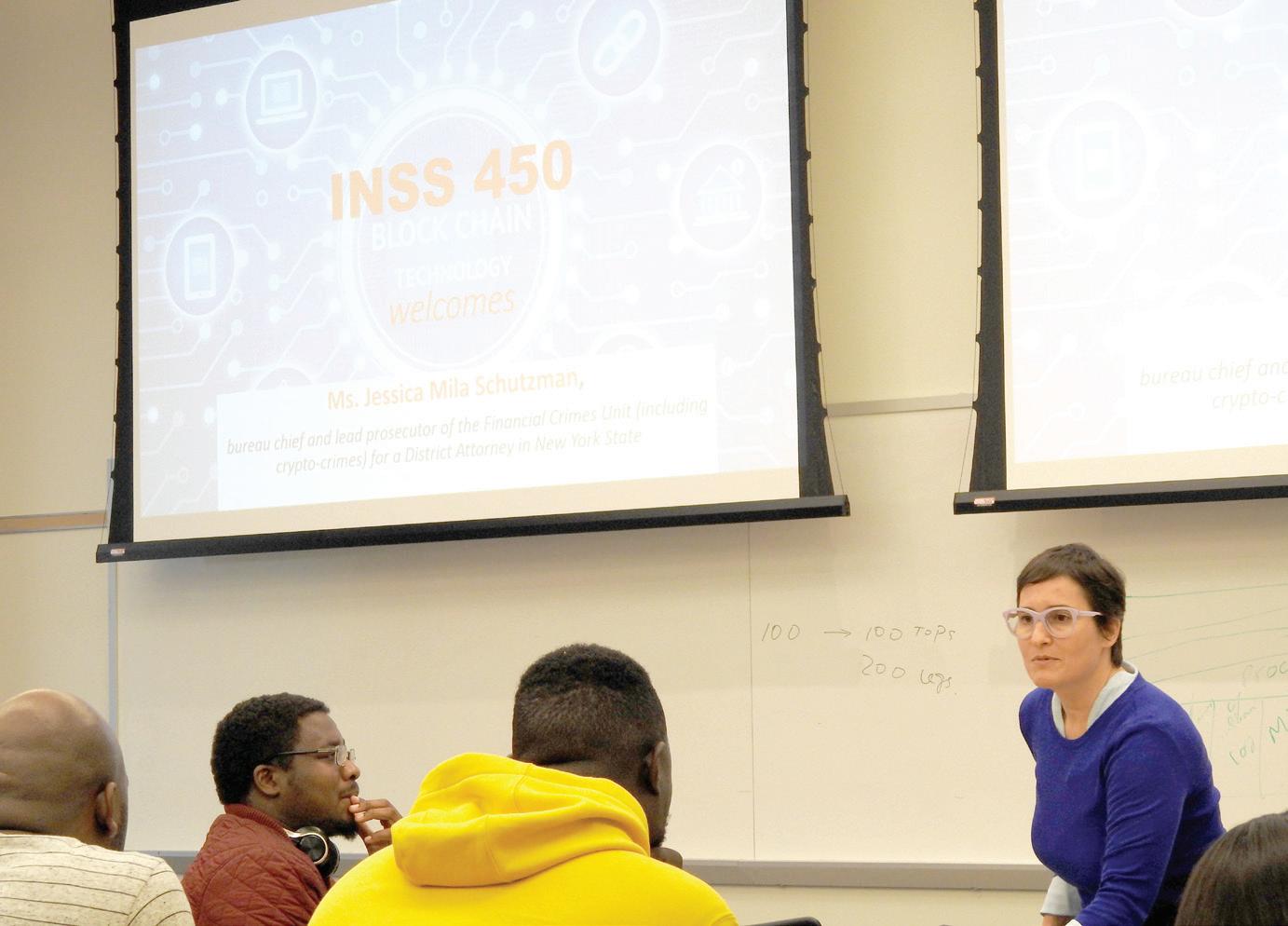
November 2019
Ripple’s Swell Conference in Singapore
The FinTech Center’s Director participated in Ripple’s Swell conference in Singapore and developed partnerships with organizations and universities. Swell is Ripple’s (Ripple is a payment provider for cryptocurrency) global payment conference, which takes place in a different location every year. In 2019, Swell by Ripple brought together over 500 of the world’s most influential people in financial services, payments, technology, and politics. The annual financial technology conference with state-of-the-art event design took place on Sentosa Island in the Capella Resort in Singapore in 2019 and offered attendees an extraordinary architectural and digital experience.
66 Spotlight On Research May 2023
Saturday, December 7, 2019
The Technical Aspects of Blockchain
Dr. Ramamurthy, a recipient of 2019 SUNY Chancellor’s Excellence in Teaching Award, is a Professor of Teaching in the Department of Computer Science and Engineering, University at Buffalo, Buffalo, NY. She is the creator and instructor of a four-course blockchain specialization on Coursera online platform for a worldwide audience. She has written her own e-book on the technical and business aspects of blockchain, Blockchain in Action.:

Saturday, February 29, 2020
The Technical Aspects of Blockchain 2
Dr. Bina Ramamurthy discussed building blocks of a blockchain using a live exploration of Bitcoin and Ethereum blockchains, deploying and interacting with three decentralized applications (Dapps) with audience role-playing as peer participants, and blockchain curriculum development for teaching and undergraduate research.
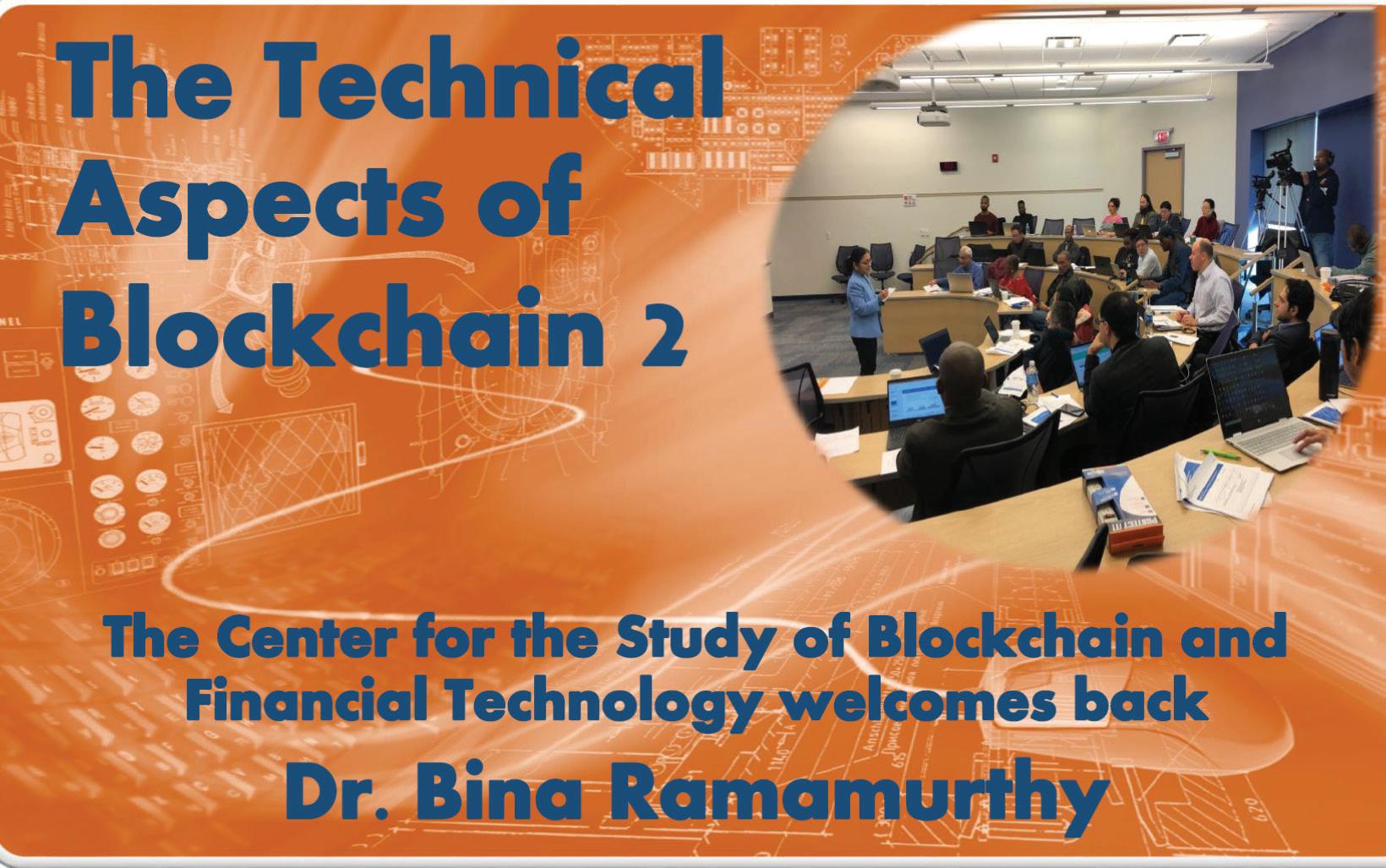
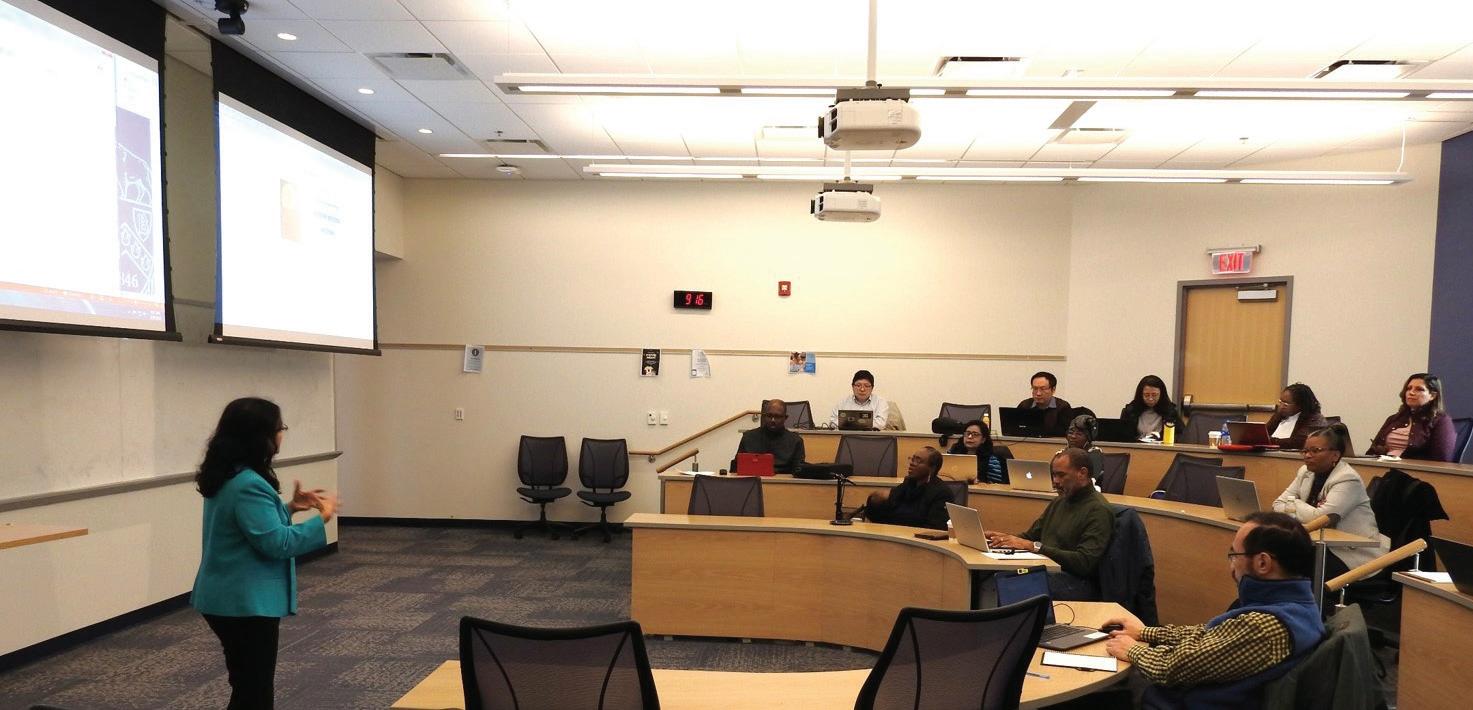
Spotlight On Research May 2023 67
The First National HBCU Blockchain Research and Innovation Conference (NHBRIC 2020) Faculty and students heard from colleagues as they presented the outcomes of their HBCU Innovative Grant programs and learned about the findings of the research HBCU faculty have done on blockchain and FinTech. There were 110 participants from 50 HBCUs, There were also participants from Nigeria and India, the private sector and the media. The program included 13 panelists and 2 keynote speakers. In addition to the formal program, faculty and students gathered in informal networking lounges to share ideas and plan collaborations. There was a virtual expo which featured programs of the FinTech Center and our sponsors. The conference was an opportunity for the recipients of the Innovation Grants and Research Grants to showcase their projects.
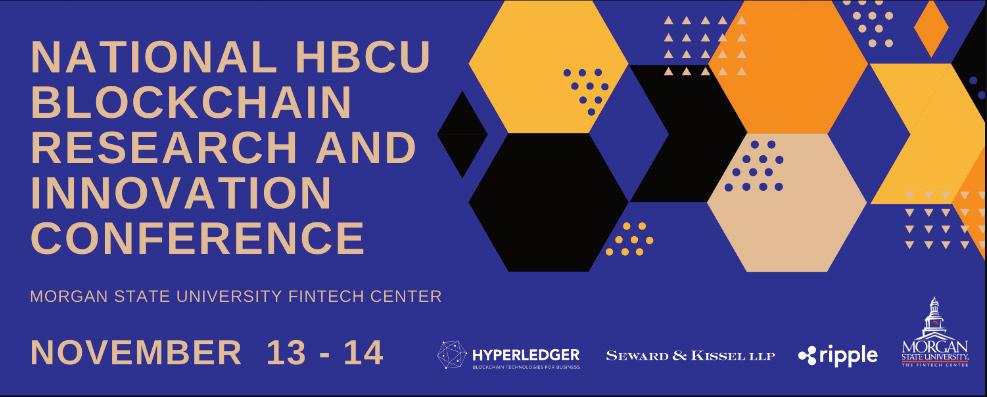
The conference, organized by the FinTech Center and Morgan State University, provided a platform for knowledge sharing, networking, and collaboration in these cutting-edge fields.
The first day of the conference, Friday, November 13, began with a warm welcome and opening remarks from Ken Weber, the Head of Social Impact at Ripple. This was followed by Ali Emdad, the Director of the FinTech Center, who provided a program overview and introduced the keynote speaker for the day.
The morning session focused on the FinTech landscape and the importance of HBCUs’ involvement in these fields. Chris Brummer from Georgetown University Law School delivered a keynote presentation highlighting the imperative role of HBCUs in driving innovation and diversity within FinTech.
The conference then delved into blockchain and FinTech innovations, with Erastus Karanja from North Carolina Central University serving as the session chair. Shonda Bernadin from Florida A&M University conducted a technical skills-building workshop, providing participants with IBM certification badges for their knowledge and application of blockchain technologies in engineering and computer science.
(continues on next page)
68 Spotlight On Research May 2023
–
Friday, November 13
Saturday, November 14, 2020
Tiffany Bussey Entrepreneurship Center at Morehouse College facilitated a blockchain business model innovation workshop. This interactive session used real companies as case studies to guide 20 undergraduate students in understanding blockchain innovation from an interdisciplinary perspective.
The conference offered a session on public awareness of blockchain and FinTech. Andrea Calloway from Bowie State University chaired the session, and speakers included Angelino Viceisza from Spelman College, who discussed consumer adoption of FinTech, and Floran Syler-Woods from Stillman College, who presented “The Blockchain Learner Podcast Series.” This interview-based podcast featured discussions with practitioners, innovators, and academicians, exploring the impact of blockchain on various fields.
The day concluded with a session on using blockchain for supply chain management, chaired by Abirami Radhakrishnan from Morgan State University. Young Sik Cho from Jackson State University presented research on lean practices in blockchain-based supply chains, while Huan Li from North Carolina A&T discussed sustainable supply chains using blockchain, focusing on the adoption of IBM Food Trust by Wal-Mart.
Sanjay Bapna, the Associate Director of the FinTech Center, provided closing remarks, marking the end of the first day’s activities. Participants had the opportunity to engage in an optional networking lounge to connect with fellow attendees and discuss the day’s presentations.
The second day, Saturday, November 14, began with a welcome and program overview by Al, the Director of the FinTech Center. Anthony Tu-Sekine, a partner at SEWARD & KISSEL, LLP, shared valuable insights on the dos and don’ts of pitching a blockchain startup.
A fireside chat followed, featuring Brian Behlendorf, the Executive Director of the Hyperledger Project, and Joanne Luciano from the University of the Virgin Islands. They discussed a use case for blockchain, specifically the Emerald Archipelago Supply Chain Use Case, which aimed to create a farming co-op using blockchain to support local farmers and artisans.
The subsequent session focused on students succeeding in blockchain, with Bo Yan from Bowie State University serving as the session chair. Mary Ann Hoppa from Norfolk State University presented a student club and code-a-thon project aimed at engaging diverse individuals in learning and applying blockchain and FinTech concepts. Alexander Yap from North Carolina A&T shared insights from a symposium for students and faculty, covering various blockchain topics such as cryptography, data security, public vs. private blockchains, and supply chain shifting to cloud computing and blockchain.
Following a networking lunch break, the conference continued with a session on students designing the future of blockchain, chaired by George Micheni from Morgan State University. Millicent Springs-Campbell from Spelman College presented a student blockchain start-up competition, aiming to increase knowledge and job opportunities for minority women students. Abena Primo from Huston-Tillotson University discussed a student blockchain applications competition, encouraging innovative ideas in blockchain technology.
(continues on next page)
Spotlight On Research May 2023 69
Lauren Weymouth, Senior Manager at Ripple’s University Partnership Programs, delivered the closing remarks alongside Ali Emdad, the Director of the FinTech Center. Optional networking lounges were available for both students and faculty, providing opportunities to connect and discuss the conference’s themes and outcomes.
The National HBCU Blockchain Research and Innovation Conference fostered an environment of collaboration, knowledge exchange, and inspiration, empowering HBCUs to make significant contributions to the blockchain and FinTech landscape.
Tuesday, October 19, 2021
Why is the Black Community Leading Mainstream Crypto Adoption?
Cleve Mesidor who led the National Policy Network of Women of Color in Blockchain and was an Advisor to the Blockchain Association. Cleve now leads the Blockchain Foundation. OneUnited Bank, America’s largest Black owned bank, recognized Cleve as a member of the “Black Crypto League.” Mayor Muriel Bowser has appointed her to the DC Innovation and Technology Inclusion Council. A Washington insider, Cleve previously served as an Obama Presidential Appointee, a senior staffer in Congress, and in the leadership of national political campaigns. She hosts the annual Congressional Briefing of Women of Color in Blockchain in the nation’s Capital. Cleve is a Howard University alumna and author of “THE CLEVOLUTION: My Quest for Justice in Politics and Crypto.”
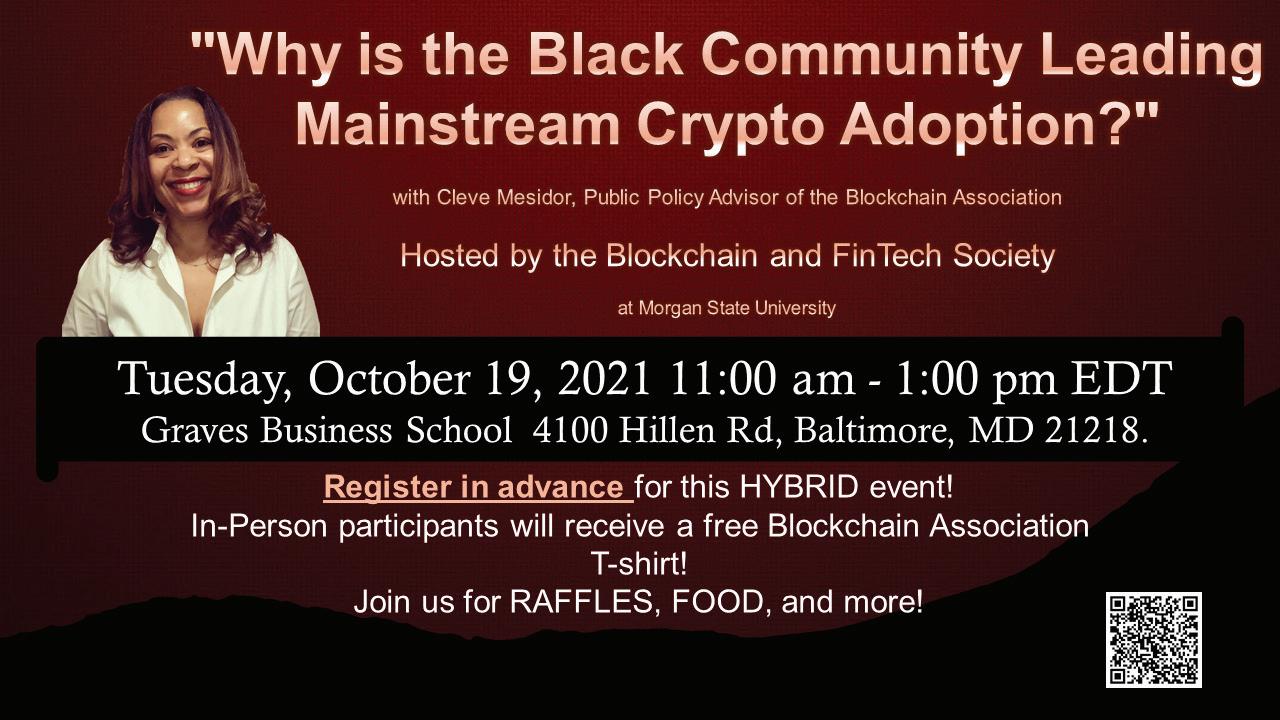
70 Spotlight On Research May 2023
Annual National HBCU Blockchain Research and Innovation Conference
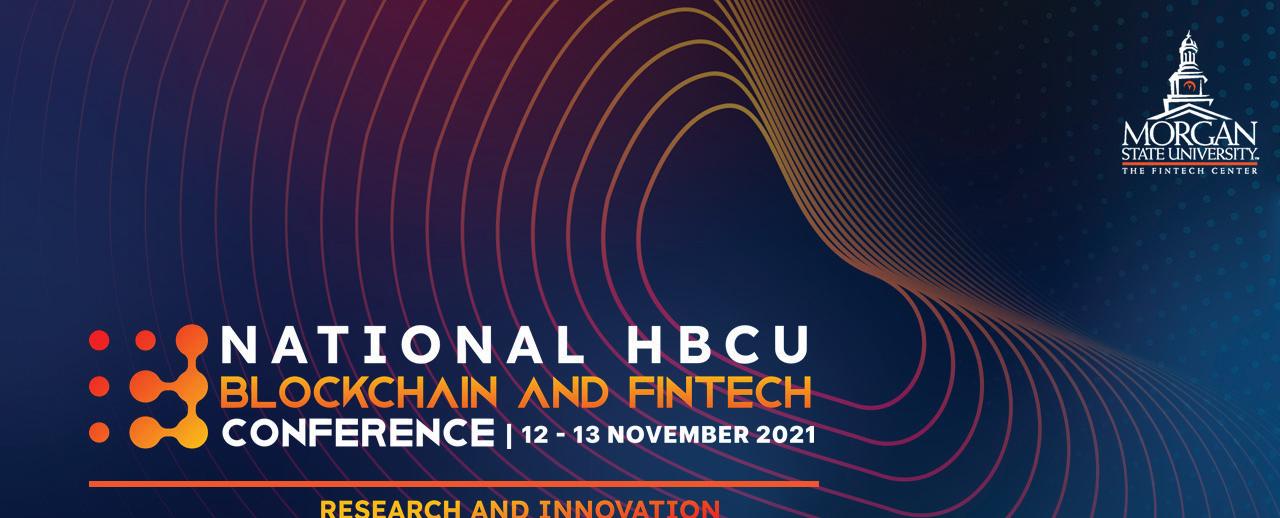
The National FinTech Center’s premier event for connecting with university leaders, faculty and students discussing today’s challenges and opportunities, and shaping the future of FinTech education and research. The Annual National HBCU Blockchain Research and Innovation Conference provided a forum for the faculty, students, and administrators in the FinTech Center’s HBCU network to hear and discuss the findings of sponsored research and outcomes of sponsored innovative blockchain projects at various HBCUs. This year’s conference was completely virtual and included a Keynote session with Dr. Campbell Harvey of Duke University, and a welcome message by Dr. David Kwabena Wilson, the President of Morgan State University. Congresswoman Dr. Alma S. Adams, Democrat from North Carolina, and co-chair of the Congressional HBCU Caucus offered opening remarks. The conference sponsors included Ripple, DFINITY, Simba Chain, AON, JP Morgan Chase, Accenture, Real Digital Index, Deloitte, Seward and Kissel, LLP, the IBM Global University, the Hyperledger Project of the Linux Foundation, the Blockchain Association, and Blockchain901.
Organized by The National FinTech Center and Morgan State University, the conference aimed to explore the latest developments in blockchain and FinTech while highlighting the contributions of Historically Black Colleges and Universities (HBCUs) in these fields.
The conference commenced with a warm welcome and opening remarks from Lauren Weymouth, Senior Manager of University Partnership Programs at Ripple. Ali Emdad, the Director of The National FinTech Center, provided a comprehensive program overview and introduced the keynote speaker for the event.
On the first day, the conference featured a session on DeFi (Decentralized Finance), where Dr. Campbell Harvey from Duke University delivered a presentation on the opportunities and risks associated with DeFi. This was followed by a session sponsored by RDA Index, focusing on how HBCUs are leading cryptocurrency adoption. Dr. Miguel Zunigá from Morgan State (continues on next page)
Spotlight On Research May 2023 71 Friday, November 12 – Saturday, November 13, 2021
University chaired the session, and presentations were made by Dr. Ashley Thomas from Alabama State University, Dr. Shael Wolfson from Xavier University, and Dr. Mohammad Mahdi Moeini Gharagozloo from Morgan State University, who shared their research on creating cryptocurrency models, campus-based cryptocurrencies, and the global expansion of cryptocurrencies.
The conference also dedicated a session to highlight the success of HBCU students who have obtained IBM certifications, sponsored by IBM Global University Programs. Ms. Valinda Scarbro Kennedy from IBM Global University Programs moderated the session, and Dr. Mohammed Salam from Southern University A&M and Dr. Kamal Hingorani from Alabama State University shared their experiences and achievements.
After a networking lunch break, attendees had the opportunity to explore the expo area, engage with exhibitors, and participate in a virtual career expo.
The second day of the conference began with Dr. Ali Emdad providing a welcome and program overview. The sessions of the day were sponsored by the Blockchain Association and DFINITY Foundation. Dr. Alfred Romero from North Carolina A & T University chaired a session on cryptocurrencies and sustainability, featuring presentations by Dr. Abena Primo from HustonTillotson University and Dr. Miesha J. Williams from Morehouse College, who discussed hands-on crypto activities and the impact of cryptocurrency investment on wealth disparities. Dr. Isabelle Kemajou Brown from Morgan State University presented research on the environmental costs of cryptocurrency mining.
Another session, sponsored by the DFINITY Foundation, focused on the engineering of blockchain. Mr. Michael Hunte from the DFINITY Foundation moderated the session, and Dr. Shonda Bernadin from Florida A&M University and Dr. Yujian Fu from Alabama A & M University shared their work on blockchain workshops and model specifications for blockchain.
The conference also featured sessions exploring various blockchain use cases, sponsored by the Hyperledger Project. Dr. Katayoon Beshkardana from Morgan State University chaired the session, and presentations were made by Dr. Jack Crumbly from Tuskegee University and Dr. Omar Khan from Morgan State University, discussing critical thinking seminar series and research on the global value chain.
After a networking lunch break, attendees had the opportunity to explore the expo area once again and engage with exhibitors.
The conference concluded with a session showcasing the future of blockchain design by HBCU students, sponsored by Blockchain901. Mr. Justin Cooper from Blockchain901 moderated the session, and presentations were made by Dr. Jifeng Mu from Alabama A & M University, Dr. Millicent Springs-Campbell from Spelman College, and Dr. Patrice Jones from Alabama State University. These presentations included a blockchain startup pitch competition, an educational games apps hack-a-thon, and the screening of winning videos from the HBCU Students Inform the Block video competition. (continues on next page)
72 Spotlight On Research May 2023
Dr. Ali Emdad, the Director of The National FinTech Center, and Mr. Ken Weber, Head of Social Impact at Ripple, delivered the closing remarks, expressing gratitude to the participants and emphasizing the importance of HBCUs in shaping the future of blockchain and FinTech.
Throughout the conference, the expo area remained open, allowing attendees to explore virtual booths, connect with sponsors, and witness the talent of HBCU students in the blockchain field. The Second National HBCU Blockchain and FinTech Research and Innovation Conference successfully provided a platform for knowledge sharing, networking, and celebrating the accomplishments of HBCUs in the blockchain and FinTech domains.
Demystifying Data Analytics
Part One: Introduction to Data Analytics: Use Cases, Tools, and Techniques
Part Two: Hands-on visualization for music using Tableau
Part Three: Hands-on use cases of data analytics, interactive work in teams, and creative problem-solving
The National FinTech Center worked with a group of highly motivated students to receive a certificate of completion in Introduction to Data Analytics, a rapidly growing field, and an increasingly in-demand skill. Professor Mary Dunaway was the lead instructor for the Demystifying Data Analytics workshop. Professor Dunaway received her Ph.D. in Information Systems from the University of Arkansas, Fayetteville. She is also a certified Project Management Professional (PMP), since 2004. Dr. Dunaway has managed many Enterprise Technology systems consulting projects at Fortune 500 organizations. She serves as a member
(continues on next page)
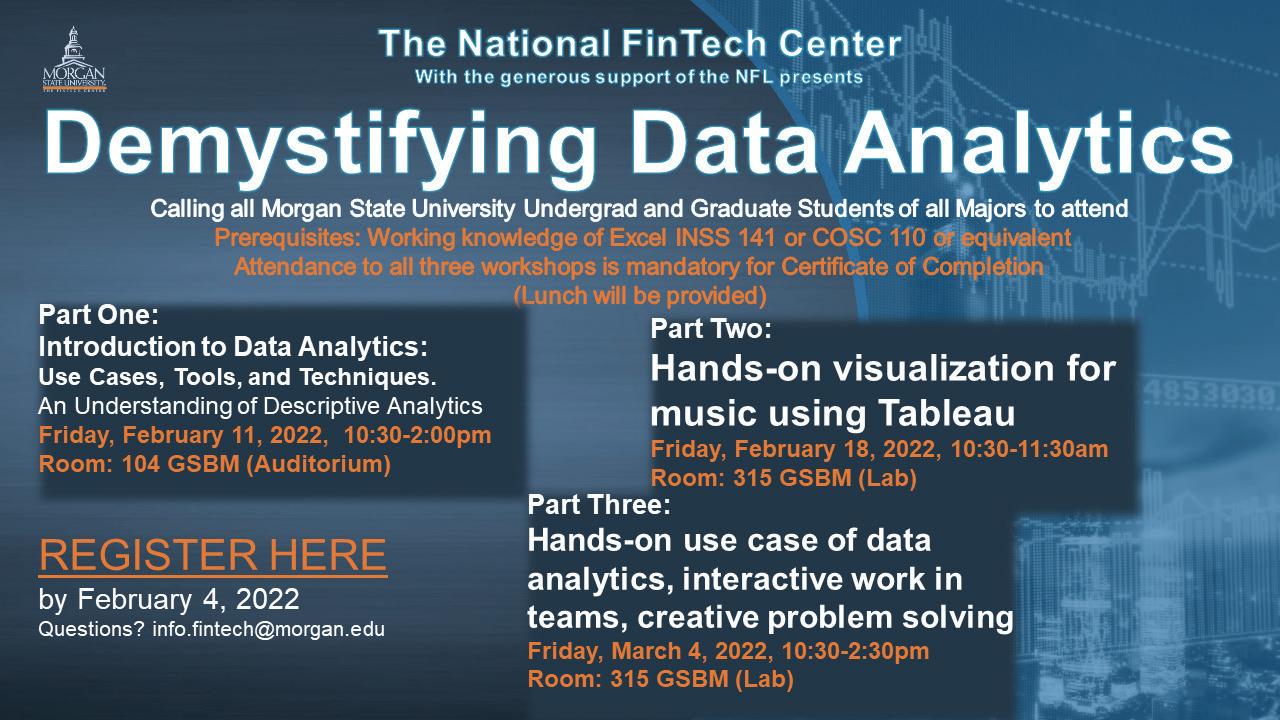
Spotlight On Research May 2023 73
Friday, February 11, 2022, Friday, February 18, 2022, Friday, March 4, 2022
in professional associations such as the Project Management Institute, Association for Information Systems, and Decision Sciences Institute. Dr. Dunaway’s teaching has been recognized as being innovative along with recognition in research for best paper nominations at academic conferences. She is an Information Systems advocate sharing her knowledge through various speaking opportunities. Her current topic, “Project Management Analytics” has gained strong interest and presented at the Washington, DC and Silver Spring chapters of PMI, University of Virginia School of Continuing and Professional Studies, and government agencies – US Department of Agriculture, US Census Bureau.
Sunday, September 11 – Thursday September 15, 2022
Hyperledger Global Forum and Member Summit
Dr. Ali Emdad presented data on minority participation in FinTech and offered practical DEI strategies.
Monday, September 19 – Friday, September 23, 2022
Ripple UBRI Connect Conference
Dr. Ali Emdad presented on Workforce Development in FinTech where he reviewed FinTech Academics being offered globally and offered discussions on standardization of core content and curriculum models.
Monday, November 7 and Tuesday, November 8, 2022
The 3rd National HBCU Blockchain and FinTech Conference
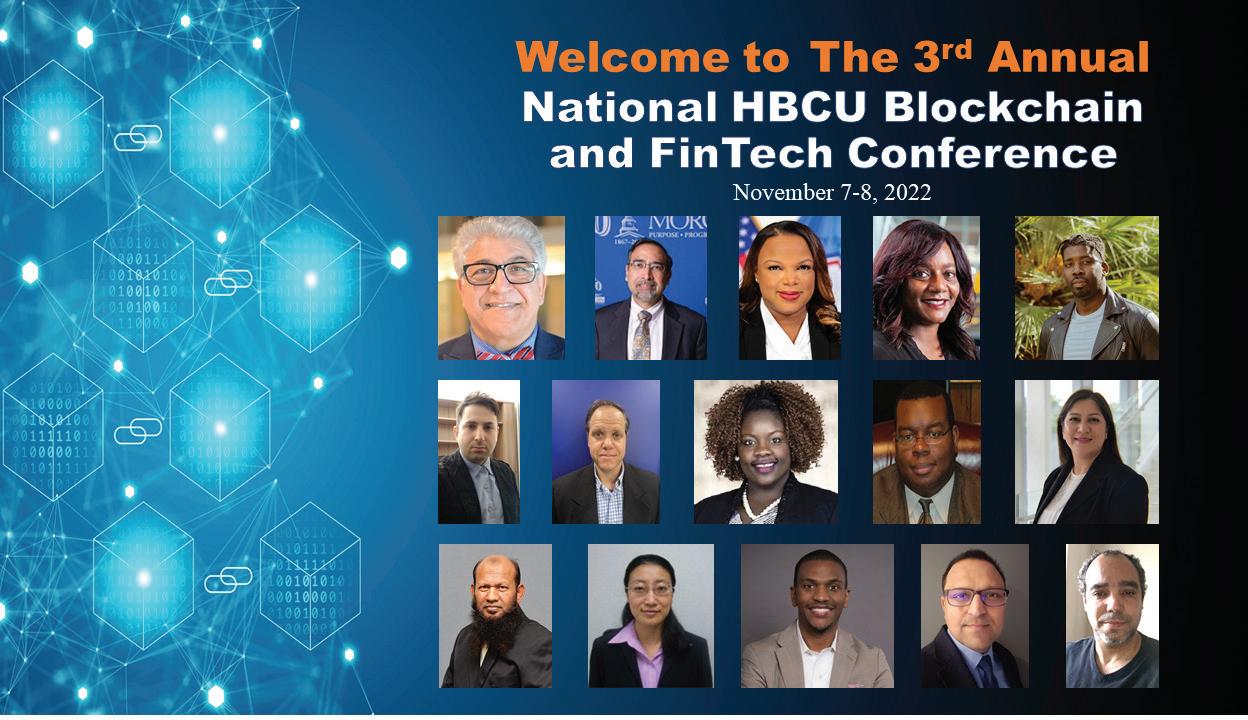
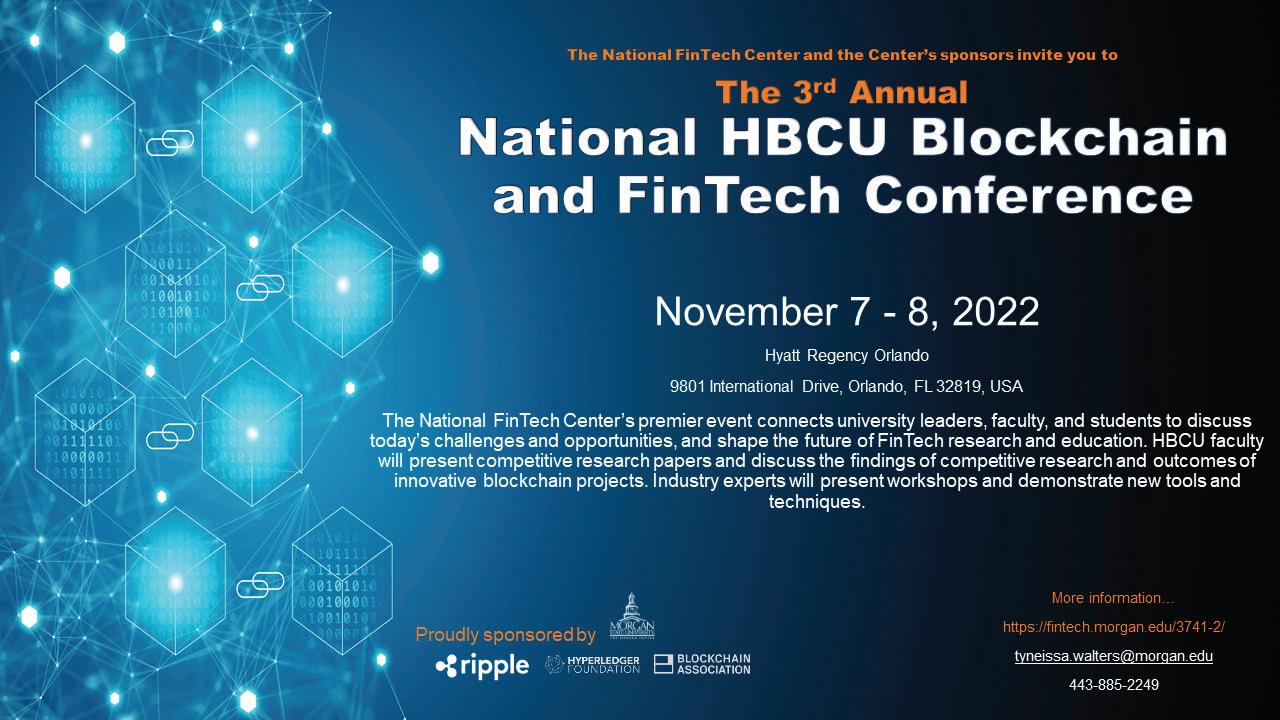
Conference Chair: Ali Emdad | Program Chair: Sanjay Bapna |
Operations Coordinator: Tyneissa Brown
On November 7-8, 2022, the National Center for the Study of Blockchain and FinTech Conference held its premier event, the 3rd Annual conference in Orlando. The conference connects university leaders, faculty, students, and industry experts to discuss today’s challenges and opportunities, and shaping the future of FinTech education and research.
This highly anticipated event brought together experts, researchers, and industry professionals from around the country to explore the latest trends and developments in the exciting fields of blockchain and financial technology. The conference took place in the vibrant city of Orlando, where attendees gathered at Hyatt Regency Orlando for two full days of insightful presentations, workshops, and networking opportunities.
(continues on next page)
74 Spotlight On Research May 2023
The welcome session was led by Ali Emdad from Morgan State University - National Center for the Study of Blockchain and FinTech, setting the stage for the informative and engaging program ahead.
The first session of the day, presented by Morgan State University, delved into “Global trends in FinTech and Blockchain Education.” Attendees gained valuable insights into the latest developments in blockchain and FinTech education, including standards, courses, degree programs, and certifications offered by over 100 universities worldwide. This session provided a comprehensive overview of the educational landscape in these rapidly evolving fields.
Continuing with the program, Katayoon Beshkardana from Morgan State University presented on “Blockchain and the Right to Erasure.” This thought-provoking session explored the balance between technological innovation and data protection, comparing the right to be forgotten under the European GDPR with two prominent senate bills in the United States. Concurrently, Professor Li from Tennessee State University showcased a blockchain-based testing and vaccination system, highlighting its unique advantages and comparing it with existing manual and centralized health pass systems.
Later in the day, Juliet Elu and Miesha Williams of Morehouse College discussed the “Implications of Cryptocurrency as Legal Tender” in Latin America. This joint research paper shed light on the emergence of cryptocurrencies as legal tender in the region and its legal and economic implications. Robert Tedeschi from Edward Waters University demystified the challenges and rewards of cryptocurrency, targeting the Edward Waters University community and providing insights into the transformative potential of this technology.
Yujian Fu of Alabama A&M University presented a formal verification approach to smart contract behavior in the currency perspective. Attendees learned about the innovative use of the Maude model checker to ensure compliance between application implementation and formal specifications. Mohammad Salam of Southern University and A&M College engaged the audience with a session on engaging students and faculty in blockchain and financial technology through seminars and certifications, fostering awareness and understanding among diverse populations.
The concept of the metaverse took the spotlight in a session led by Sandy Aggarwal and Rafael Brown. Attendees embarked on a journey through its essential aspects, gaining insights into definitions, origins, governance, identity, community, legal considerations, commerce, and more.
Industry representatives shared their perspectives on market needs and opportunities in the blockchain and FinTech sectors, providing valuable insights for attendees navigating the job market. To wrap up the first day, a networking session was held, allowing participants to connect with fellow attendees, speakers, and industry professionals. Meaningful conversations, collaboration, and idea exchange took place in a relaxed and social setting, fostering connections that would continue to grow throughout the conference.
As Day 2 dawned, attendees gathered for another day of insightful sessions. The morning began with a warm welcome from Ali Emdad, representing Morgan State University - National Center for the Study of Blockchain and FinTech, setting the tone for a day filled with thought-provoking presentations.
The keynote speaker, CFTC Commissioner Kristin Johnson, took the stage to discuss “Digital Asset Innovation, Regulation, and the Future of Finance.” This highly anticipated session explored the evolving landscape of digital assets and the regulatory frameworks shaping the industry. Attendees had the opportunity to engage in a lively Q&A session, deepening their understanding of this transformative field.
The program continued with presentations covering a range of topics, including partnerships and innovation in blockchain technology, secure authentication on the XRP blockchain, the role of external factors in global
(continues on next page)
Spotlight On Research May 2023 75
cryptocurrency adoption, and the importance of decentralized autonomous organizations (DAOs) in the DeFi space.

A workshop hosted by COINBASE, a leading crypto platform, offered participants the chance to delve into the fundamentals of crypto, its use cases, and best practices. Attendees gained valuable insights into the trends, talent, and tools shaping the future of web3.

Throughout the day, presenters from universities such as Xavier University of Louisiana, Kentucky State University, Stillman College, and Tuskegee University showcased their respective initiatives, research, and experiences in integrating blockchain into their academic institutions. Attendees gained inspiration and learned from their peers’ successes and challenges.
The conference concluded with a session led by Levi “Christian” Pearson of Stillman College. Attendees explored the creation and management of a DAO for students, gaining valuable insights into the learnings, challenges, and scalability of such initiatives.
As the conference came to an end, participants left with a wealth of knowledge, new connections, and a deeper understanding of the blockchain and FinTech landscape. The Morgan State University - National Center for the Study of Blockchain and FinTech Conference succeeded in fostering meaningful collaborations, inspiring innovation, and propelling the growth of these transformative fields.
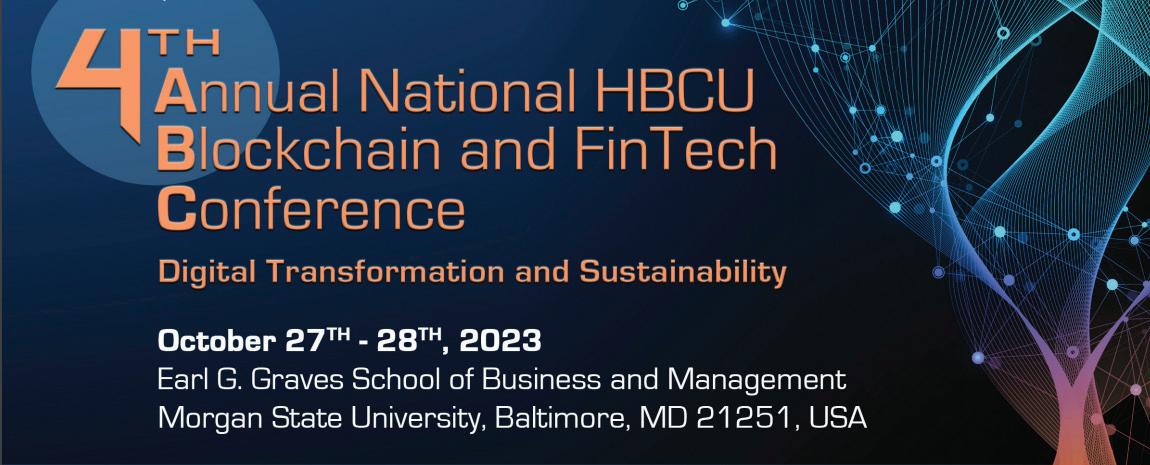
76 Spotlight On Research May 2023
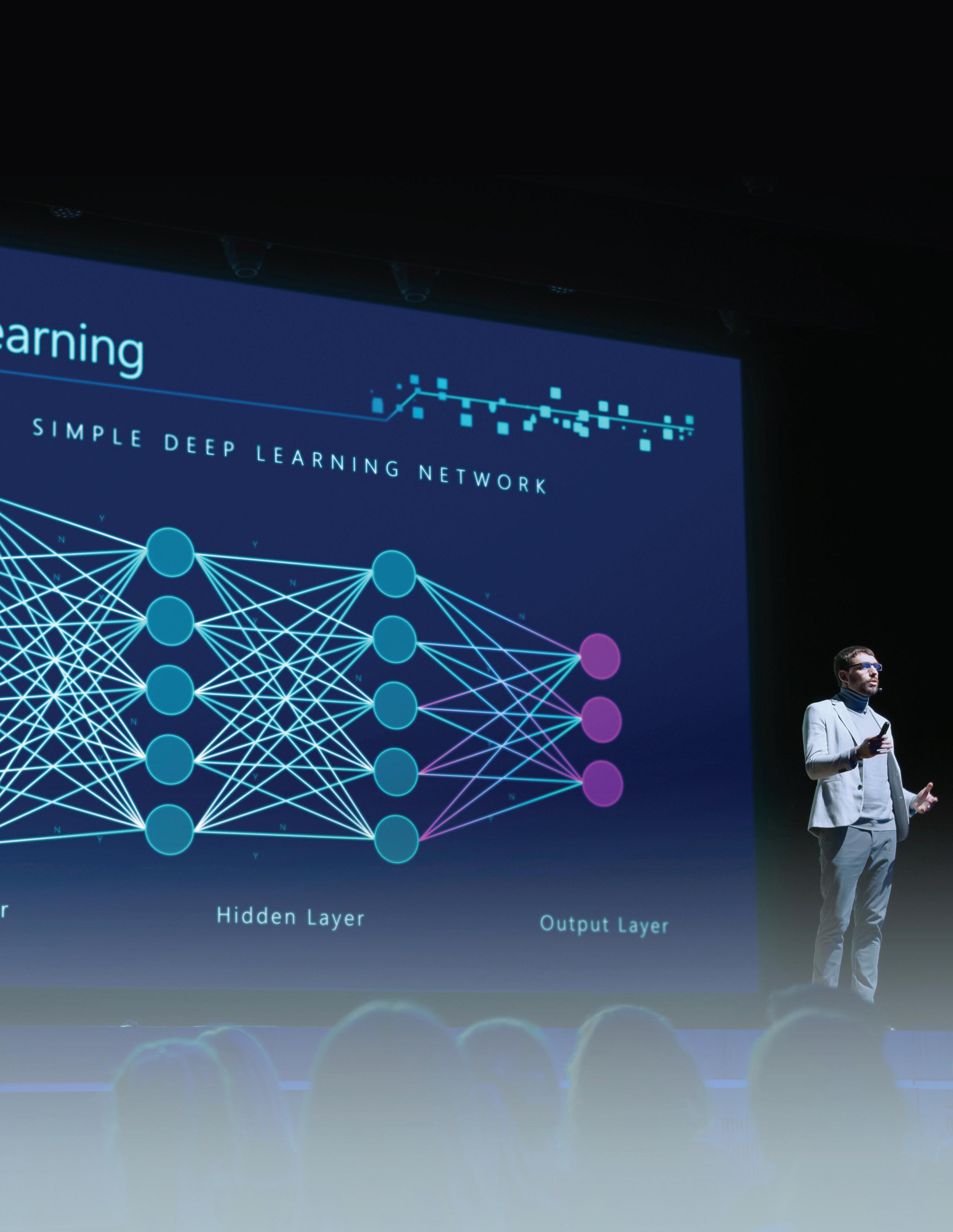
Spotlight On Research May 2023 77

78 Spotlight On Research May 2023
These competitions serve as valuable platforms for students to showcase their skills, creativity, and problem-solving abilities in the dynamic and rapidly evolving FinTech landscape. In this report segment, we will present FinTech Center-sponsored student competitions and their crucial role in enhancing learning experiences.
By actively engaging in student competitions, participants are provided with unique opportunities to apply their theoretical knowledge and classroom learning in a practical and competitive environment. The process of preparing for these competitions requires students to delve deep into the subject matter, conduct thorough research, and develop innovative solutions to realworld FinTech challenges. This hands-on experience not only consolidates their understanding of key concepts but also encourages critical thinking, teamwork, and effective communication skills.
The FinTech Center-sponsored student competitions play a
pivotal role in bridging the gap between academic knowledge and industry application. Through these competitions, students gain exposure to the latest trends, emerging technologies, and industry best practices in FinTech. They are encouraged to explore innovative solutions, develop proof-of-concepts, and propose viable business models that address the evolving needs of the financial sector. This experiential learning journey enables students to develop a deep understanding of the complexities and opportunities presented by FinTech, preparing them for future careers in this rapidly growing industry.
Furthermore, participating in student competitions fosters a spirit of entrepreneurship and innovation among students. It encourages them to think outside the box, take calculated risks, and transform their ideas into tangible prototypes or business plans. The competitions often provide mentorship and guidance from industry experts,
1,000+ NUMBER OF PARTICIPANTS
which further nurtures students’ entrepreneurial spirit and enhances their business acumen. This holistic learning experience equips students with the skills and mindset necessary to identify and capitalize on opportunities in the ever-evolving FinTech landscape.
In addition to the academic benefits, FinTech Centersponsored student competitions offer participants valuable networking opportunities. Through these competitions, students have the chance to interact with industry professionals, entrepreneurs, and potential investors. This exposure enables them to build meaningful connections, receive feedback on their ideas, and explore potential collaborations or employment prospects. The competitions also provide a platform for students to showcase their talents and gain recognition within the FinTech community, further enhancing their professional profiles and expanding their career opportunities.
Spotlight On Research May 2023 79
The National FinTech Center at Morgan recognizes the importance of fostering a culture of innovation, entrepreneurship, and practical application of knowledge among students.
In line with this vision, the center sponsors and organizes a series of student competitions focused on various aspects of financial technology.
Fall semester of 2020
HBCU Students Battle for the Cryptos
A student cryptocurrency trading challenge. Binance.US gave each student the equivalent of $200 in cryptocurrency and helped each one create an account to trade from. Binance.US awarded prizes based on the performance of their portfolios. Forty-two contestants were chosen from six different universities, including Morgan State University in Baltimore, Maryland; Bowie State University in Bowie, Maryland; Howard University in Washington, DC; Harris Stowe State University in St. Louis, Missouri; Jackson State University in Jackson, Mississippi; and Philander Smith College in Little Rock, Arkansas. Through the course of two months, students participated in three different educational seminars covering cryptocurrency investing, trading, portfolio management and financial fitness and literacy. In addition, these students had direct access to the senior team and CEO of Binance.US, Catherine Coley, for all of their questions and ideas. Liberal Arts major at Morgan State University, Davongah Martin-Lewis won the competition with 36.5% return on his portfolio of cryptocurrencies. As a group, the students had a 14% average ROI. The top three students were awarded $2,000, $1,000 and $500 in cryptocurrency deposited into their Binance.US wallets, which they could either convert to fiat money or keep in their account to continue trading.
Spring semester of 2021
HBCU Students Battle for the Cryptos 2

HBCU Students Battle for the Cryptos 2 had participation from over 100 students from 19 HBCUs nationwide. The students actively chatted, provided resources, and suggestions to one another in a telegram chat created solely for the competition. Over the course of the competition, each student bought, sold, and traded cryptocurrency to build their portfolio. The first-place winner quintupled his return ending with $1,000 in his portfolio. After the competition, the center hosted
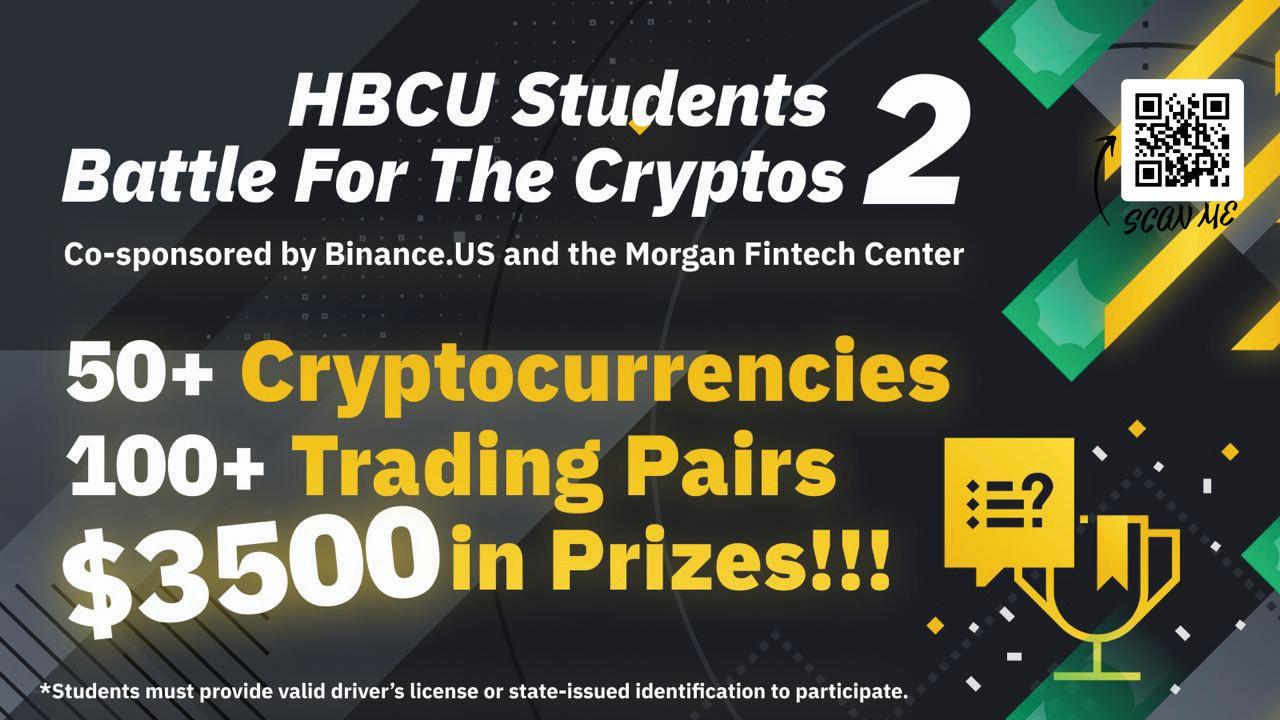
80 Spotlight On Research May 2023
HBCU Students Battle for the Cryptos Awards Ceremony. Active students joined to celebrate what they learned, accomplished, and heard from their peers on their successful techniques.
Summer and Fall of 2021
HBCU Students Inform the Block Video Competition | Alabama State University | Dr. Patrice Glenn-Jones
The goal was to impact learning across generations and catalyze a “buzz” of information on blockchain and FinTech. Undergraduate students at HBCUs were invited to submit short videos (i.e., 30 seconds to 3 minutes in length) for cash prizes. The videos were designed to “teach” HBCU stakeholders and communities of color about blockchain and financial technology. The videos were evaluated on: (a) content accuracy, (b) design and overall appearance, (c) creativity, (d) technical production quality, and (e) timing. The deadline for submitting videos was October 15, 2021 and judges from academia and industry reviewed the videos and selected winners who were announced at the National HBCU Blockchain Research and Innovation Virtual Conference on November 12-13, 2021. The winners included students from the University of the Virgin Islands, Alabama State University. The FinTech Center plans to distribute the winning videos via social media and promote them to faculty to use in their courses.
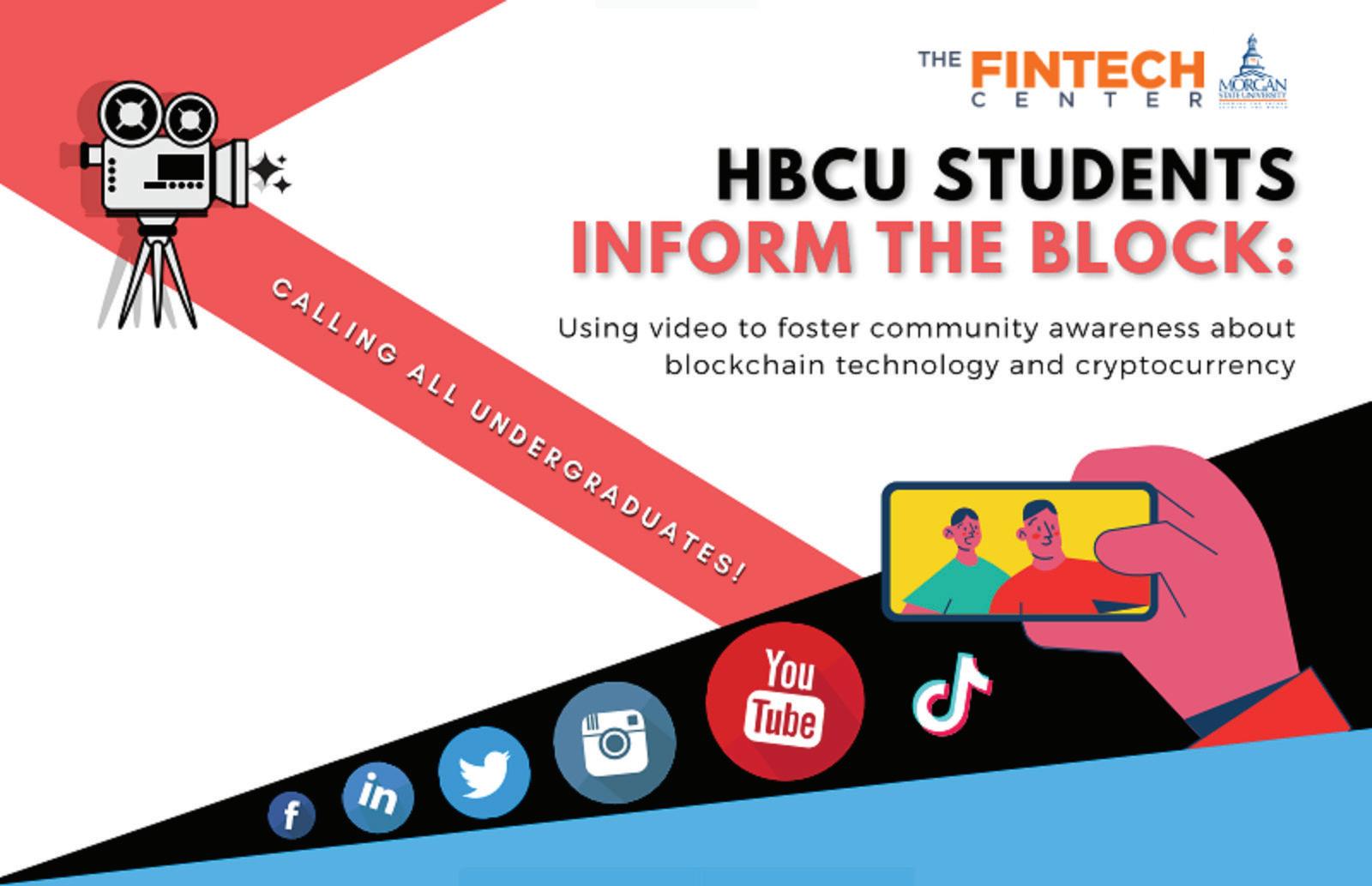
● July 16, 2021: Samson Williams, Senior Economist and Blockchain Professor at Columbia University gave an overview of the philosophy, technology, legal and economic aspects of blockchain and was joined by Dr. Patrice Jones of Alabama State University in brainstorming ideas for videos.
● August 31, 2021: Brian Estes, Off the Chain Capital presented the history of money from barter to bitcoin and beyond.
● September 14, 2021: Craig Fischer, Innovation Program Manager for the United States Department of Treasury shared blockchain use cases that show how this technology is being used to improve people’s lives.
● October 5, 2021: “NFTs - The Tokenized Future of Assets. The National FinTech Center hosted Justin Cooper, CBC, CSBA, Technology Director of Blockchain901, LLC who talked about “NFTsThe Tokenized Future of Assets.
Spotlight On Research May 2023 81
Spring semester of 2023 Art + NFT Technology Competition
The National FinTech Center, in collaboration with the College of Liberal Arts and the School of Architecture, announced a unique digital art competition for students at Morgan State University. House of First and ICONN offered to create NFTs (non-fungible tokens) from the winning artwork (on a supported blockchain platform). Students showcased their creativity by designing their own masterpiece depicting a) an event, b) a person or c) an object (a physical item or place, a building, groups of buildings, or an area) that was transformational in the history of Morgan State University. House of First and ICONN provided $2,000 as a prize for the winning artist.


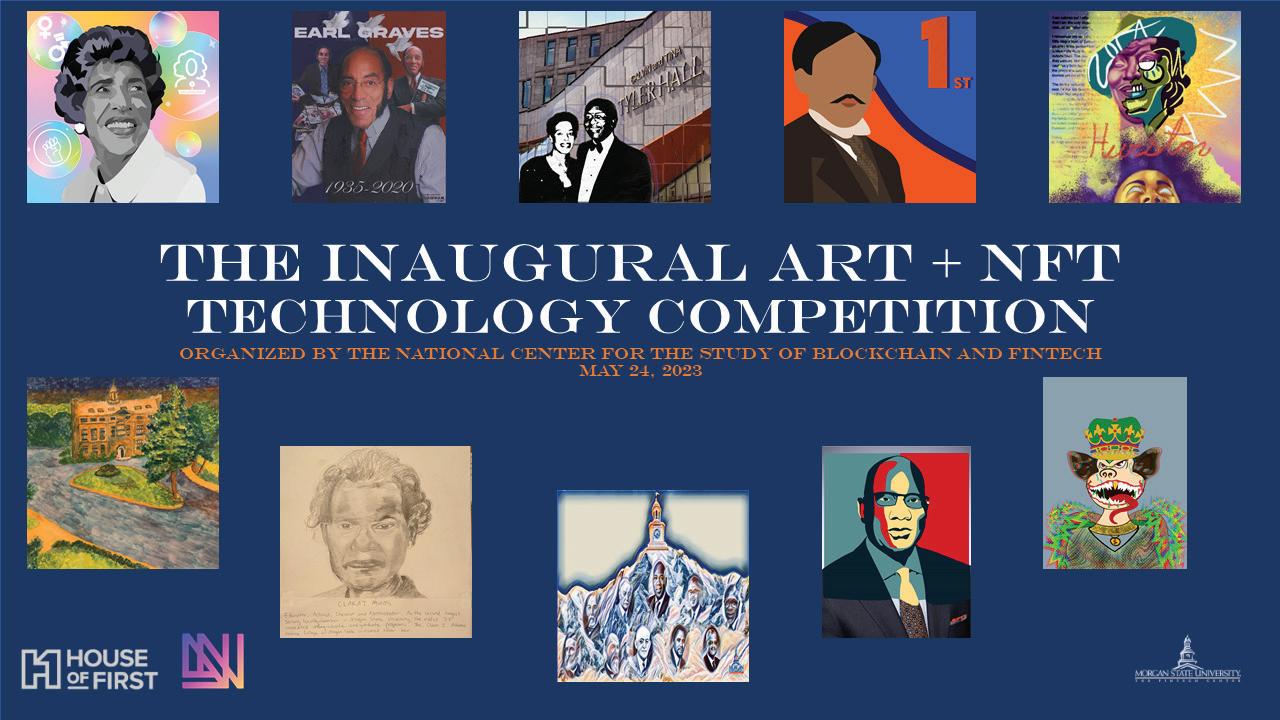
82 Spotlight On Research May 2023
“Morgan State is near and dear to me… When we were going down this path, we knew it was important for us to give back to the cornerstones of our community, our HBCUs… This is a spark, catalyst if you will, to bigger and better things.”
~ Herb Rice
“This is our entry point, art is our entry point to get into this initiative {NFTs}... This is the start of something very big””
~ Ja Rule
Spring semester of 2023 MorganHacks

Presented by Morgan State University’s Blockchain Society, Women in Computer Science – WiCS, Society for the Advancement of Computer Science – SACS, Investment Club, Finance Club, and African Student Organization- ASO in collaboration with industry sponsors, MorganHacks was a first of its kind. These student clubs invited scholars from local universities to participate and network with other innovative scholars and professionals in the inaugural MorganHacks, a 24hr Hackathon, that took place at the preeminent, Morgan State University in Baltimore, Maryland from April 1st to 2nd, 2023. Students brought their creative project ideas, learned about new technology, and shared their work with the community for a unique opportunity for recognition and development by industry professionals, and had a chance to be admitted into our signature Pre-Accelerator program, designed to turn innovative solutions into successful Startups. The hackathon was supported by the National FinTech Center, which played a vital role in helping the students carry out their tasks. During the event, eighteen teams participated and coded on ledgers such as XRPL and more. The students were able to showcase their skills and creativity in developing innovative solutions to real-world problems.

Spotlight On Research May 2023 83

84 Spotlight On Research May 2023
One notable achievement of the National FinTech Center is the establishment of the National HBCU Student and Alumni Resume Database, which was a value-added benefit of the 3rd National HBCU Blockchain and FinTech Conference. This database provided a platform for over 200 HBCU students and alumni to showcase their resumes to recruiters from Ripple and The Federal Reserve Bank of Atlanta. By connecting these talented individuals with potential internship and career opportunities, the Center has played a crucial role in bridging the gap between academia and industry.
In collaboration with Binance.US, the Center organized the HBCU Students Battle for the Cryptos 2 event, which saw participation from over 100 students from 19 HBCUs. This initiative aimed to streamline HBCU students’ entry into the field of cryptocurrencies, with Binance.US committing to offering internships and employment opportunities to students within the network. By facilitating handson engagement and competition in the field, the National FinTech Center has empowered students to gain practical experience and explore career pathways in the ever-growing crypto industry.
The Center has also facilitated insightful panel discussions, such as the Blockchain Virtual Panel Discussion: Investing in 2021, where HBCU students had the opportunity to engage in Q&A sessions with industry leaders from the SEC, Deloitte, and J.P. Morgan Chase. These interactions provided students with valuable resources, stepby-step guidance on career applications, and a deeper understanding of the industry landscape. Moreover, the Center has collaborated with career specialists at Morgan State University and other institutions to publicize internship and job opportunities in blockchain and FinTech, further expanding students’ access to industry networks and career prospects.
To enhance students’ professional development, the National FinTech Center has partnered with organizations like Early Light Ventures to create paid fellowship programs and conducted virtual career fairs. These initiatives have allowed students to connect with leading companies in the blockchain and FinTech industries, such as Ripple, DFINITY, and SIMBA Chain, offering them networking opportunities and potential employment options.
FACULTY: 2,657
STUDENTS: 35,765
ALUMNI: 647
In terms of curriculum development and education, the Center has played a pivotal role in promoting blockchain and FinTech courses at HBCUs. Through initiatives like the HBCU Curriculum Development Institute, over 1,000 students from various academic disciplines have been exposed to the core concepts of blockchain, FinTech, and related technologies. Faculty members from diverse academic areas have received training, ensuring that students receive well-rounded education in these emerging fields.
In summary, the National FinTech Center’s impact on defining research and education in blockchain, FinTech, and related fields is profound. Through their various programs, the Center has facilitated career opportunities, networking platforms, and educational resources for for Morgan State University and other HBCU students and alumni. By bridging the gap between academia and industry, the Center has played a pivotal role in empowering students, enhancing their skills, and paving the way for their success in the rapidly evolving landscape of blockchain and FinTech.
Spotlight On Research May 2023 85
The National FinTech Center has made significant contributions to the fields of blockchain and financial technology (FinTech) through its various initiatives and programs.
The impact of the Center’s efforts is evident in several key areas, including research, education, career development, and networking opportunities for students and alumni from Historically Black Colleges and Universities (HBCUs).
We would like to sincerely thank our corporate sponsors for their indispensable financial assistance, which has played a vital role in advancing the Center’s programs. We are especially grateful to Ripple for their incredibly generous contribution and to Ken Weber, whose unwavering belief in our cause has served as a true inspiration. We extend our heartfelt appreciation to Lauren Weymouth and many others at Ripple for their continuous encouragement and support.
As enthusiastic participants in Ripple’s University Blockchain Research Initiative (UBRI), we are actively involved in equipping the future generation of a diverse global FinTech workforce with an essential set of skills, including individuals who can effect positive social change and environmental impact that will shape our world for years to come.

86 Spotlight On Research May 2023

Spotlight On Research May 2023 87
Morgan State University
Morgan State University, founded in 1867, is a Carnegie-classified doctoral research institution offering more than 100 academic programs leading to degrees from the baccalaureate to the doctorate. As Maryland’s Preeminent Public Urban Research University, Morgan serves a multiethnic and multiracial student body and seeks to ensure that the doors of higher education are opened as wide as possible to as many as possible. For more information about Morgan State University, visit www.morgan.edu.
Earl G. Graves
School of Business and Management
Housed within the $79-million state-of-the-art Morgan Business Center, The Graves School, named in honor of Morgan State alumnus Earl G. Graves Sr., is among the five percent of schools worldwide that offer business degrees at the bachelor’s level or higher and is accredited by AACSB International. The School’s mission is to prepare a diverse student population to succeed as business professionals and to become engaged citizens. Founded in 1937 and later formed into a School in 1975, The Graves School is a top producer of African American graduates in Maryland with a business degree. Approximately 1,900 of Morgan’s nearly 9,000 students are enrolled in the Graves School at the undergraduate, master’s, and doctoral levels.
Graves Business School: www.morgan.edu/sbm
National FinTech Center: https://fintech.morgan.edu


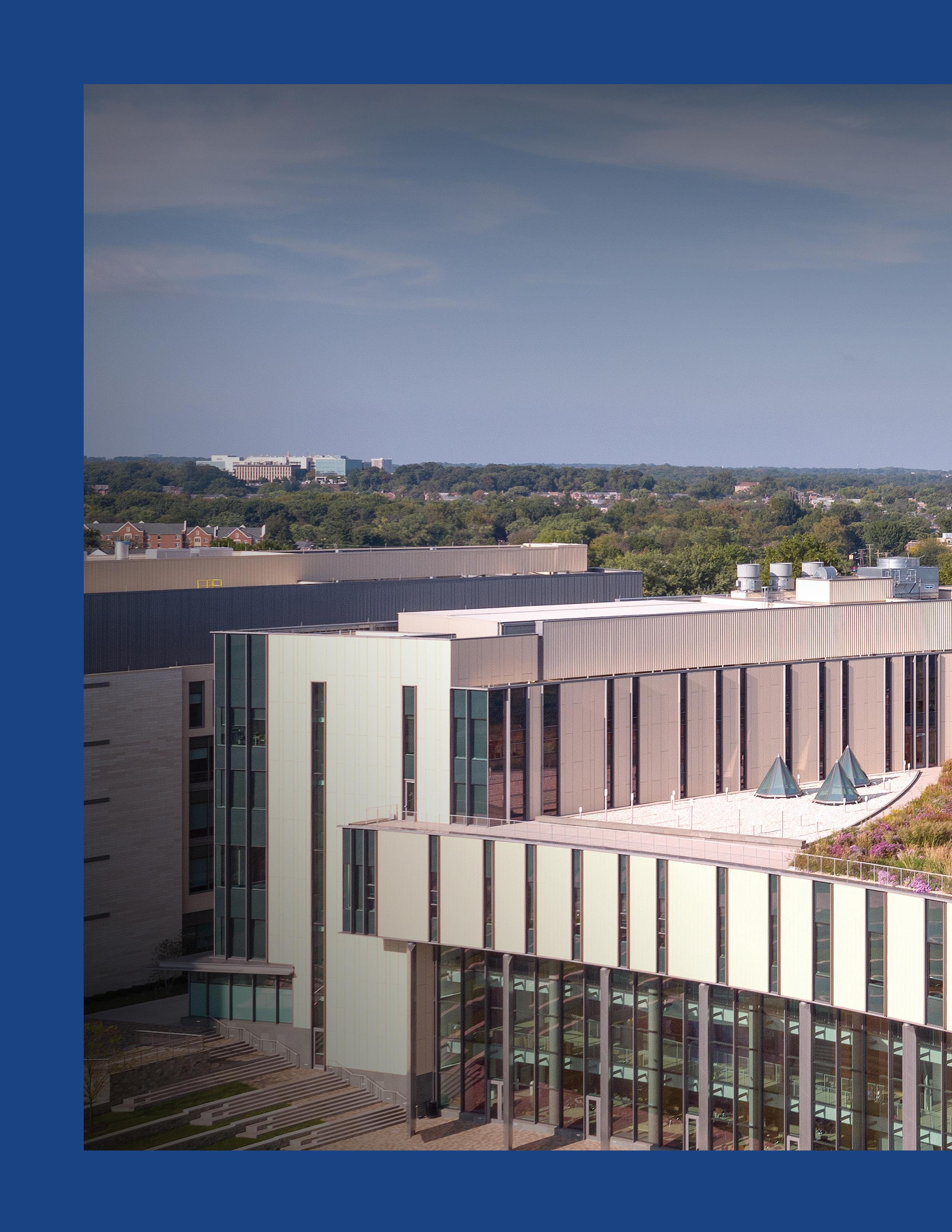
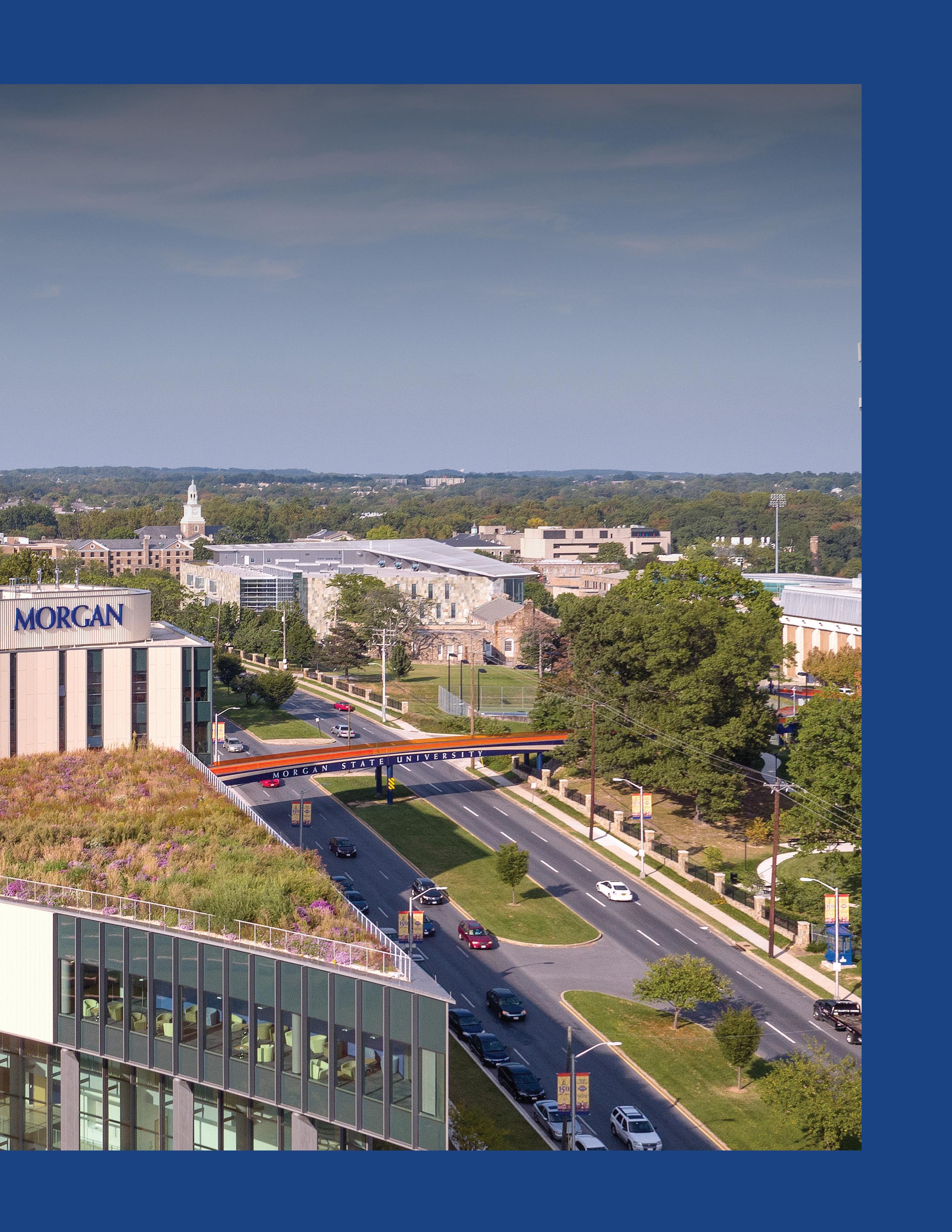
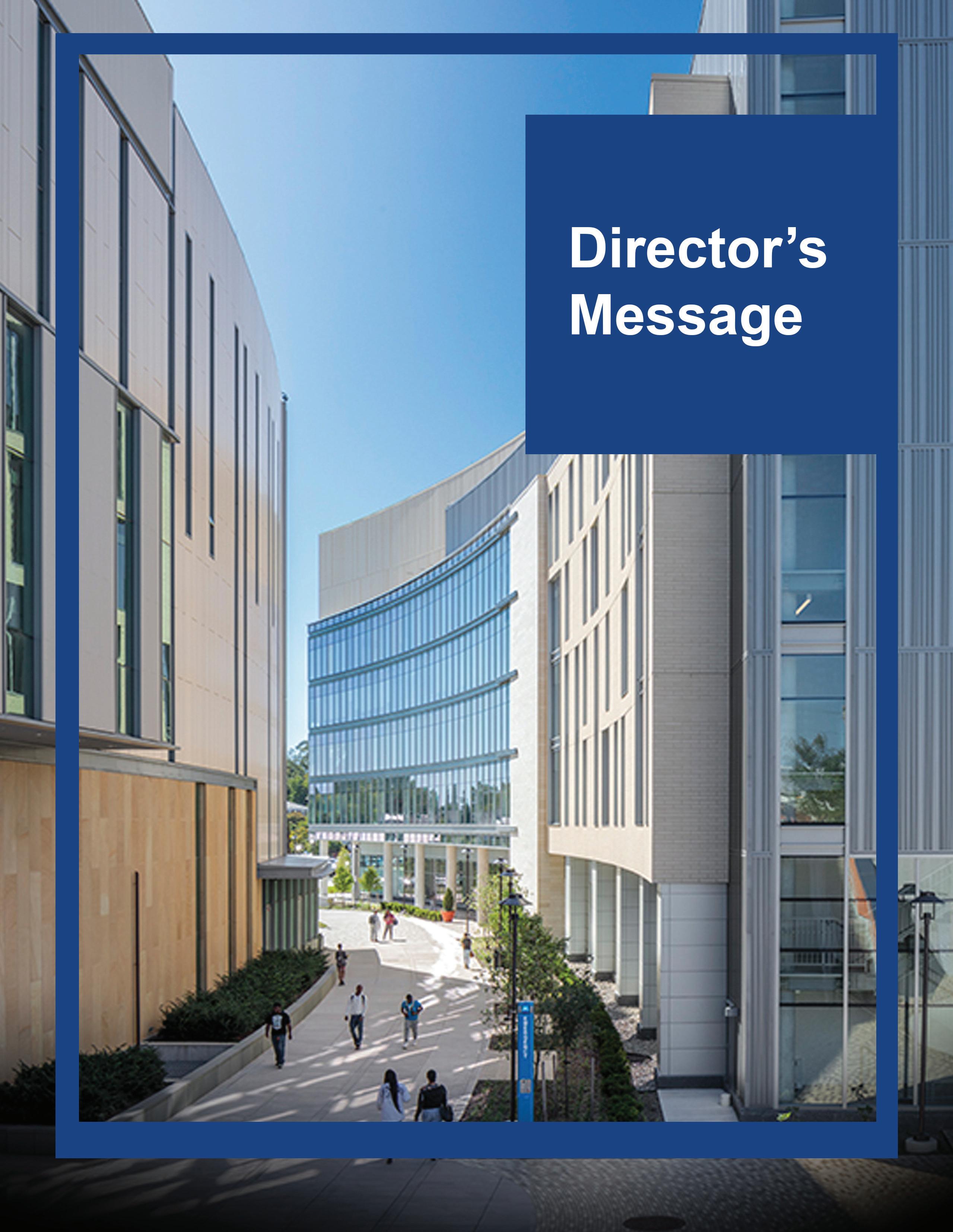
 Ali Emdad, Ph.D. Associate Dean
Ali Emdad, Ph.D. Associate Dean
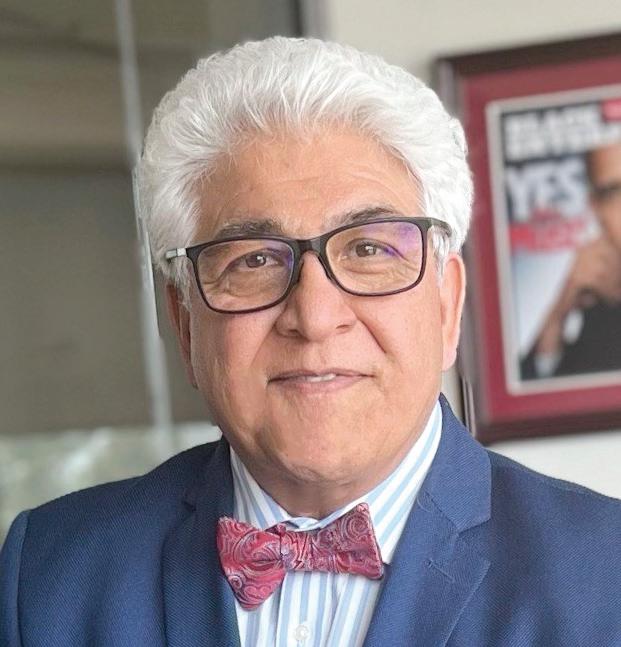 Earl G. Graves School of Business and Management Founding Director The National Center for the Study of Blockchain and FinTech
Earl G. Graves School of Business and Management Founding Director The National Center for the Study of Blockchain and FinTech












 Xiaoming Li Tennessee State University
Xiaoming Li Tennessee State University





































































 Christina Coleman Business Administration, Morgan State University
Christina Coleman Business Administration, Morgan State University

























































